The mentors at The Annabelle Project aren’t just any event professionals – they’re the crème de la crème of the industry. They’ve pulled off some of the most talked-about events, bagged prestigious awards, and built networks that even the most seasoned professionals would envy.
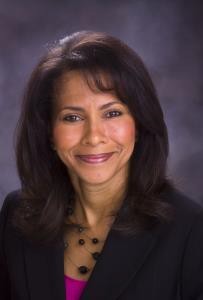
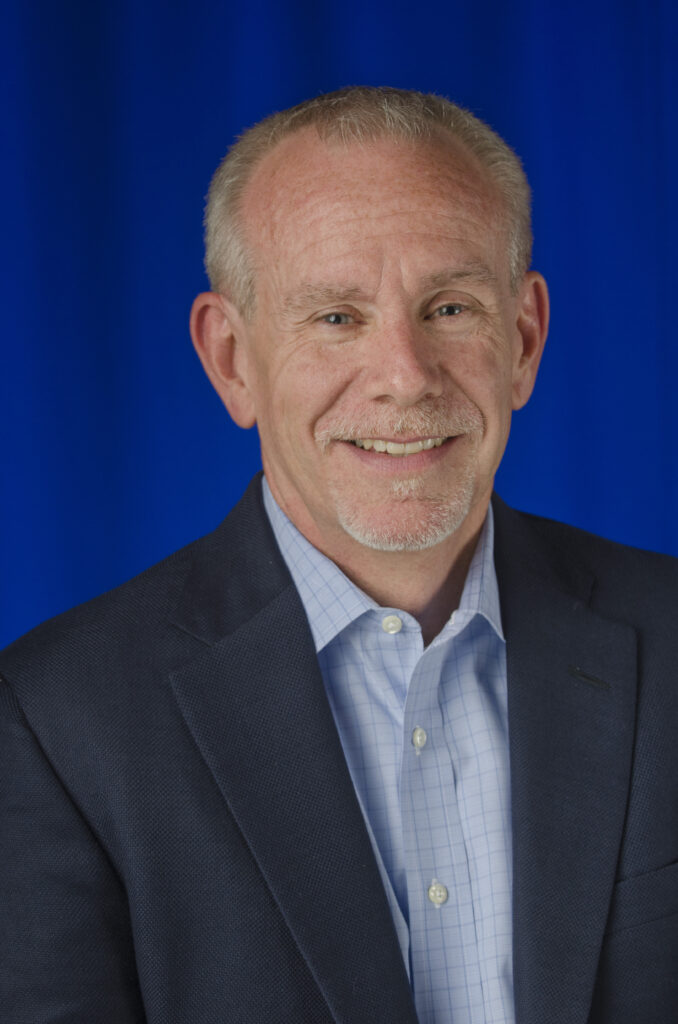
Principal and Chief Wonderer Level Up Event Strategies, LLC
Coming out of college, I was fortunate to get a job with one of the big eight accounting firms – Arthur Andersen (Today, there are maybe four, and Arthur Andersen is Accenture.). I was on the consulting side, versus the accounting side. I soon discovered though, that “consulting” was actually management systems consulting, a term for software development. Arthur Andersen had a great training program, and I knew it couldn’t hurt to know software. But over a couple of years, I realized I wasn’t happy staring at a screen all day; I needed something with more variety and interaction with humans.
It happened that a friend from Arthur Andersen had taken an information technology job with a trade association in Washington, DC, the Food Marketing Institute (FMI). I told him it was time for me to explore a new career path, and he said that FMI’s conventions group was looking for a sales manager. I knew nothing about events, trade shows or associations, but I went for an interview, hit it off with the hiring manager (he graduated from the same school), and have been a part of the events industry ever since.
I enjoyed the work right away. FMI represented the supermarket industry – a fun and relatable industry for me. I worked with big companies like Coke, Anheuser-Busch, Kellogg, Borden and NCR (National Cash Register). It was fascinating and fun. Every trip to the grocery store was a work study mission. Before long, I realized I could both enjoy and grow in a career in events. As I learned more, I became more excited to realize that it was almost an “invisible” industry. People were just not aware of this industry, and that it was successful and growing quickly. It felt like an adventure, and an opportunity to impact a younger and evolving business. I worked my way up to Director of Sales and built a full sales function and team. We grew the trade show to the Top 10 largest trade shows in North America by exhibit area size.
The vast majority of my career has been with trade associations, but I did spend almost a year with a for-profit events organizer where I took entrepreneurial action to launch a new division. I wanted to offer managed services to trade associations, primarily in the DC area. This approach ultimately did not align with the organization’s revenue goals, and I returned to associations to merge my “for-profit mentality” with my values of delivering at a high quality level and serving the needs of the industries that associations represent. I became Vice President of Conventions for the Personal Communications Industry Association (PCIA), which represented wireless telecommunications. PCIA wanted to grow a fairly new trade show. This was the start of perhaps the wildest ride in my career. We tripled the size of the event in 3 years, surpassing another show that had served the cellular industry for many years. We also launched a trade show in Singapore, the association’s first presence overseas.
Just as things were taking off, I was recruited for the top conventions role at NAB. This was, and still is, one of the premier roles in the events space. The NAB Show, which covers the entire spectrum of media and entertainment, has perennially been among the top five or six trade shows in North America, and is among the two most important technology shows on the continent. I landed the job after two tries, and as VP of Conventions, ran all aspects of trade show production – sales, marketing, operations and education sessions (700 a year). In 8 years, I was promoted to Executive VP and given revenue-generating responsibilities. Interesting things we did:
As a leader, I believe in the inverted pyramid – I’m not at the top of the hierarchy, but at the bottom, and my job is to support the team. I ensure they have the tools, information and support they need to do their jobs to the best of their ability. Beyond that, I foster a transparent and honest working environment; everyone must feel that no question is too trivial, and we want honesty with one another about what is working and what isn’t. It is not about assigning blame; it is about sharing information so we can solve problems and get better. I am an “open-door,” always accessible manager. Also, organizations that embrace a culture of “failing fast” are not only going to succeed more than those that punish mistakes, but they also create a culture that values people, ideas and fun. This applies to the small things, in the day-to-day-work, as well as the large.
It is exciting to connect people to people, products and information. We are facilitators and catalysts for innovation, with a mission of driving growth in the industries we serve. Trade shows are enormous drivers of economic value, which is often underappreciated. Each NAB Show drives more than $2 billion in economic activity in the industry; and several hundred million dollars of economic value to the local community. The other aspect that gets me up every day is that I work with great people, and help them grow as individuals and in their career. What we do to positively influence the lives of others is what matters. If we can touch even one life in a good way, then we have worth. And I have learned as much from my team as they have learned from me. Our work depends on close teamwork.
Lastly, there is nothing more exciting than the opening day of a trade show. It is when you see the fruits of your labor come to life – thousands of people coming together, creating a buzz, an excitement, and then flowing into an exhibit hall to see exhibitors. In this business, we work with the ultimate deadline – it cannot be moved, which creates stress, but the satisfaction of seeing everything come together according to plan is unique.
I’d like to offer a lesson learned and some advice to the next generation. There are few things as important as the ability to communicate, verbally and in writing. Be able to express your ideas in a succinct and persuasive way. And share your ideas. Younger professionals hesitate to speak up in meetings; they may feel inexperienced, insufficiently knowledgeable, or too junior, perhaps. We can’t know what you bring to the table if you don’t express your thoughts. It is better to speak and engage than remain silent. We are all in the sales business. We sell our ideas every day, personally and professionally. Those who are better at it are the ones who stand the better chance of success.

Account Executive, Informa Connect
My first job in the workforce was door-to-door sales of cable services. After 3 years, I signed on to a medical education start-up and when a colleague there left and became head of a healthcare nonprofit a year and a half later, I was recruited by them. That is where I was introduced to the event industry. I started as a membership coordinator and registering attendees, then added concierge services for attendees and helping internal staff with the shows.
After 7 months, I moved to sponsorship packages and exhibit space sales for 4 events, one of them international, and over time, my sales responsibilities expanded into digital and print media advertisement spaces and deals on webinars and web series. I majored in History and English in college – the degree helped me get a foot in the door, and my studies helped me be inquisitive. Being successful in sales with such a broad array of products meant I had to learn on the job by talking to my peers and customers, especially the ones representing smaller businesses. I picked their brains, formed relationships, and for 4 years, collaborated to arrive at solutions that gave them value for their investments.
At first, I took events and events sales for granted. I moved on to technology sales and realized that I wasn’t building long-term relationships because selling technology was a single sales event. I missed the satisfaction of getting to know customers, developing relationships, and seeing them year after year at annual events. Remembering the clients and businesses I got to know when I worked on shows, I reached out to an events company that had food service events, applied, and got the job.
Events give me a communal feeling. On the show floor, I strike up conversations with attendees and introduce them to exhibitors and sponsors when I discover common interests. I give advice to attendees on new products and serve as an ambassador for exhibitors. When they ask for changes, I advocate for them. Sometimes, I even introduce attendees to other attendees — we may meet after the show for a drink or bite to eat, and some of them have developed friendships. I enjoy seeing events from the “big picture” perspective, that it’s one whole event coming together as a sum of many parts. I feel I’ve contributed to the overall success of the shows. I also like the ability to travel and meet people, there’s nothing repetitive. But I’m most proud of the key relationships I’ve built. I’ve stayed in touch with former clients, and some will be life-long friends.
My approach to client development is to be diplomatic in a collaborative way with everyone, of any age. I learn from all of them, their life experiences as well as their careers and work. Everyone has inherent value. I’m proud that I’ve met the company’s financial goals during COVID by pivoting with sponsors to provide more education digitally, creating education series, designating thought leaders, and suggesting year-long exposure. I listened to what sponsors wanted in terms of cutting through the noise to get through to their audiences. The industry is education-oriented; they knew not to be salesy, and I worked with the education department to validate the integrity of content and messaging.
I believe in mixing old school and new school. Dad worked all the time, and in the same vein, I try to be available to clients even outside of business hours — after all, I’m asking for a lot of money. On the other hand, I also believe in taking time to decompress. I like hanging out with friends and playing basketball, so when I show up for work, I can be my complete self.
I have a few thoughts to tell the younger generation:
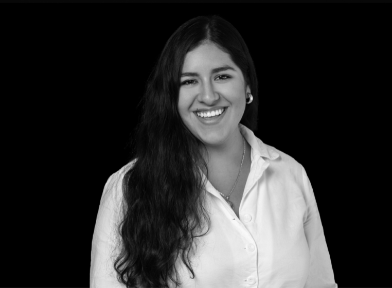
Manager, Event Sales, American Clean Power Association
Like many people in the events world, I didn’t plan for this to be my career, but when I landed a position as a membership and sponsorship assistant at an association, I was captivated by how partnerships and creative activations came to life onsite. It clicked for me during my first event cycle. After months of planning, I watched everything come together in just a few days. Seeing sponsor activations, watching signage go up, and walking through a fully built-out expo floor gave me a deep sense of pride. I realized I could help build something meaningful behind the scenes, and the sense of accomplishment has kept me in this field ever since. I loved the mix of relationship building, logistics, and strategic thinking. That first role opened my eyes to the events industry.
Today, I lead sales for our mid-size events and support sponsorship strategy for our annual conference, which brings together thousands of clean energy professionals from across the country. My role involves helping companies have productive presences at our events—whether that’s through immersive lounges, thought leadership opportunities, or one-of-a-kind networking experiences. No two days look the same, and I thrive in that type of environment.
While I don’t work directly in my degree field, a bachelor’s degree was a requirement for both positions. More importantly, my education gave me essential tools—critical thinking, writing, and time management—that help me juggle tight timelines, shifting priorities, and high-stakes deliverables.
Over the years, I’ve had the chance to lead the sales cycle for several of our organization’s events, contributing to significant revenue growth year over year. I’ve also played a key role in reimagining our sponsorship offerings. One highlight was being honored with Trade Show Executive’s Trailblazer Award, which recognized my contributions and potential in the events industry. It was a humbling moment that affirmed the path I’m on.
Throughout my career, I’ve been fortunate to be mentored by women leaders in the industry who’ve shown me that you can be both strong and compassionate. Consequently, I lead with empathy, clarity, and a strong sense of purpose. I value efficiency, and I also know the importance of celebrating small wins and keeping morale up. My work ethic comes from my roots—I grew up in a family of entrepreneurs and farmers who modeled the importance of showing up, staying humble, and following through.
Looking back over my career, what I have loved most is the blend of creativity and structure. I get to dream big—what’s a fresh idea we can bring to life? How can we elevate the attendee experience—and then work behind the scenes to make it real? There’s also something deeply rewarding about working in the clean energy space. Every event we produce supports a larger mission, and I’m proud to contribute to that. But what makes me most proud is the growth I’ve experienced. I started as an assistant with a spark of curiosity about sponsorships. Now, I’m helping shape major national events, and mentoring others as they navigate their careers.
I tell the next generations:
This field is full of energy, opportunity, and constant change. If you love to build, create, and problem solve in fast-paced environments, there’s a seat at the table for you.
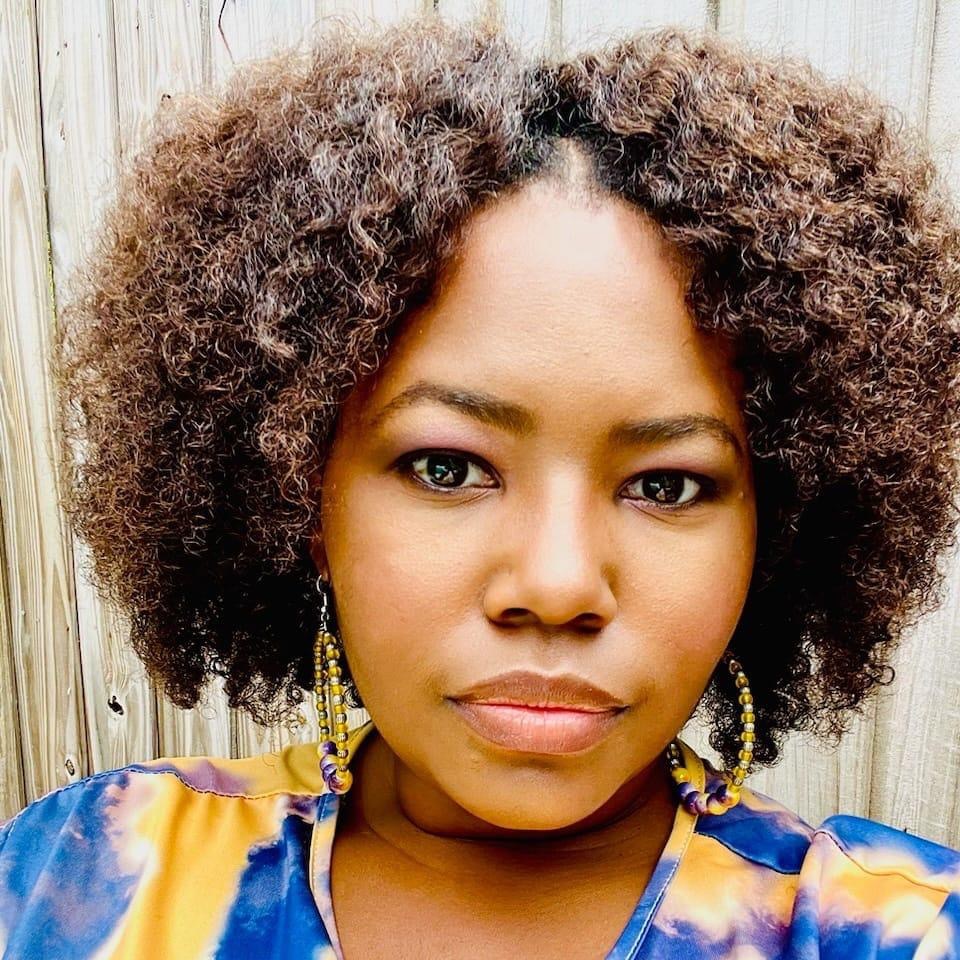
Attendee Engagement Manager, Total Product Expo
My career in events began with a working relationship that grew into a 20+ year friendship. While working at a Boys and Girls Club, I met Dawn—a close friend who would go on to play a pivotal role in my professional journey. When she took a role at a trade association, she recommended me for a position there as well. I spent the next seven years working alongside her, managing membership recruitment and retention, and producing events including networking mixers, lunch-and-learns, golf tournaments, and an annual gala—all while pursuing studies in nonprofit management.
I eventually transitioned into the nonprofit sector as a grant manager for an organization supporting survivors of domestic violence and sexual assault. In addition to managing grants, I helped plan golf tournaments, candlelight vigils, and other awareness events—experiences that sparked my passion for cause-driven event planning. Today, I consult with nonprofits on programming and grant writing, and to produce impactful events, including 5Ks, galas, music festivals, and awareness campaigns. On occasion, I’m brought in on an emergency basis to finalize logistics and ensure events come together smoothly and professionally.
Dawn and I now work together at Total Product Expo, our third company together. From her, I’ve learned how to see the big picture—how every part of an event connects and how to plan proactively. Another key mentor, Meg—the Executive Director at the domestic violence and sexual assault organization—taught me to bring passion and purpose to every project. Their guidance has shaped my approach: strategic, heart-led, and always focused on creating meaningful experiences.
At Total Product Expo, I lead the entire attendee journey— from building registration systems and coordinating marketing efforts to managing hosted programs and shaping the on-site experience. I ensure that every touchpoint is intentional and welcoming, creating a seamless and engaging experience from start to finish. In 2022, I introduced a loyalty program that rewards returning attendees with complimentary registration, hotel perks, VIP lounge access, and curated thank-you gifts. Before each show, I personally call every loyalty member to thank them and invite them back—building long-term relationships that drive strong retention year after year.
Organization comes naturally to me, and I value transparency and teamwork. While our team holds regular weekly check-ins to stay aligned, I make it a point to offer support where needed and foster collaboration across all moving parts. I also continue to invest in professional development and training to grow in both nonprofit and event spaces.
To the next generation, I offer this:
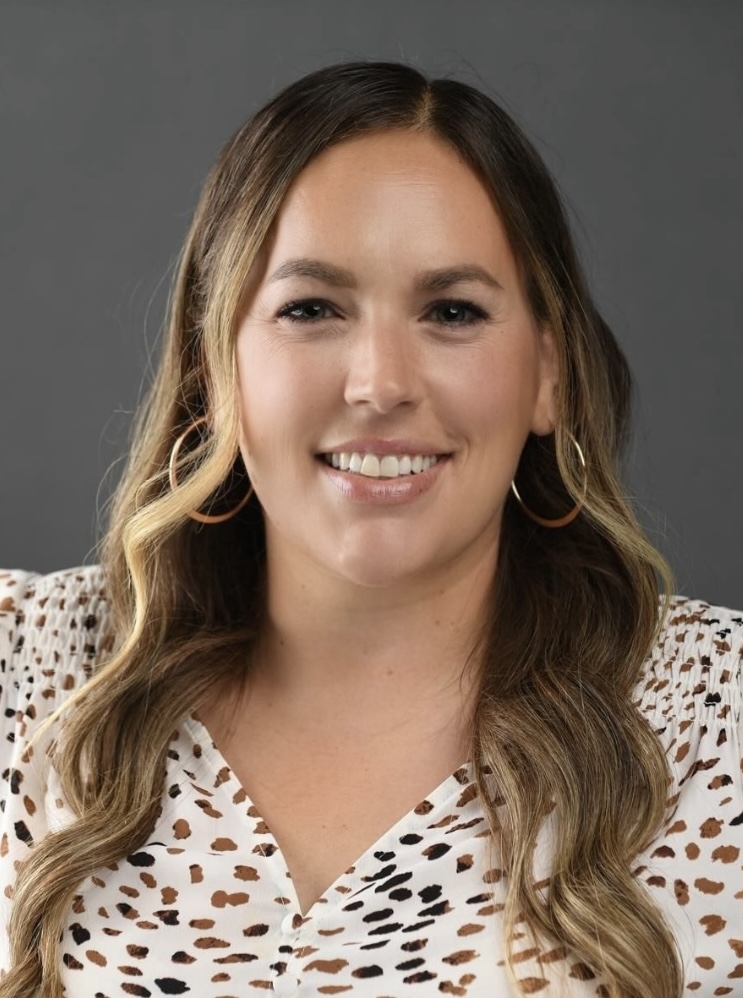
Group Director of Exhibitor Services and Customer Delivery, Clarion Events
My journey into the tradeshow industry was an unexpected yet rewarding one. I went to Fairfield University for communications because, like many college students, I wasn’t sure what I wanted to do. After graduating, I fell into events through a summer internship, and I never looked back. By nature, I’m type-A – very organized and energized by the challenge of managing the countless details that go into each event.
I spent the first 10 years of my career on a small events team at a media company, planning conferences, tradeshows, and awards dinners in the financial services industry. It was a fast-paced environment where I learned to juggle multiple events and adapt quickly. Then, I joined Leftfield Media, part of Clarion Events, as a senior event operations manager working on Comic-Con and anime shows—worlds I knew nothing about at the time! These shows thrust me headfirst into the tradeshow world and taught me to learn on the fly. Hotel-based events didn’t quite prepare me for managing events with 40,000+ fans!
After a few years in operations, I moved into the business-to-business (B2B) side of Clarion Events and began managing the exhibitor services team. Two years later, I took on the event operations team. My teams now oversee the execution of 30 tradeshows a year in the U.S., and I can’t imagine doing anything else. I truly didn’t know the events industry was even an option, but it turned out to be my perfect fit.
My management style is rooted in honesty, trust, curiosity, and empathy. Having worked in many of the same roles as my team members, I understand their unique challenges and prioritize effective communication and relationship-building to navigate challenges. I love to celebrate the team’s wins – big or small. I believe in getting to know my team members personally and seeing them as whole people. I also lead by example – I’m never afraid to roll up my sleeves and jump back into the weeds to get the job done, both pre-show and on-site. I have seen this quality a lot in leaders at Clarion – I remember early on in my career seeing Kelly Comboni, then President of Leftfield Media, jump in to work registration or security at events. I absolutely love seeing a leader jump in with their team and that’s always what I strive to do.
I’m proud of growing two remote teams that feel like close-knit, in-office teams. My teams genuinely enjoy working together and look forward to being on-site, not just to see their hard work come to life but to connect and support one another.
One project I’m particularly proud of is driving the Clarion Cares initiative, where we partner with a local or industry-adjacent charity at each event. We’ve raised money, donated thousands of pounds of food, and contributed art to local hospitals, among other initiatives. We were even recognized at the Trade Show News Network Awards for our efforts.
The travel has been an added bonus. I’ve been to cities I might never have explored otherwise. My advice to the next generation is simple: enjoy the journey. It’s easy to get caught up in the end goal – the event itself – but finding joy in the everyday moments makes the work far more rewarding. Embrace the process, stay curious, and always be open to new opportunities.
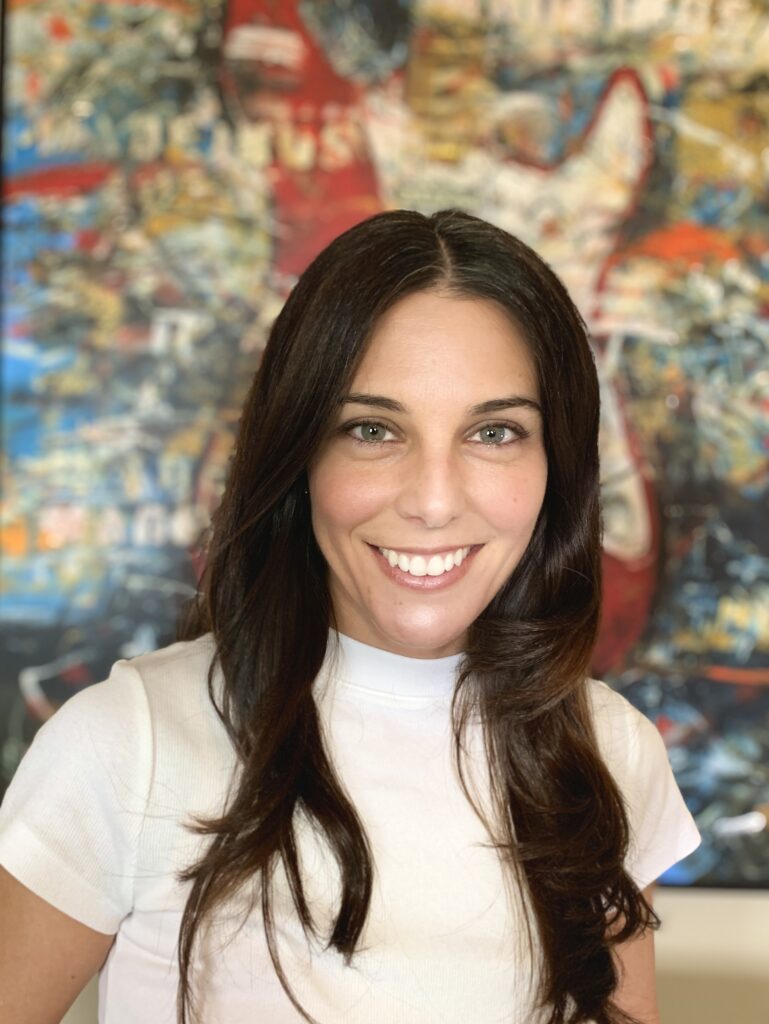
Executive Vice President of Growth, eMerge Americas
I am a second-generation trade show executive. I remember that at an early age, I walked the aisles of arts and crafts shows with my dad, not fully understanding what was going on but enjoyed the experience, nonetheless. My dad never pushed me into any particular career, including trade shows, but he was a fabulous mentor.
In school, I didn’t think I’d end up where I am today. I went to the University of Florida, on track for law school, and took the LSAT, wanting to study international law. My senior year, a pre-law professor whom I adored, urged me to think about what I really wanted, suggesting that I not immediately jump into the law. Instead, she suggested I get a job, and if I were still passionate about the law I could always go back and pursue it later. In reality, I was always a high-achieving student, and I needed a break from the academic setting, so I got a job. Enterprise Rent-a-Car recruited me out of college; it has the top first or second business management program in the country. There, I got a ton of real-world experience. I was 22 years old and ran my own branch of 10 employees, a fleet of cars, and had responsibility for profits and losses. After 18 months, I decided retail wasn’t for me.
Then Dad said, “I don’t want to influence you any one way, but I think you’d do really well in my industry.” He said I had the right personality, so I gave it a try. I got a job with Hanley Wood (now Informa), in Dallas. I moved myself from Florida to take an exhibit and sponsorship sales position, selling events in the construction industry. It was not a good time to be in construction; it was the housing crisis of 2007 to 2009. Well-established shows were disappearing overnight or struggling to stay afloat, and companies were going out of business. Cutting my teeth in trade show sales, this was a huge learning experience for me. It was tough but I did well, got promoted, and survived.
A pivotal moment was the next job — definitely a stretch now looking back on it. Jenn Hoff, President of NTP called to say they needed a new director of sales to manage a portfolio. Up to then, I had only managed one show but Dad said I’d be fine. I interviewed, got it, and moved to DC with a packed car. NTP was a game changer in my career for many reasons. I worked really big shows, they were among the top 30. Then Bob Harrar, the Founder & CEO of NTP, tapped me to head up sales for the company’s proprietary events and new launches. This took a different skillset. It was super fun work, it got me jazzed. We failed miserably with some of our launches, but we learned from them – others thrived and still around today.
Our COO, Karin Fendrick, believed in me, was incredibly supportive, and took a lot of chances on me. I was in the trade show industry 4 or 5 years when the vice president of sales stepped down. Karin gave me the job to manage 15 events. NTP got me a mentor, Dan Cole, who was my sounding board. We met whenever I was unsure about anything — employee questions, the events – and he gave me a lot of confidence by affirming and validating what I was doing. He told me to trust my instincts. That was the turning point for me. I had an established career. I liked what I did, and I could continue to grow and learn. I’m still doing new things, branching out (I’ve added marketing to my job at eMerge Americas).
But life has a way of throwing you a curveball sometimes. In 2015 my husband got a great career opportunity in Florida. Even though NTP was tracking me for an executive position, we decided to go to Miami, and I would focus on my young family. So, I resigned and started a consulting business that lasted 7 years. It was a huge decision and a big risk to go out on my own and try something completely different. Ultimately, it was incredibly rewarding and I thoroughly loved turning shows and teams around, bringing them back to profitability and productivity.
I consulted with eMerge Americas part time at first and slowly, my involvement grew into a full-time position. Now, I feel I’m doing the best work of my career. The team is amazing, the work is challenging, we have lots of aggressive growth goals and we’re hitting them. I‘ve realized that I like launching shows more than sustaining mature ones. It’s harder, but more rewarding. I’m more willing to take risks in the self-discovery phase, when new or young shows are looking for their place in the market. eMerge is there and now we are scaling, the second phase. It’s entrepreneurial, it still feels like a young company, and I’m surrounded by talented people.
I try to empower the team because that was a positive influence in my own professional journey. I pick smart, driven people and let them run with it. In marketing, I know my teammates’ strengths and my weaknesses. As a company we set high expectations, called B.H.A.Gs. (Big Hairy Audacious Goals). It’s important as a leader to set big goals, set the bar high, and work hard to get everybody behind them. We must make the impossible possible. We often say, “teamwork makes the dreamwork”.
Here are three thoughts for the next generation:
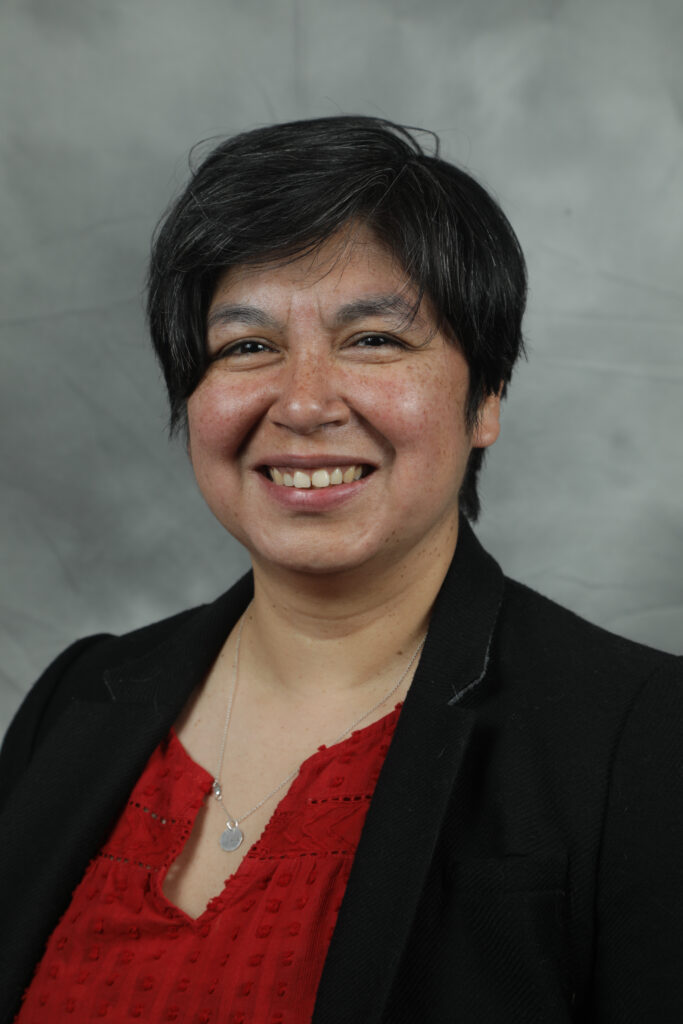
Event Director, RX Global
I went to school for accounting. I thought it was practical because I wanted to run my own business one day, though I didn’t know what kind of business or exactly what I really wanted. Accounting seemed like a safe option, instead, an accounting job after school made me feel stuck. I’m a creative person and I wanted to be the person making the budget decisions. I decided to take a temporary job to get more exposure and experience, and to give myself time to think about the direction I wanted to choose.
I ended up finding a job at an association management place called Smith Bucklin. On the phone, I answered callers’ questions. The more I learned about the association, the more I learned about its tradeshow. Callers wanted to know how to renew their memberships so they could get admission into the show. I didn’t know what the big deal was about the event nor what a show really was, but I was intrigued. I began to help anywhere I could. I stuffed give-away bags, helped with registration questions, made badges, and helped with random marketing pieces. Before I knew it, I was working full time for the largest beauty tradeshow in the nation, America’s Beauty Show. My duties expanded to selling exhibit booth spaces and sponsorships, creating exhibitor manuals, registration, marketing and setting up conferences. I learned that running a show was just like owning my own business and I absolutely loved it – it was just thrilling.
Twenty-five years later, I’m an Event Director for two manufacturing shows. Over the past decades, I have learned a lot. The industry is big, it’s given me a lot of growth and accomplishments. I grew a show from 100 exhibitors to 400 exhibitors within 4 years. I created unique sponsorship opportunities that are now used in other shows. I have won awards like the Fastest 50, recognizing the top 50 fastest growing shows in a particular year.
My management style is pretty laid back, and I am big on communication and being open about successes as much as failures. I manage a team of 10 folks, and I make myself available to them. I believe in rewarding a job done well. I love my team; I love the industry I represent. I’m proud that we provide a space for the manufacturing sector to show off its products, and connect companies to new business. I have made a ton of connections that have become lifelong friends.
Some lessons learned and advice I would like to pass to the next generations are:
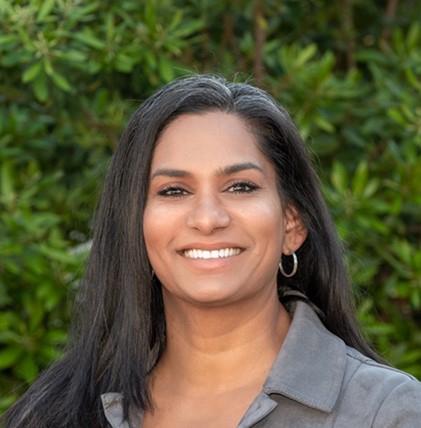
Manager, Exhibit & Sponsorship Business Development, APCO International
I didn’t plan to go into the hospitality business, but my first job was as a front desk agent at a hotel, and later, night auditor. Then I went to a timeshare company where the job went beyond selling individual hotel rooms to promoting events and activities at timeshare locations, and later, managing accounts at celebrity resorts.
Into my life came Allan Anderson. He observed me working and waited until I had a break. He called me over and said he admired my energy and customer service, and invited me to be a front desk agent for a luxury, ocean beach front hotel. I told him I didn’t have the experience, but he said he believed in me. He supported me when I was promoted to sales coordinator, handling the website and sales support. When the property changed hands, I moved to the Flagler Chamber of Commerce and became a tourism coordinator, promoting the area as a destination. I learned how to sell restaurants, the beaches, the trails. Because it was a government organization, I worked with county commissioners and the city of Palm Coast. And, I was able to take a leadership training program about various industries that matter to the county.
After that, I went to St. Johns County Convention and Visitors Bureau (CVB), my best and favorite job. During the 15 years I was there, the industry opened up for me. I was responsible for all markets from the entire county to individual cities and beaches. That’s where I came to understand how to give people a destination experience. We produced weddings, military reunions, family reunions, corporate retreats, government meetings – each market has its own language, and each was always evolving because of world events, economics, social dynamics. I was in sales and marketing; it kept me on my toes. At the same time, being in marketing, I increased diversity in our publications and collateral to appeal to minorities and LGBTQ+. When we had minority clients, I worked the accounts. Unfortunately, I felt I was overlooked for some promotions, even though I was able to bring in a lot of minority business.
While I was working, I went back to school. I completed a B.A. in Public Administration, and a Master’s in Public Administration. In my last semester, I decided to work toward being a college professor as a way to give back. It would also add to my career options, so I earned my doctorate in Education from Nova Southeastern University in Ft. Lauderdale. It was difficult juggling a job, a family, and a PhD program, but now no one can take my degree from me. It’s personal, I want to support women and minorities, honor my parents who value education, and teach adults like me. My dissertation on diversity and visitors’ bureaus won an award.
Now, I am with the Association of Public-Safety Communications Officials. I’m proud that I’ve reached a point in my career where I have earned the right to think, “You need me, I don’t need you.” I will always be grateful to people like Allan, who saw more in me than I did. I am still in touch with him to this day. I am glad that I was my genuine self, being helpful and energetic in my job, wanting to be friendly and helpful at the hotel front desk because it’s what impressed him. Without knowing me, he was willing to gamble on me, and he exposed me to a whole new world that I loved: sales and marketing. I love what I do even though I may not love every job. If you think about it, you’re always selling yourself. The more authentic you are, the more you’re influencing people.
I worked for a sales manager who saw what I could do and that I had my eye on the end goal, so he was open to my ideas. This was fortunate because I tend to be forthright, and I believe in transparency. I don’t sugar coat or beat around the bush. I am professional, respectful, and empathetic to say what I need to say. If you believe in the bigger picture and work with everyone to get to that end goal, you will gain others’ trust. I started out more for me — my end goal, what’s good for me — but found that wasn’t satisfying. Working tightly with a team is not only more gratifying, but it also gets the jobs done better. Over the years, I’ve been on the alert to avoid working in siloes – we have to share knowledge up, down, and across; welcome criticism; and not take things personally. That’s how we grow. And when the chips are down, invest more. I also find that recognizing and rewarding others’ achievements helps to make them feel more secure. And then I tap into what they’re good at, and build on it to the benefit of the projects, the organization, and the people.
I am an instructor at the local college on GED skills. I engage with students, get to know them and their lives so that I can align them with their studies. I encourage them to be authentic; they don’t need to put on a front or exaggerate. I show them they can do it. This is the approach I also take at work. I tell my students and staff to believe in themselves; it’s okay to be different, to be heard. Lastly but most importantly, I believe in education, it provides you a platform of options.
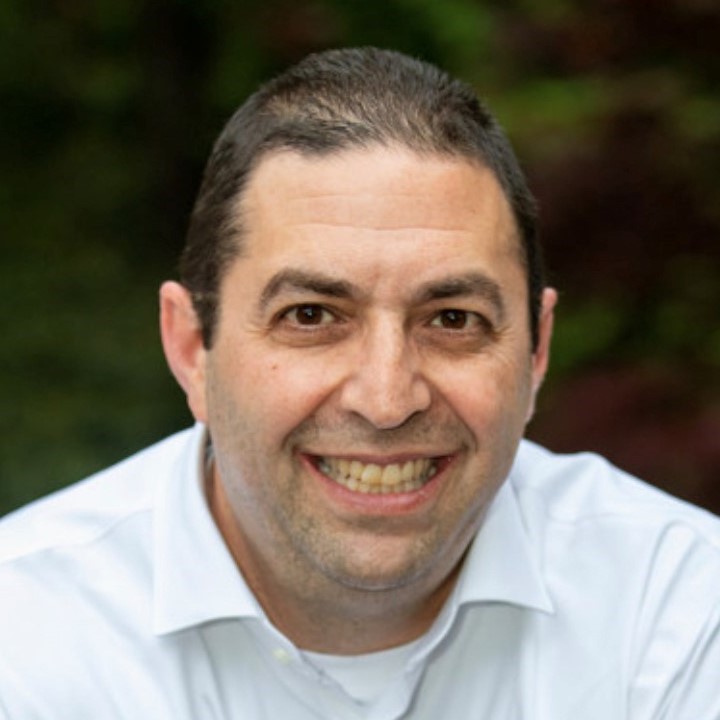
Global Head of Value Creation and Strategy, The Operating Partners Forums, PEI Group
I got my start in shows when I was 13, supporting sales and event production for sports teams and organizations. I read Mark McCormick’s biography (founder of IMG, one of the first sports agencies). He was a visionary in his time, planning to place athletes he represented in events he created, where there would be sponsors and product endorsements. Here were all of my interests — sports, events and making money – colliding. The combination became the basis of my career, organizing events in the sports world. I was so fortunate to be surrounded by tremendous mentors and advisors. I got to know owners and managers, and received sales training from professional trainers. I learned everything from grassroots marketing to television production; and detailed operations planning and staffing to executing the event.
I graduated from The Pennsylvania State University (Penn State) with a degree in Management and Organizational Behavior, and a minor in Event Management. Here, I secured my first internship, which in 1991 was a rare opportunity not easily found without internet, for the Newport Beach Dukes of the World TeamTennis League. It was followed by stints with the Hoop-It-Up 3-on-3 national basketball tour, and then to conferences and trade shows. I was awarded an MBA in Marketing from Gabelli School of Business, Fordham University, in New York City.
My time there coincided with my launching a technology event that grew into a 3,000+-attendee, 250-booth trade show. The journey I took as a solopreneur opened my eyes to the incredible and huge world of face-to-face events. I wore all the hats from content production, speaker recruitment, and operations to marketing, sales, and attendee acquisition. With the growth and sale of this event, I was honored by the industry for my accomplishments, including three of the prestigious “Fastest 50” award, for being among the fastest 50 growing events in North America. Where else can you have a crazy idea and turn it into a living, breathing, vibrant marketplace? The show had a successful 20-year run, and then Hurricane Sandy put an end to it. And just like that, a new phase began. After several consulting opportunities, I was able to bring all these skills together in my current role.
Having done all the aspects of a show allowed me to have a greater understanding of what my colleagues dealt with, and allowed for much better communication and teamwork, traits I found valuable on the basketball court, and I still find critical to building a proper culture. My management style is collaborative. While someone must make the final decision, I like to hear all viewpoints first. To be a great leader is to be a great listener. Every team member brings a unique view of the situation, and the best answers usually are a combination of everyone’s insights.
The way I conduct myself as a professional is influenced by so many people. They have all at one point or another provided inspiration, guidance, and leadership … and the occasional kick in the pants. I will always be grateful to Rick Worden and Bob Shannon who funded what turned into KioskCom, the tradeshow I built and sold. I cannot express enough gratitude to Joel Davis, the first industry insider and expert who validated my philosophy and event and opened his world to me and showed me that I was on to something. To Josh Kampel, David Kirkpatrick, Simone Ross, and Seth Kerker who all invited me into their firms and worlds and took a chance on me.
However, my true mentors have been my parents. My father taught me many things but one that has held and one I would recommend to everyone starting their career path is, “Make sure your resume makes sense, without explanation. Make sure your career journey is understandable easily so they can see your growth.” My mother exposed me to the world of professional sales. She brought me to the feet of sales and revenue generating professionals, who taught me at 13 that everything is a negotiation and everyone is selling something. She gave me insight into the human mind, and had me taking skills and personality profile exams in the 1980’s. The results of those tests, along with many since then, provided me unique insights into areas for professional improvement.
What I love about our job is we create economies. We help companies and entrepreneurs launch businesses, sell products and services, and do so in a fun and exciting way. Understanding how we help others succeed continues to stimulate and motivate me daily. But my biggest accomplishments are the people I have helped grow, personally and professionally. To see them create careers and support their families in the face-to-face event business and pay it forward to others provides me the greatest joy. The ability to make others around me better, and their subsequent success is what I believe truly defines me as a leader.
I find inspiration everywhere and from everyone. In turn, I offer this advice to inspire others:
I’ll leave you with 10 quick thoughts that I always try to remember.

Director, Global Business Development, International Association of Exhibitions and Events (IAEE)
My entry into the industry began at the Denver Metro Convention and Visitors Bureau (CVB), now Visit Denver. I started in the telemarketing department, which was a foundational experience, and within a year, I advanced into a sales role. I worked the West Coast and mid-U.S. markets, and grew into city-wide sales in those territories, with a variety of business events and clients. Sales has been an integral part of who I am, even before my formal business and marketing education. This natural inclination and early experience in sales were more influential in landing my first job than my academic background. While my education provided a theoretical framework, the real learning happened on the job.
The moment I realized this was the right career for me came when I moved from telemarketing to account sales, where I could engage with an array of customers from diverse associations and corporations, and deepen my understanding of their unique goals and objectives. Spending significant time collaborating with teams at the convention center, hotels, venues, restaurants, and city officials gave me a sense of connection in the local community – every day brought new challenges and opportunities with different stakeholders. I often describe events as the “fun” industry, but it is clear that its impact goes far beyond that. The economic factor is profound, driving growth, employment, and innovation. Knowing my work contributes to meaningful outcomes across sectors and helping my city thrive while doing something I love, solidified my commitment; It confirmed that this was more than just a job – it was a fulfilling career.
The most interesting role I have had was Executive Vice President for Membership, Business Development and Technology. Technology is not commonly paired with sales and membership, but in the association world, robust Association Management Systems (AMS) manage everything from membership and sales to accounting and commerce. Because I knew our AMS inside and out, I was entrusted to lead the technology stack, ensuring technology supported every aspect of the association’s operations. I learned a tremendous amount by bridging business development and technology, and I genuinely enjoyed the challenge. Having the oversight role allowed me to streamline processes, improve member experiences, and help the association grow in ways that would not have been possible without a strong technological foundation. This blend of strategic leadership and hands-on involvement made the role especially rewarding and memorable.
As for accomplishments, I am particularly proud of booking these clients:
I attribute my success to relishing challenges. Most colleagues would describe me as highly determined and driven to meet revenue goals—a characterization I fully embrace. In fact, the more challenging a sale is, the more motivated I become to close it. Also, I am deeply committed to servicing my accounts, ensuring that everything runs smoothly and that my clients’ needs are met. This involves building strong relationships, understanding client goals, and proactively solving problems to become a trusted partner. In addition, I pride myself on being honest, ethical, and creative. And, over the years, I have learned the importance of not procrastinating. This means I set clear revenue goals, track progress and measure results, and continually align sales efforts with broader business objectives, refining strategies to maximize impacts on those objectives.
Three former bosses have been pivotal in shaping my success:
In addition, I love meeting people and building friendships, and traveling to incredible places. This industry is uniquely rewarding—not only because of the work itself but also the continuous learning and genuine fun every day. The relationships I have formed have enriched my personal and professional lives, creating a network of colleagues and friends who inspire and support me. Traveling to diverse destinations and experiencing diverse cultures and venues add exciting dimensions to the career, making each day an adventure.
From what I have learned, I have this advice to the next generations:
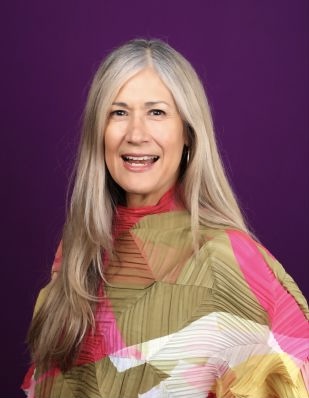
National Sales Director, Discover Puerto Rico
My very first job was as a hostess for a fast-food chain restaurant when I was 14 years old. Between that job and my first hotel job, I worked in restaurants and retail. By the time I went to work at a hotel 29 years ago, it was as an executive meeting manager. My education in Business Management helped me understand how companies make money. At the hotel, I was to help create great events for companies while saving them money. College also taught me how to write and present information to people, and how to think critically. These are skills that I use every day.
I knew hospitality was the industry I wanted to grow in when I heard a guest speaker tell the team about the enormous opportunity to serve others who needed rest. Rest and relaxation are what people pay for when they go on vacation and stay at a hotel. I pretended the hotel was my house. In addition to rest, they wanted to gather and meet others for business, so I fell in love with event planning. Lastly, I learned about tourism and how that helps a destination thrive. Most of my time today is helping meeting planners bring conventions to Puerto Rico. I was born in Kansas and raised in Puerto Rico. My typical day is working from home on the computer, making phone calls, presenting, and traveling to various conferences monthly. I love helping my island of Puerto Rico obtain prosperity through meetings and conventions. I am now in my favorite job.
When I was a Social Catering Manager at the Ritz Carlton, my task was to ensure flawless social events like weddings, birthdays, and anniversaries. The Ritz Carlton has a reputation for quality; everything we did had to meet the corporate standards. Families paid a lot of money to stay at the Ritz Carlton and have us produce their events, so their expectations were high. For every event, there were many moving parts, and I was responsible for making them all come together smoothly and on time. My clients had high expectations, and they deserved top service. My stress levels were high, but I was dedicated to delivering wonderful events. I had an amazing team; every member was professional and knew what they were doing. They knew how to bring all the moving parts together efficiently and cleanly so that our guests had the best experiences.
I would like to say that my management style, cooperative leadership, helped the team as much as the team helped me. I want to be surrounded by people who are smarter than me so I can do my job better. My best mentors have been servant leaders who put others first. They allowed others to take their vacations before they did, they wanted others to grow in the company.
What I have learned from my mentors and hands-on experiences, I would like to pass on to the next generations as they build their careers:
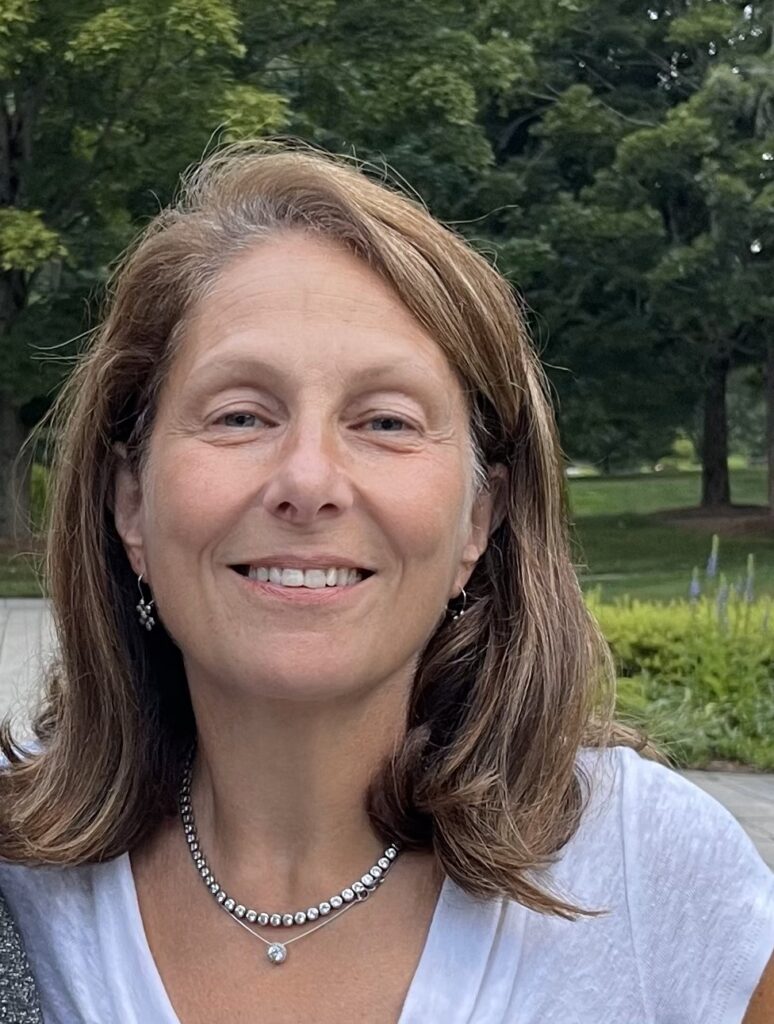
Director of Industry Relations (ret.), PRRI, Inc.
I graduated from the University of Massachusetts with a B.S. in Hotel & Restaurant Administration from the Isenberg School of Management and a B.A. in German. After I graduated, I found work as a sales manager for Marriott Hotels. While there, I completed their I.D. management training program at the Somerset, New Jersey, Marriott Hotel and later was transferred to their property in Lexington, Kentucky. After spending a few more years in the hotel business I started in the event industry. Like many in my generation I didn’t intend to go into the trade show business, I fell into it. I joined The Interface Group in 1987 and just fell in love with the business. The Interface Group produced COMDEX which was one of the largest high tech trade shows in the world. My trade show education began at COMDEX and formed my future in the industry. I was lucky to learn from some of the best in the business about sales techniques and trade show operations domestic and international, at positions at COMDEX, Digital Consulting Inc., Freeman Companies, National Managed Healthcare Congress and finally PRRI (an association management company).
I loved the work because there was nothing routine about it. Different issues arose onsite, and we were forced to think on our feet. I learned there is always a solution for any problem. The most enjoyable part of this industry is that I am always learning and that, particularly, is one of the most important aspects of any job. I am happy to have had the opportunity to learn the tradeshow business of sales, development, management and general contracting domestically and internationally. When you stop learning, move on to another job, there is always more to learn. The tradeshow business gives you the opportunity to create a meeting, exhibit, conference, from an empty “floor” to a flourishing meeting place of attendees and companies who want to engage.
I’ve just retired from PRRI, a medical association management company, where I worked for the last 24 years. I supported 28 medical associations. Starting from nothing, we brought these events to life. It’s so fulfilling to see a full blown congress in session as a result of hard work and coordinated efforts. Raising funds through sponsorships and exhibit sales, and ensuring exhibits were set up to the satisfaction of the exhibitors as well as the board of directors, was the highlight of every meeting for me.
Over the years I have learned that having a strong work ethic is important — you won’t have a show if you don’t put in the work. Finally, one of the most important skills to develop is a sense of humor. Your team, your customers and your supervisors will appreciate it!
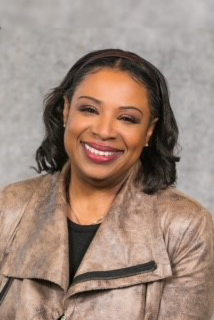
Director, Corporate Partnership and Exhibits, 340B Health
My career path in event planning was not by choice; it was due to a posting for a meeting planner position that piqued my interest. The job description was very interesting, and it entailed traveling, working with all types of venues, and more importantly, I saw an opportunity to network and meet some fascinating people in the industry. My introduction to meetings and exhibits was with the Consumer Electric Show (CES) as a meetings and events coordinator. I gained a great deal of experience from this position and embarked on a career in the Association world as a meeting and events professional that has expanded and grown for more than 17 years. While the hours are sometimes long, especially during conferences or meetings, the result is rewarding.
As time went on, I served as a member of the senior staff and produced successful events in the U.S. and globally, ranging in size from 30 people to more than 5,000 attendees. Over the course of my career, I’ve been active in the events industry and served on customer advisory boards for several cities, and a number of committees.
In addition to being a Certified Meeting Professional (CMP), I am also a Certified Scrum Master (CSM). You may ask, what is a Certified Scrum Master? Scrum masters are the facilitators of scrum, a lightweight agile framework that focuses on time-limited iterations called sprints. These sprints and scrum help teams improve organizational processes. As facilitators, scrum masters act as coaches to the rest of the team. I apply most of the scrum principles to projects to ensure deliverables are met in a timely manner. I embarked upon this during the pandemic when my position was eliminated in 2020. I quickly turned lemons into lemonade by becoming an entrepreneur of home and body products, something I’ve always been passionate about. I continue to do this in addition to my current position as Director of Corporate Partnership and Exhibits.
I pride myself on getting the job done, going above and beyond with a goal of always putting members and clients first in everything I do. I have been influenced by so many knowledgeable industry colleagues and have had great mentors, especially during my 15 years at the American Counseling Association from 2003 to 2017.
There are many things I love about the positions I have held in the past and currently. One in particular is meeting and interacting with people on all levels and backgrounds. The second would be the travel aspect that has allowed me to go to cities and countries I might not have otherwise visited.
Some lessons I have learned is to trust your gut and don’t be afraid to ask questions. One of the quotes I live by from the great Maya Angelou is, “Success is liking yourself, liking what you do, and liking how you do it.”
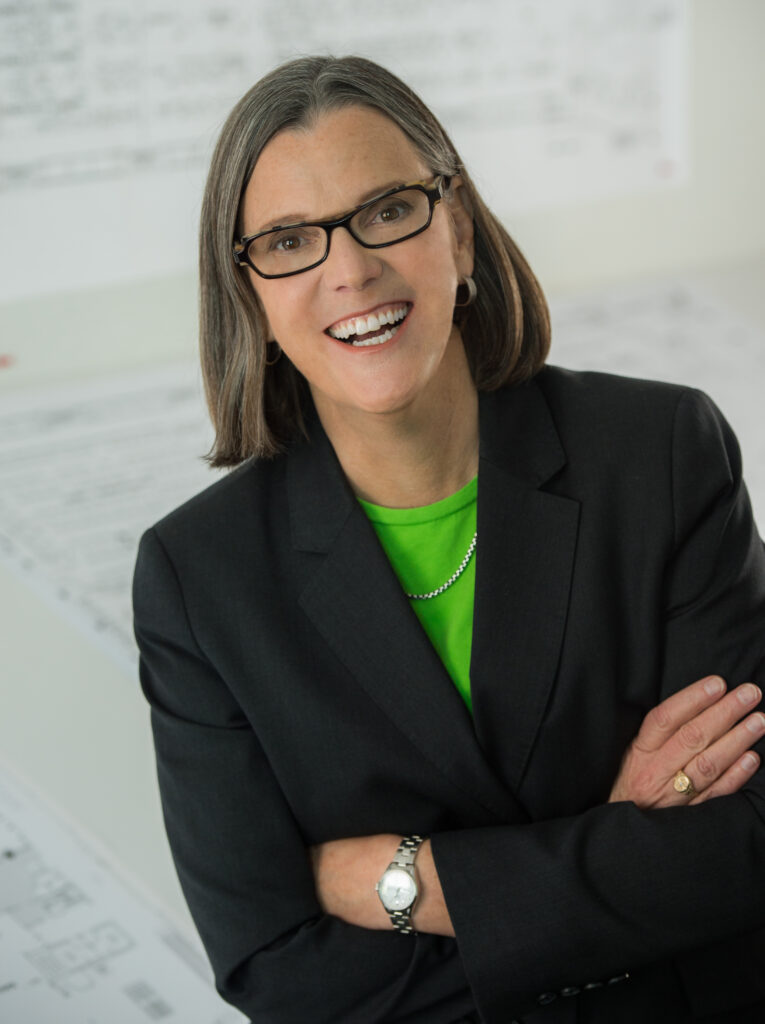
President, MPH Solutions
I was a marketing major in college and fortunate to have a marketing professor who engaged us in real life marketing disciplines. He took us to the Housewares Tradeshow in McCormick Place in Chicago, and I was immediately hooked. The energy, magnitude and diversity of products being demonstrated, commerce, and comradery between exhibitors and attendees spawned my love for trade shows. It was exhilarating and inspiring to know there was such a career opportunity — and it was all there in front of me. That experience was life changing.
As I have progressed through my career and my network and opportunities have grown, I have often thought the Housewares Show was my winning lottery ticket. Since then, I have been all in. For 30 years, I led a top 20 U.S. tradeshow: the National Restaurant Association Show. I have spoken at international and domestic events including EXPO-EXPO, Professional Convention Management Association (PCMA) Convening Leaders, Exhibition and Convention Executives Forum (ECEF), and Gold 100. I have been active in membership and engagement for the International Association of Exhibitions and Events (IAEE) since 1991, and I was Chair of Major American Trade Show Organizers (MATSO) and Center for Exhibition Industry Research (CEIR).
I have had several specific accomplishments and recognition; here are some of the top ones:
My father started an independent shoe store chain in the early 1960s that lasted into the 1990s. Early on, he instilled in his children a strong work ethic. He taught us the value and necessity of hard work in everything you do and doing it well. We never had an allowance. My brothers and I were required to work in the store from a young age, marking stock, vacuuming, cleaning the bathrooms, keeping the parking lot clean. We later graduated to working with the customers on the store floor. Working in retail, I learned to have a disciplined, positive disposition while interacting with the public. Serving a diverse customer and employee base, one must have a positive attitude and the ability to work with all cultures and personalities. I am a people person and genuinely love convening and meeting people.
Early in my years of managing team members, I had a difficult individual who performed well but was difficult to work with. My supervisor suggested that I recognize him when I see him doing something good. To let him see you appreciate him, she said. Over time, acknowledging his positives when having a difficult conversation with him, softened the criticism and it was received constructively. As it came from a point of developed trust, it was easier for him to accept; and it worked. From then on, frequent recognition of individuals and teams became a hallmark of my management. I would characterize my management style as a blend of coaching and charisma.
I am particularly proud to be able to say,
I would like to share the following lessons and advice I learned in my career:
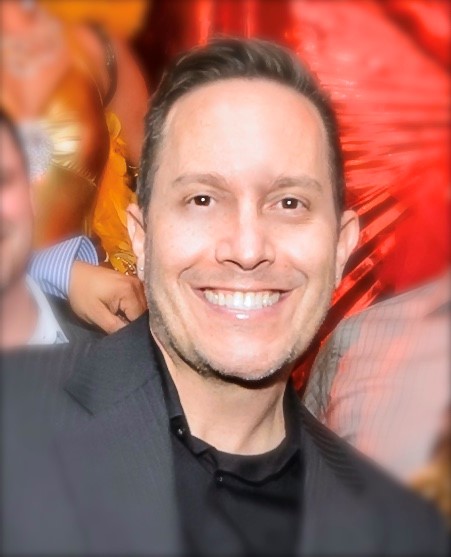
Founder, President, CEO, and Director of Event Creation, Tomorrow’s Event Productions (TEP)
I grew up on the poor side of town, in a trailer park. I went to a junior college and took business and English classes. I did not go to school for this. I knew nothing about events. Zero. One day, when I was 21, a young woman friend asked me to accompany her to a wedding. It was my first such event, and it was so much going on all around me. I was amazed. And it had a deejay – I had never seen a deejay before and it was the coolest thing I’d ever seen. At the end of the reception, I went up to him and got his card. I called the number a couple of days later, got an interview, and landed a trial gig at a bar. I put my own playlist together. By the end of the evening, I had received a lot of positive comments and a lot of tips. The company helped me get more experience before I could play at weddings.
A year later, I started my own company, providing music, lighting, and other audio-visual services. A year and half later, I bought the deejay company I started with. We played for well-known entertainers, and we were considered a top deejay company in Los Angeles. An event planner with BP brought her VIPs to an event we created for her. She said to just play music, but dancing music wasn’t necessary because no one would dance. By 10:00, everybody was dancing, and the event extended 2 hours past the scheduled closing time. BP became my client for 15 years, and she became my mentor and Mom-friend. She believed in me and helped me to build a 30-year career.
TEP continued to diversify with lighting, sound, A/V, graphics, multi-media, and video services. And we grew to seven full-time and 50 freelance employees with annual revenues in the millions of dollars. We’ve traveled internationally with our clients, serving hundreds of celebrities, government officials, and corporate executives from Fortune 500 companies, supporting business as well as personal events, some as large as 3,000 people, though my sweet spot are the ones with 300 to 400 people.
I attribute this success to first acknowledging that I was an entrepreneur and creating experiences rather than simply putting on meetings and events was my path — I wanted to go with it and go big. It is important to be true to myself, dream big, and let my gift – what I was suited to do — ripple into the world. It feels good to go into a room and create an experience. Second, I have surrounded myself with the best people, who know what they are doing, to produce great events. I know I can’t do everything, so I hire the best people, and let them do their jobs. I create an environment of collaboration, and invite ideas. I treat everyone as an equal and allow employees to be who they are. As a result, all of my clients say they trust me and give me full autonomy.
I know I did my job when the doors open and guests say, “Wow,” and take out their phones. At a wedding back when I was deejaying, an elderly gentleman who was in a wheelchair and appeared to be quite feeble, got out of his wheelchair and danced with the bride. This is a measure of my effectiveness. It’s an honor to be a part of others’ milestones, knowing I am able to bring value, fun and joy; bringing life to a brand or social event. I know I’ve made a difference when clients remind me of memories of events I’ve done with them. I like to look back at the arc of my life, seeing how things started, where I grew up in Hawthorne, a neighborhood bordering Watt and Compton, and thinking about how it might end. I get the biggest rush when I speak to kids from these neighborhoods, show them pictures of my events. They relate in some ways, telling me they were in charge of the balloons at a family party, for instance. And I remember the look on my father’s face when I did an event for his company.
As a mentor, my advice is to be truthful, have a smile, show up on time, bring joy, be light, and you will always work and people will want to be around you. Believe in yourself and your worth. Look presentable, do your homework before you meet with people, show up prepared, have something to say, and be excellent with what you do.
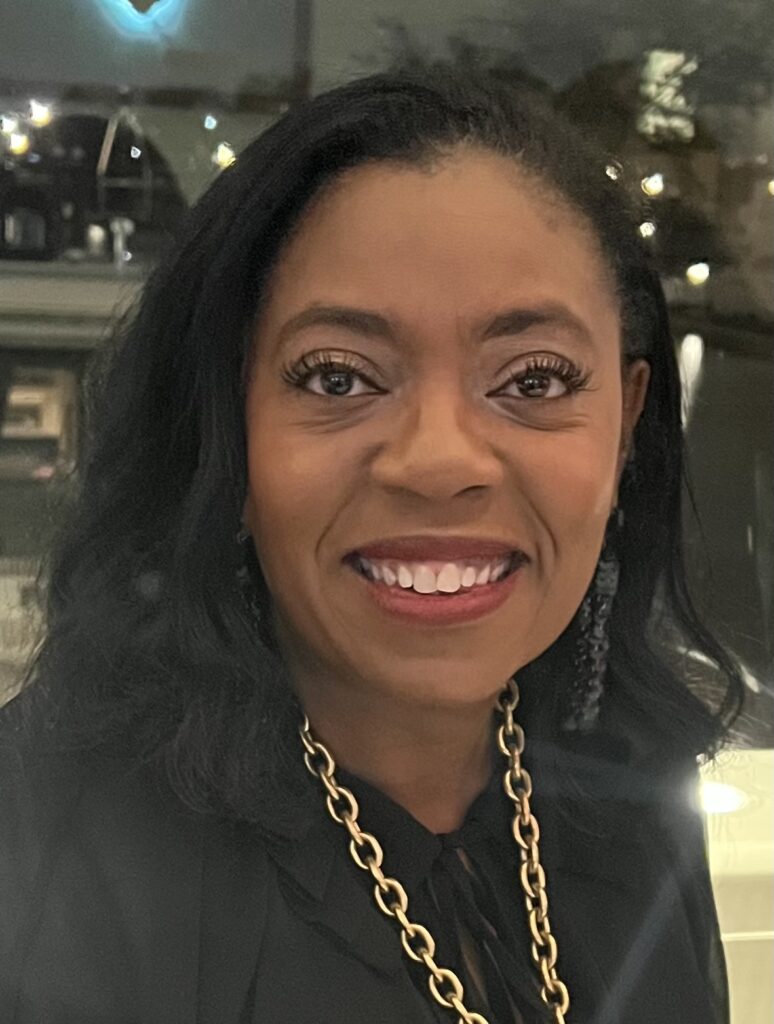
Director of Event and Sponsorship Marketing, The American Institute of Architects
Because of my interest in design, I started as an architecture major at Hampton University, VA; it had a top-notch program in the field. I didn’t realize that the program was geared to incoming students who would have already had some years of drafting experience. I had taken one drafting class in high school, but it wasn’t enough. Two other obstacles arose soon after: there were very few women in the program, and we felt we needed additional skills training; and one professor threw projects on the ground and crushed them, and then questioned our reasons for being in the program. So I thought I’d better change my major and not waste my Mother’s hard-earned money sending me to college.
My mom asked if I really wanted to do architecture. She worked two jobs to put me through college and she said the funds would only be enough for four years. More than the practicality though, was that she knew me. Architecture involved a lot of alone time, but she knew I was a people person. I had to find something that combined my interests in creating and participating while adding to the bottom line (I had aspirations of one day being a CEO, of running my own company.). So, I switched to marketing and have been in marketing and sales ever since, in both private and public sectors. My first job out of school was with Canon, in New York, where I conducted product demonstrations and training at client sites and in exhibition booths at events. I went on to other tech companies as well as services and consulting. Now I’m managing marketing and communications for all events at AIA, supporting a wide range of functions such as attendee acquisition and business development, with strategies, campaigns, collateral, websites, social media, and tactics.
I am particularly proud of my campaigns – I love creating them and seeing how they perform. I like putting a variety of elements together to create a program, and then launching it. And I look forward to getting metrics to see how we’re doing. There’s a lot of power in successful campaigns, they get people to take the actions you want them to take. When I represented a corporate housing company, I developed a campaign to attract U.S. State Department employees when they were on long-term assignments or training. We learned that employees were interested in activities for their families who accompanied them. I put together a campaign to provide information about a variety of possibilities in destination cities for adults and children, including locations, maps, and timetables. It was a huge success, allowing us to hit our multi-million-dollar goal.
I’ve enjoyed my career, and I’m proud of what I’ve accomplished, but I’m most proud of being a wife and mother; these roles and my mother, my role model, have made me a better businessperson. My personal life has given me the attributes that have contributed to my career success. My mother worked hard so I could go to college, and she did it without incurring a debt. I value loyalty, congeniality, and empathy. I believe in long relationships with people who are trustworthy and dependable. And I live by the golden rule — I treat people the way I like to be treated. Living and working by these rules allow me to enjoy the people around me. It’s rewarding and being able to empathize with others is important for growth.
Up until last year, I had one mentor: my mother. So, I made a goal this year to find another mentor. I went to the American Marketing Association, knowing they have a mentor-protégé program, and signed up as a mentee. I wanted advice on performance metrics and leveraging data. The mentor I was assigned has given me a lot of time and help. And in quick succession, I got another mentor who is from George Washington University. Having mentors has been invaluable. I recommend it. Find a mentor early in your career, don’t be afraid to ask them. If they turn you down, go get another one.
My advice to people entering the workplace is it’s okay to be nervous in the work environment. It means you’re normal and you are alive. You should take chances, don’t be afraid to take some risks, it’s the only way you’re going to learn. Not everything will work out. If you make a mistake, don’t be discouraged, it won’t ruin your career, it just means you’re human; it’s reality. You’re a better business partner to others when you have that reality. You don’t have to fall on your sword when bad things happen, it’s how you deal with the problems that will make you a better leader. Also, don’t shy away from difficult situations even if don’t like to be confrontational. At the end of the day, they are people too. It’s in those awkward conversations that you find out how people operate.
Lastly, don’t consume large amounts of alcohol in working environments. And having a bit of sense of humor will go a long way.
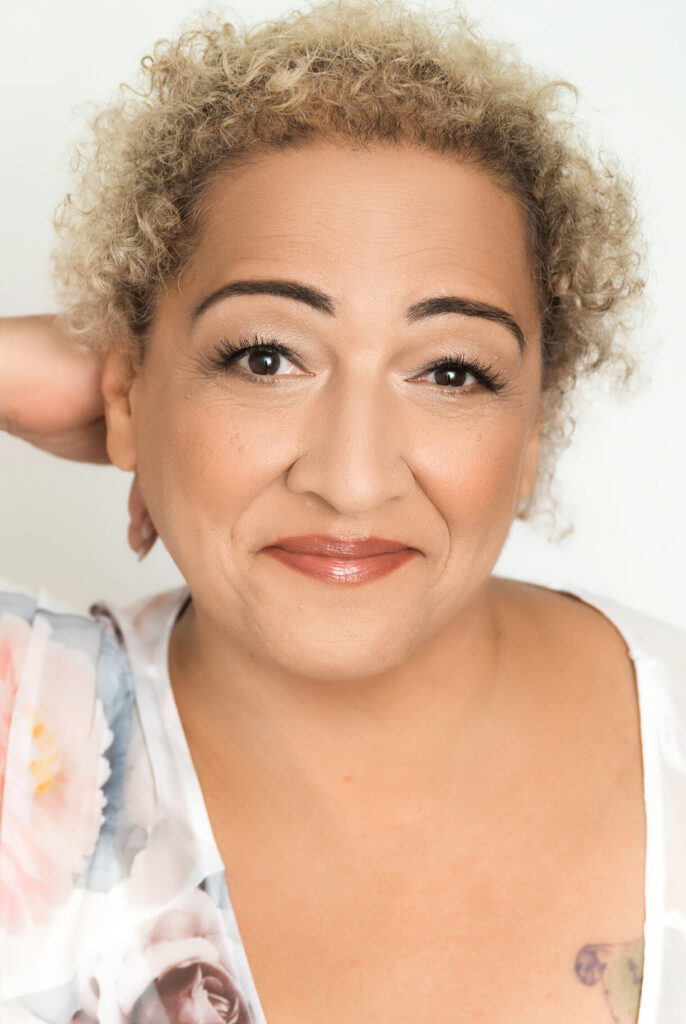
Head of Client Relations, HLTH
How did I get my first job in the event industry? Kismet or perhaps serendipity! Until I came into events, my work was in banking. I moved from my hometown in Rhode Island to the DC area, and wanted to explore something different. So, I answered an ad in the newspaper — insert shock and awe here — and it led me to CES (Consumer Electronics Show), which was the second largest trade show in North America at the time. I was clueless and had no idea what a trade show was. I was working for CES! To this day, it remains a highlight of my career.
The minute I stepped off the plane in Chicago to help produce my first CES, I felt different, a positive energy came over me, as though I was in the right place, about to do the right things. And then I walked onto the trade show floor, and I knew immediately I was meant to be a part of this industry. Soon, I was able to guide a client confidently, and I knew this was going to be my career.
Some of the highlights of this career include:
Among the industry people who have influenced me in my career is, first and foremost, Rich Scarfo, now President of HLTH. He taught me what it means to have an unwavering commitment to excellence. Because of his encouraging outside-the-box thinking, and empowering those around him to succeed, I have learned from him, almost from the day I met him at CES and continuously to this day. Even when we didn’t work together, we were still in communication. He has been a listener and supporter all these years. And he has provided never-ending laughter! Many others have influenced me along the way. I try to watch, listen, and absorb wherever I am, there are lessons to be learned everywhere.
My management style is to tell people what needs to be done, give them the proper tools, and let them find the way that works best for them while being always available to provide guidance, suggestions, and help. I want them to know I am approachable and trustworthy. Part of my management style is also to be supportive of my peers. I hope that I’ve built a reputation for being a team player. Working together in my area and across the organization enables our events to be successful as a whole.
My work ethic is simple: the job needs to get done and it needs to be done well. Therefore, whatever it takes to do that is what I will do. The show must go on and many people – sponsors, exhibitors, and attendees – have put their trust in us to deliver a premier experience for them. There are many things I love about my job, and I want to convey them through my work style. It is crucial that what I offer sponsors, exhibitors, and attendees enhances their overall experience, no matter how small it might be. Every sponsor/exhibitor/attendee matters; and it is important to me that I project that.
Another aspect of my job that I love is the travel to places I never thought possible – that is truly amazing! Having the benefit of hindsight, the ability to look back and see how far I’ve come, I am most proud of the lifelong friendships and business relationships I have cultivated.
Some lessons learned and advice I’d like to share with the next generation:
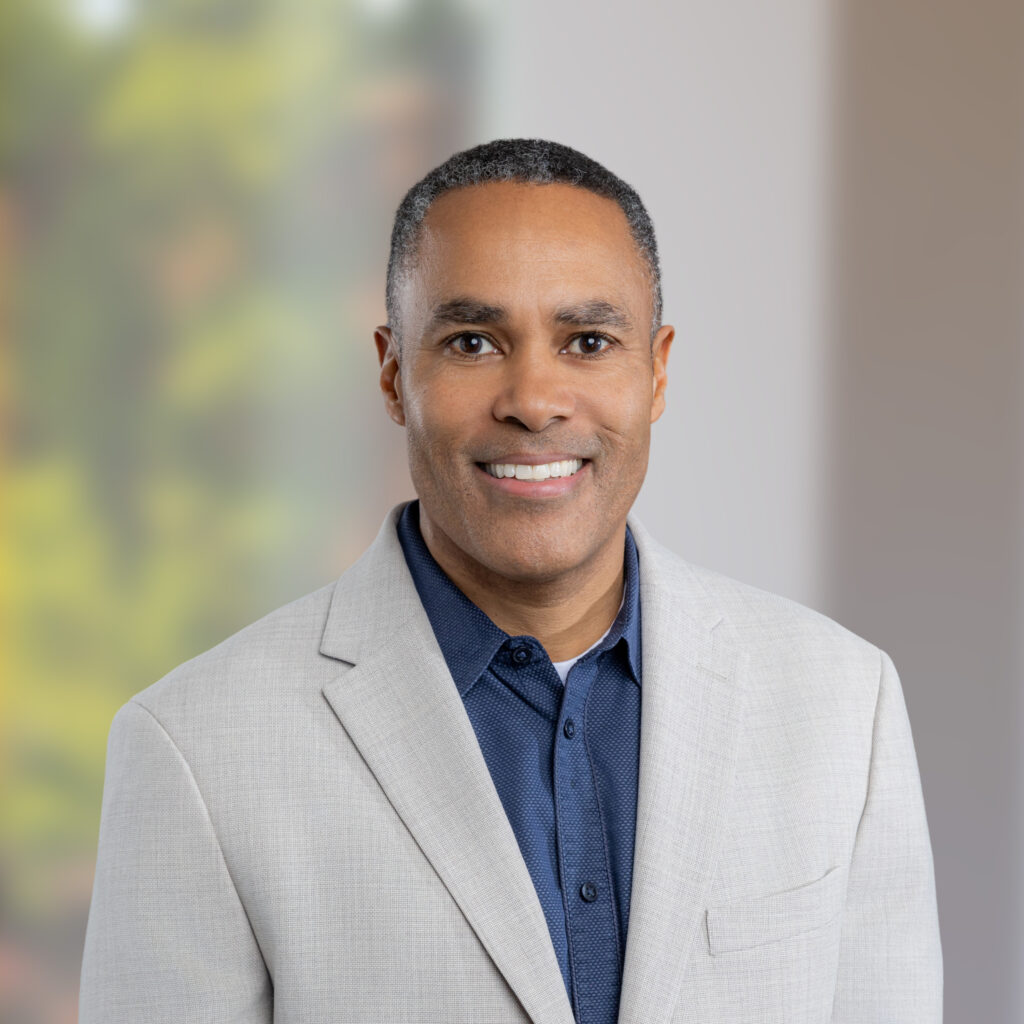
Senior Strategic Account Director, Maritz
When I was studying for my degree in Business Administration (and minor in International Business) at Loyola Marymount University in Los Angeles, I found a job in the Conferences and Events Department on campus. It was like a work-study program, in which I had great exposure to managing events for a variety of clients, including sports organizations such as the LA Lakers, and hosting World Cup soccer practice for Italy and Sweden. Our soccer field turned out to be perfect for their practices, and accommodating the press media. It was exciting and interesting, and I could see the intersection of what I did in the job, and the classes I was taking in my major. I kept that job the 4 years I was in school and decided I wanted to stay in the industry when I graduated. It was exciting, I came in contact with sports greats, I saw them practice, I had hopes of working the Olympics.
After graduation, I took a job with AmericanTours International. We arranged tours, transportation, and hotels for leisure travel groups between 30-200 people – from around the world, though I was mostly interacting with visitors from Europe. I negotiated contracts with hotels and worked with international tour operators. And I met my wife there. After about 3 years, I wanted to get back to the kind of events my school produced. I found work with Access Destination Services, as a sales consultant to Fortune 500 companies and associations. I concentrated on customer service and built a strong network over the 4 years I was there. One of my clients was Conferon who worked with Maritz at that time, and its representatives learned that I wanted to leave Los Angeles and raise a family. They were looking for someone to manage the meetings and events department and the office was in Denver – perfect.
It was difficult at first, I had not had a lot of experience running a department, and I was “the new guy on the block.” After giving it my best shot for 6 months, I went to leadership and offered to manage a portfolio of events instead. When that happened, the staff welcomed me as part of the team. It was a life lesson. Now I take advantage of the leadership lessons I learned back then and since: navigating complex situations, resolving conflicts, understanding the nuances of human behavior. I listen and value others’ opinions, and I am respectful of people and their time. I’m a relator and collaborator; sincere, empathetic, and service-oriented. This has helped me in sales and account management to build one of the top portfolios in the company, working with associations and for-profit tradeshow organizers. I have been with Maritz for 22 years.
Also helping in my career over the years are my mentors. I had a business coach who has helped me work on my specialties and strengths through a program called Positive Intelligence. It helped me during covid and now to maintain positive mental fitness. It builds mental muscles and capacity to respond to life challenges, and have a more positive mindset, not letting our minds sabotage us. Since college, I have had other mentors help me along the way, even though they may not have known they were mentoring me. I looked up to them and leaned on them; they were great managers and leaders.
Through the years, what has been important to me as a professional, is knowing that my contribution matters, that my voice is heard, that my role counts. And I get excited about helping clients achieve their goals. It was an honor when a client nominated me for PCMA’s international 2024 Visionary Award, Supplier of the Year; I was one of three finalists.
To the next generations, I would like to pass along the following advice:

President, Americas Nineteen Group
Like many of my colleagues, I fell into the event industry. I studied European business at University of Hull and Kedge Business School, Bordeaux, France. Marketing and international business strategy were a big part of the program, but tradeshows were never mentioned as a medium to boost brand recognition and sales. During a job interview for magazine advertising sales, the owner suggested I interview for an exhibit space sales role on a food packaging show in Ireland. Thus, only a year out of college, I began my event career in Ireland where I grew up, and I loved it from day one. As part of a team of four, I learned every aspect of the business from sales to audience recruitment, and operations to registration. I moved to the U.S. after 3 years, and started a 28-year career with Diversified Communications. From sales, I quickly moved up to become president in early 2019.
The event industry provides unique experiences. I have traveled the world, met a King, interviewed a prince, and, perhaps the biggest highlight, met Pope Francis in February 2020. This doesn’t happen in every industry. An event is like a mini city that is a microcosm of an industry. I loved being onsite, starting with an empty hall, watching the show come to life and fill with companies and buyers who are there to learn and compare, and seeing the close of the show as everything disappears from the show floor. There is no other industry where your customers are next to each other under one roof. I knew this would be my career when I didn’t think of it as work, enjoying every day – even the tough ones. I learned who the key players were, what the issues were, and how business was done. For many, the event makes their entire year, so it plays an important role in the growth of a company and the expansion of an industry. Many companies serve multiple industries, so you learn a lot about many businesses. As the event industry is a people business, I made lots of great friendships with customers, industry colleagues and vendors from all over the world.
I have had wonderful roles during my career — running the seafood portfolio at Diversified was a great experience and I learned constantly as no event was ever the same, no day was ever predictable. Every promotion I had or every level I moved up to felt like it was the job for me. As a show director, you can experience every aspect of the event industry, working with general contractors, venues, attending embassy receptions. Learning from other event companies as well as learning how to run a company means you are constantly being challenged. I left to pursue another aspect of the business: private equity, and now lead the Americas for the Nineteen Group. It is fun as we are building the U.S. division with a blank canvas. My team and I are finding events that would be a good fit for the company and its culture.
I have had the privilege of being recognized for the work I have done — holding the role of UFI President in 2020, being the first female president of the global association. Most recently, I was awarded the Medal of Honor for leading UFI through the pandemic. I have been Chair of SISO, Society of Independent Show Organizers and have been very active in women’s leadership programs in the industry.
As a leader and manager, I like collaborating with teams; being a part of a team and working together to build the best events and create the best company. While I have learned from many, I think being authentic and caring for your teams is the most important. I like helping people achieve their goals and love to provide growth opportunities for employees. I am a builder. I enjoy building teams and a company, being strategic and growing a business. I am proud of the times I worked with my colleagues through adverse conditions and situations. Problem solving on a daily basis seems tough at the time but immensely educational.
I would advise the next generation of event industry leaders to learn as much as you can, in as many areas of the business that you can. I highly recommend getting involved and learning from leaders and peers. Attend an event, follow some of the leading companies to hear what they are doing and their growth plans. The industry is very open despite being competitive and we often share information on best practices and how the industry works. Many of your colleagues will become friends. I also urge you to advocate for yourself – whether in terms of opportunity or pay, put yourself forward and ask. This is particularly true for women who often don’t ask or negotiate for themselves. By doing so, you might just get the role you want!
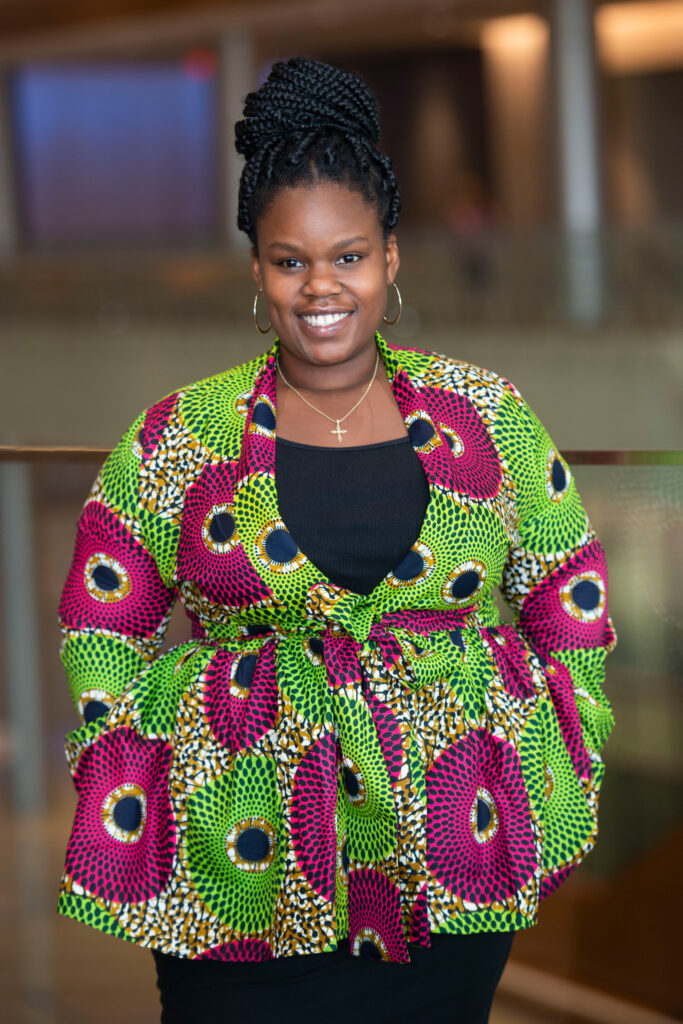
Event Strategist, The National Association for the Advancement of Colored People (NAACP)
I majored in Comparative Women’s Studies with a minor in Media and Communications at Spelman College. I did an internship at Disney as a marketing Assistant with the Disney Institute, under Disney Event Group. It was a good experience but didn’t pay that well for longevity, so I applied for a job at Liaison Capitol Hill (a boutique hotel now known as YOTEL Washington DC). It was undergoing a re-branding and I went from being the executive assistant to the general manager, and to project coordinator to marketing specialist.
While working in the hotel, I realized I was good at what I was doing. I planned well, organized well, and I was creative. I tried running away from it for a while – people asked me to put on their parties and weddings. But then they gave me projects to coordinate, and bigger meetings to produce. People saw the capability in me; they rewarded me with their confidence in my abilities.
All of my positions have been interesting to me, and what I like about them is that no day is the same. I love the fact that while I’m not always out at the interface with the public, I am an essential part of the bigger picture. I’m on a logistics team to get my colleagues to different locations. I coordinate their transportation, accommodations, food, and necessities to make sure the events are successful. Included in all that has to be done is arranging for T-shirts and tools to do canvassing and voter registration. My team also handles the t-shirt production.
Some of my jobs have led to my next ones. For example, my mentor who was my boss at The Links, Incorporated, took a position at NAACP and invited me to apply for a job there. Three rounds of interviews seven years ago, and I’ve been here ever since. I’ve met my mentors across the industry over time. All have been African American women, well-established in their careers. One is a small business entrepreneur with small to medium size events — she is a great resource. At every point that I have a major career or personal decision to make, such as whether to join a board or switch jobs, I seek their advice. Their wisdom has helped me to decide to take a next step or stop and gain more knowledge. They’ve been my checks and balances – go for it or wait it out; pursue or not. I’m the current president of the National Coalition of Black Meeting Professionals. To get on a board or executive committee, you need to get to know people – network – and let them know you’re interested. Take the risk, don’t be afraid.
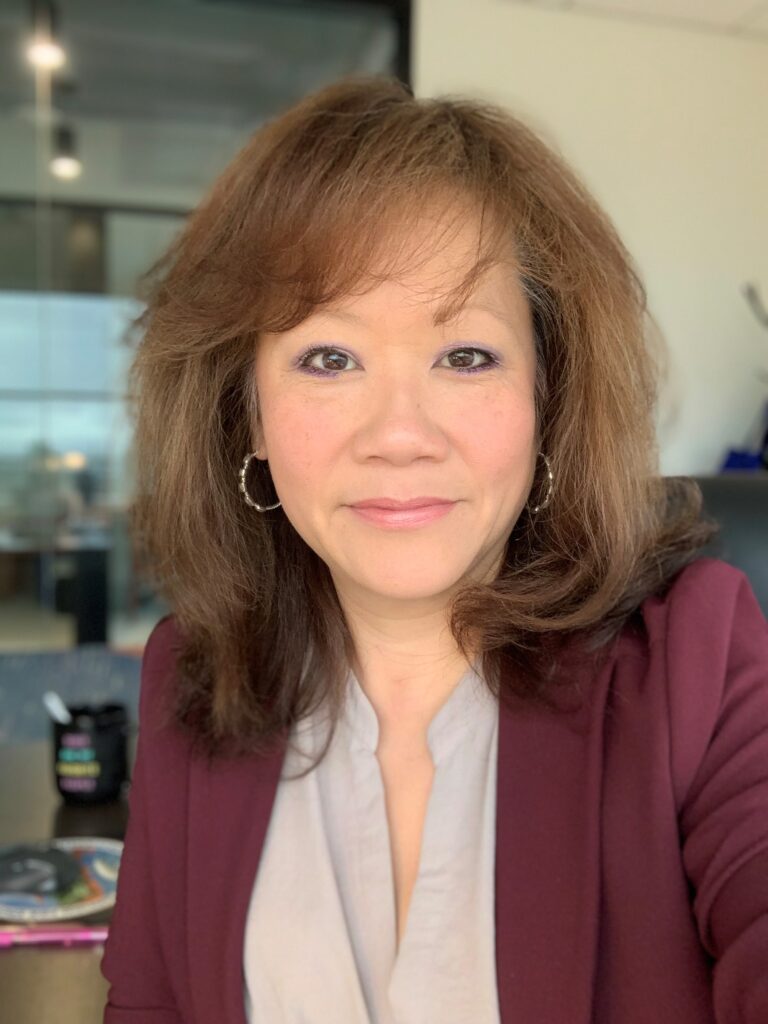
Chief Operating Officer, Association for Uncrewed Vehicle Systems International (AUVSI)
When I got my first job in high school, I wasn’t thinking about a career in event management. I just wanted a paycheck. I went through the Yellow Pages and started calling every business, starting with the As. After a lot of “nos,” I landed on the Copy Center of South Orange. The owner, Ken Fisher, told me to come in, and that job changed my life.
Ken wasn’t your typical boss, gruff in demeanor and always focused on what needed to get done. In that he taught me a lot of things that seemed random at the time, like bundling bulk mail, answering phones, formatting resumes, and reviewing trial depositions. But what I really took away were computer skills, a curiosity for technology, and a drive to be efficient no matter the task. By the time I got to college, I knew how to operate in a professional environment and had high standards for myself.
That foundation has served me throughout my career. I never set out to be in trade show management; I just followed my interests. I’m passionate about technology, so I committed myself to the industries I worked in, from software publishing to wireless communications to uncrewed and autonomous vehicles and robotics. I’ve built my career by saying “yes” to opportunities and creating new ones when none existed, while tackling new challenges and constantly learning.
For example, I led a project to build a 7,000-square-foot, fully connected model wireless home on a trade show floor. Up until then, my experience was in marketing and educational programming — but I figured it out. I broke the project down into manageable tasks, helped sell sponsorships, dove deep into logistics, and learned everything I could about creating an immersive attendee experience. I asked a lot of questions. That’s how I approach every challenge — step by step, moving forward, and never saying no.
Another major moment in my career was selling an equity share in one of our assets. It was a year and a half of intense, 16-hour days, working with lawyers, auditors, and brokers to conduct due diligence, determine the terms, negotiate and everything else that had to be done — all during COVID. We solved problems we’d never faced before, and I was still managing my day job. It was exhausting, but we got it done, and it remains one of the proudest achievements of my career.
I’ve had the privilege of learning from great and the not-so-great bosses and colleagues throughout my career. The key is to be open and always looking for the lesson. What I bring to you as a mentor is real, hands-on experience. I know how to execute ideas, plan, and implement, no matter how impossible the task may seem. I’ll expect the same dedication and commitment from you. I believe in doing the work, owning the outcomes, and constantly improving.
If you want a mentor who’s found her own way but knows the value of learning from others, I’m here to help you navigate your path. I’ll push you, hold you accountable, and share everything I’ve learned—because that’s how you grow.
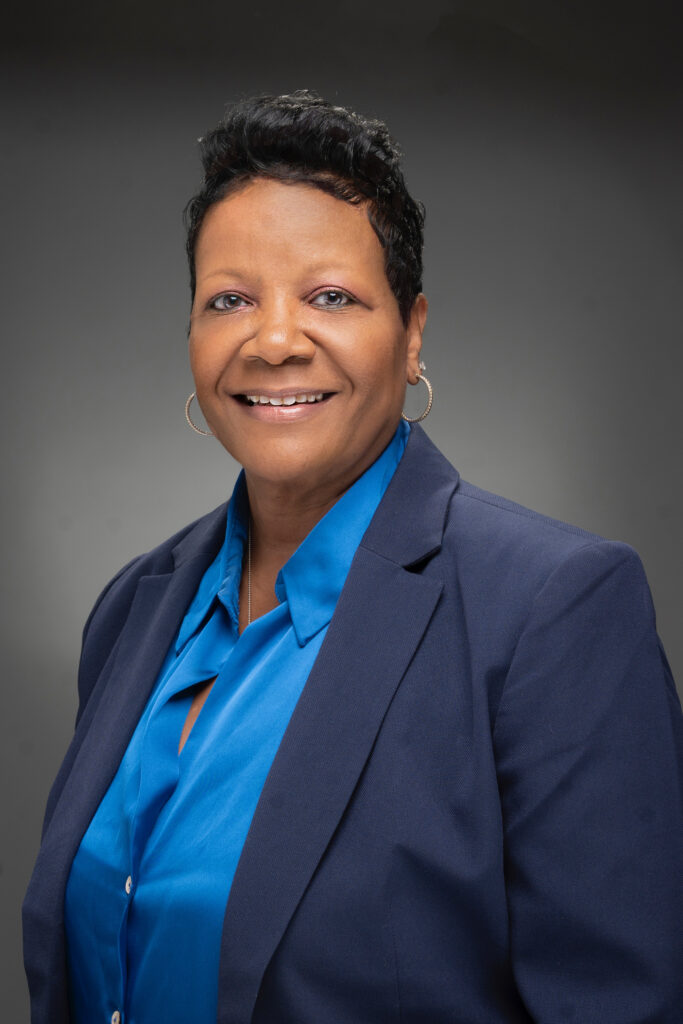
Chief Executive Officer, Javits Center
I got my start in the industry as a telephone operator at the San Diego Convention Center Corporation. I was a student at the University of California San Diego (UCSD) at the time, studying Mass Communication while watching the convention center being built from the ground up for nearly 2 years. My college advisor set up the opportunity (after I drove her crazy) to get me an interview. Because I was a student, my schedule would work into their need for part-time staff upon opening the venue.
We had an amazing CEO, Tom Liegler. He taught you by showing you how it should be done. He walked through the building with such pride and admiration, and he made everyone feel like they belonged to something bigger than themselves. He was my “Undercover Boss” before there was a TV program with the same name. With him, I drank the Kool-Aid and wanted to share his admiration for the industry. After only 2 years, he resigned, but his spirit and passion lives on in that building still today. It was because of his leadership and his successor’s (Carol Wallace) that I have pursued a career in venue management for over 35 years now.
It’s been exciting and fulfilling. I spent 2 weeks in Paris as part of the United States’ invitation to host the “World Gas Conference,” which only happens every 3 years, and only once every 20+ years in the States. It was one of the world’s most prestigious conferences where exhibits are companies that represent their countries (such as China Petroleum). But I will say the most impactful time I had in this industry was in Houston, Texas, at the George R. Brown Convention Center after Hurricane Katrina. There, we built a shelter and became a human services support center for more than 3500 families from New Orleans. Our placing human lives over commercial business was heartfelt and allowed my team and me to truly have a positive impact in the community. It was amazing to experience and contribute to.
In terms of my management style, I am a collaborator. I look for people who are subject matter experts and can add to my team even when I may not be as knowledgeable as they are. I am persistent in being transparent and honest about what I expect and how we will work together. I believe that we all have a responsibility to learn, to understand our gifts, and how we participate in the larger goal to better serve the organization and the people. Everyone should have something to add; I’m looking for thinkers. I was most influenced by my mentor Carol Wallace. She saw things in me that I didn’t see, and she gave me a seat at the table to express my ideas or to add to others’ contributions. That was a powerful force that convinced me that I had value.
What I love about the job is that I am surrounded by people and every day, I have a new opportunity to positively impact their lives. I love talking to people, I love engaging with the staff, and I love that I have built a career with the destiny of building future leaders. I am most proud of the young lives that are changed because I encountered them and they in turn had an impactful change on me.
I tell young people, don’t listen to the naysayers; simply block out the noise. I also want you to know that the distance is long, so pace yourself and breathe. You are powerful. You are who you say you want to be, so go do it! Be sure to make yourself a priority, for it is easy to lose focus. Remember, small things to a giant! (and yes, you are the giant).
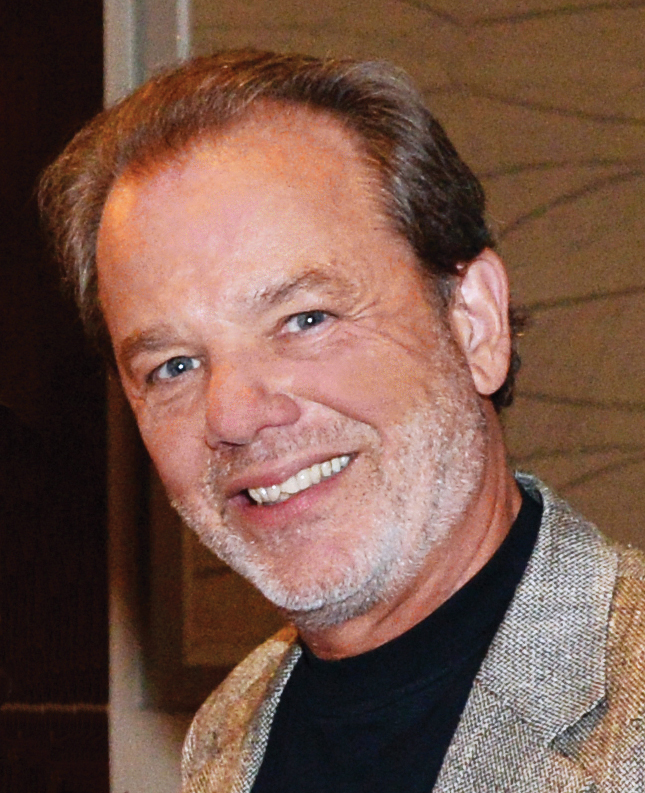
Founder and President, Lippman Connects
A family friend was looking for “some bright young men” for his company – GES (Back then it was called United Expo (UX), then it was bought by Greyhound Exposition Services, and now it’s simply known by these three letters.). GES was the first trade show general contractor (aka “decorator”) in the United States, and it was headquartered in my hometown. I didn’t know anything about the trade show industry – I majored in dramatic arts with an emphasis on directing – but it seemed interesting, and it sounded like something I could do. And because I wasn’t pursuing any options in my field of study, I interviewed and was hired as an intern.
I was hooked at my first show, watching it “move in” around me. It was the Knitting Arts Show, in Atlantic City, NJ. Teamsters unloaded trucks and filled a huge, empty exhibit hall with exhibitors’ freight. Carpenters and electricians built exhibit booths. Within three days, the doors opened, and attendees poured in, many of them rushing in to see the attractive displays and new products that were the transformation from nothingness. Then I watched everything happen in reverse four days later, and within two days of the show’s closing, the hall was empty again. This magic grabbed my imagination, and I knew that this was going to be my career.
Soon thereafter, I was assigned to Chicago and the first show I actually worked was the dog show, where I managed union labor, interfaced with exhibitors, and served as the single point of contact for the dog show organizer. Other great assignments and exciting jobs that I had in the next 25 plus years included the following:
My work ethic came from my grandmother, who often reminded me, “A job worth doing is worth doing well,” and my mother, who liked to tell me, “What else can you do today to be better tomorrow?” My management style, I get from my father, who liked to say, “I don’t expect anything so I’m rarely disappointed.” Industry people I’ve learned from include:
I love learning from others who represent a wide variety of industries and professions. I ask about the latest trends in foods, pets, construction, technology, etc. And I’m proud of providing value to my clients – many of them have become supportive colleagues and good friends. From this give and take through the years, I have refined a few lessons learned and mottos to live by. Here are the top three that I like to tell young professionals:
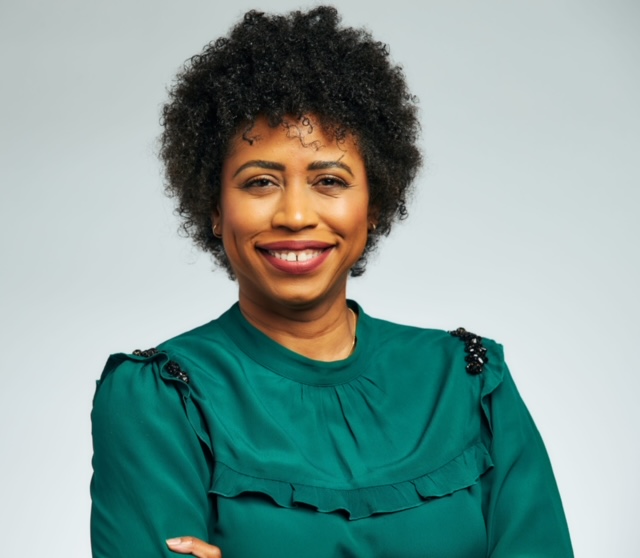
Head of Corporate Relations, American Physical Society (APS)
My journey in events really began with a stroke of luck – I was part of this amazing high school mentoring program, and after college, the program director brought me on as her assistant. It was incredible exposure, working with CEO mentors and helping coordinate their annual conference that brought together 250 mentors and mentees. That’s where I got my first taste of event planning, handling everything from student transportation, to booking the venue and audio visual elements, to building the event agenda and designing program guides.
The real dive into event marketing, where I built the foundation of my experience, was in trade shows when I joined a national mortgage company. Imagine managing exhibits at 50 shows a year! I was constantly on the road, learning everything about unions, exhibit spaces, and insurance, but most importantly how events and conferences worked. That experience led me to a catalog software company, where I spent three fantastic years learning how to manage exhibits for a technology company, including learning about product development and marketing strategies. We even started creating our own customer events, which taught me so much about portfolio marketing.
Then came the game-changer: Citrix Systems called, offering me a field marketing coordinator role. Years later, I was running global conferences for 7,000+ people with a $30 million budget; it was intense but exciting. I proceeded to stay in the high tech space for over 20+ years as an event marketer as it was challenging and rewarding.
Then APS reached out when I was looking for the next challenge in my career. They saw something in me – my connections, my experience – and offered me a role that went beyond just events, which was finding a way to connect industry to APS members and programs to help build a better world through science and providing opportunities for underrepresented groups to become scientists themselves. Now I’m leading the effort to organize tradeshows and sponsorships that happen at APS meetings, which vary from 1,000+ to 14,000+ attendees at our events, and includes everything from managing industry outreach to selling the exhibit show floor to finding financial support for programs like the International Year of Quantum Science and Technology run by UNESCO.
You know what’s funny? Everyone in the event marketing business is kind of an adrenaline junkie. We’re constantly juggling countless moving parts, like solving this massive puzzle with a deadline, while dealing with managing multiple teams. I love turning chaos into order, creating these amazing spaces where people connect, learn, and grow. It’s like building a mini Disneyland at every event – something for everyone!
This career has taken me places I never imagined – both literally and figuratively. I’ve traveled the world, worked with amazing leaders like the late General Colin Powell and Apple’s Tim Cook, and learned so much about different cultures. As an immigrant to America, I’ve worked hard to make my own way, especially in a space that is not as inclusive to people of color. I’ve faced my share of challenges, including microaggressions and discrimination, but I’ve pushed through to win top awards for my events. My public relations degree has been invaluable, giving me the skills to read people and understand their motivations, so that has helped me navigate my career well and thrive. My leadership style? I’m all about empowering my team. I believe in clearing obstacles, problem-solving together, and being there when they need guidance.
My advice to anyone entering this field is simple: learn everything you can, volunteer often, find great mentors, and build your network. This business requires you to be a jack-of-all-trades – from marketing to logistics, from budgeting to what I like to call “cat wrangling.” When you have the right tools and the right people in your corner, success follows naturally.
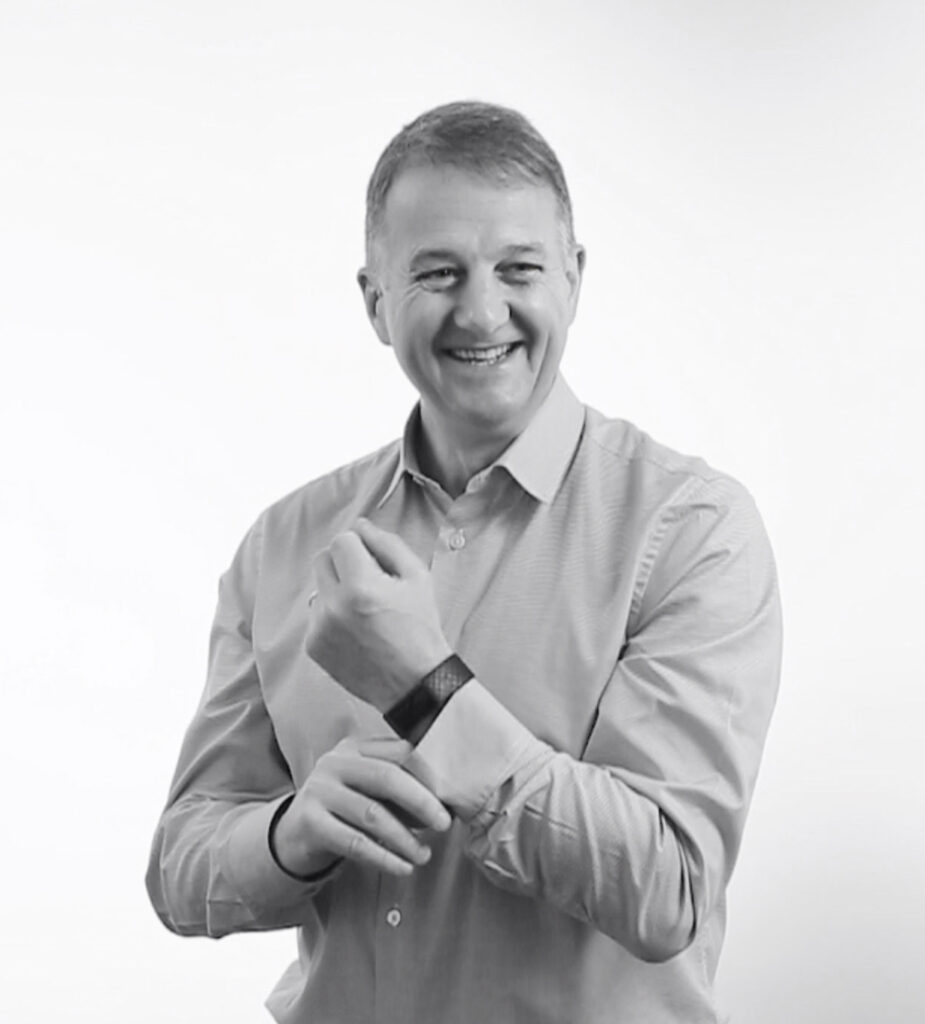
CEO, QUESTEX, LLC
After studying Communication Studies in college and wanting to work in “media.” I had interviews at the BBC (British Broadcasting Corporation) to be a radio announcer and a sports commentator but I was introduced to a company that produced media and event products. They offered me a job based on my education. In many ways, I fell into the industry. I had a working class background and was the first in my family to go to college; that education gave me the confidence to push on. I loved events from day one — lots of young people like me, lots of energy, and no day the same as the one before. Solving client challenges and connecting people is a great way to spend your professional career!
I started in sales and quickly moved into management. This led to a variety of roles from leading the strategy for a digital push in the early 1990s to broader roles in management including a focus on international growth and travel to over 65 countries. There was also a lot of work in mergers and acquisitions. Eventually, I grew into CEO roles at public and private equity owned companies.
As a leader, I try to be authentic, transparent, fun, and curious. I want to create winning cultures around the world, especially because we are an industry that relies on its people to make the difference. (We don’t have factories, import goods, etc.) People early in my career were highly influential in why I am who I am now. Girish Mhatre, an engineer by education, was tremendously curious and taught me to continuously ask how we can improve. Then, Steve Weitzner taught me the advantages of being myself, communicating clearly and seeing every person as important in the company. I owe so much to these two mentors!
Now, what I love most is when colleagues reach out and tell me that they have grown their careers and outlooks because they worked in the environment we created. Building and growing someone’s career is something I will always be proud of. One colleague stated, “Paul is living proof that sometimes, the good people win,” and that spurs me to mentor more people to succeed.
These are the attributes and rules I live by and seek in others:
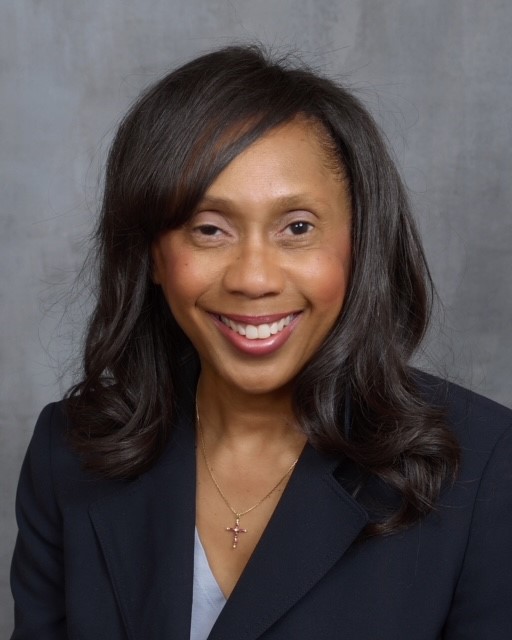
National Sales Manager, Shepard Exposition Services, Inc.
I started in TV and radio news, armed with a degree in English, and moved into radio sales, focusing on nontraditional advertisers. Then I ran my own community events & PR business for nearly 10 years, creating events and selling sponsorships so attendees could come for free. I worked event sales for Freeman and GES, before landing here at Shepard. All this experience has helped me with what I am doing now; it’s been a career progression. My education and communication skills have been foundational to speaking and writing well, but less obviously, they have helped me organize things in workable ways. Even learning to write good term papers gave me insight into seeing events as having a premise and designing to what we want attendees to see and feel in that premise.
It was when I worked at GES that I felt the events industry was my career choice. I like things that are fast moving, creative and depend on relationship building. I really enjoy building relationships; our partners are important to our business. I have been hired to be a “hunter” – I look for new prospects with whom to partner; bring them in, and work with my team to develop solutions. I have had a lot of success in this regard.
Throughout my sales career, I have been involved from beginning to end of events, at all levels –working with my production team to ensure client partners were getting what they needed, and after the show to confirm my clients got value for their investments. There is a lot of interaction with the team and clients, and it is intense throughout the different phases. Some of the fun and exciting projects that I’ve worked include The South Africa Pavilion at a national auto show, and several direct selling companies’ international conventions
During the pandemic, I worked for a smaller company where I went back to the fundamentals to figure out how to help. I was the only salesperson kept during this time; I sold a large contract to a national casino group and my company ended up designing and producing plexiglass dividers to enable safe face-to-face transactions. I learned about resilience and pivoting from my family’s business, giving priority to serving customers; My parents had the first Black-owned moving company in Arizona.
Working together as a team is my preferred way of getting things done. I am a servant leader and employee; I like interacting as equals, inviting input from everyone to improve solutions. I was highly influenced by Shana Carr, while at GES; she was one of my best managers. You worked with her, not under her or for her. Her management approach revitalized me. I believe in empowering coworkers as professionals to fix issues and settle differences on their own. Also to be respectful and sensitive in dealing with others and talk to others even if it is uncomfortable and difficult. I dislike and find non-productive an environment of tattle tales, heavy handedness, or subterfuge. These are my beliefs as a Christian.
I advise everyone coming into this field to learn as much as you can within the industry, across divisions. Learn sales, operations, marketing, administration, etc. Seek to understand before being understood. Serve rather than take. Interact and truly listen. This helps you to be kind and respectful and overflow the mentality of a servant manager / coworker. Even if you hear someone say or do things that are not mutually edifying, this can be a learning moment and an opportunity to do the opposite.
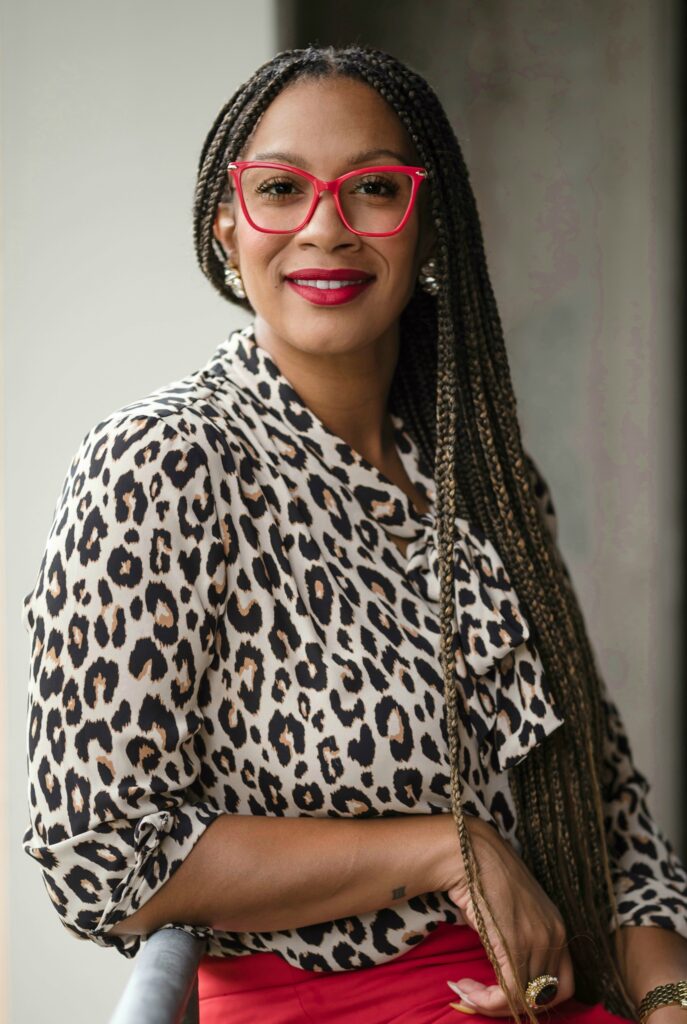
Vice President, Fashion, Airports, and DEIB, Clarion Events
My first position out of college was on the global marketing team of a large housewares company. One of our activations was at the Sundance Film Festival, where I worked in a gifting lounge for celebrities, giving them our coffee makers and swag. Meeting the celebrities was of course cool, but I saw the inspiration of fans interacting and the magic of in-person connections; they really resonated with me. That may have been the earliest experience in my career that led me to my love of live events today.
My first role in the events industry was in business development for an airport conference and media portfolio in Clarion Events. I had come from more than 10 years in advertising and public relations and was set to sell media for Clarion. Little did I know that selling sponsorships would be what I truly fell in love with and quickly, or that it would be the catalyst in my career progression to leadership. I earned a degree in Sociology, which one could say is a great foundation for leadership as it encourages curiosity, meeting your teams and clients where they are, and my passion for creating meaningful, connected ecosystems within events.
Early in my tenure on the airport team and during one of our most successful events to date, we experienced out of our control glitches in producing the closing ceremony and awards program. The entire team had to rally together to deliver the best awards program and event closing we could produce. Though at the time, it was one of the toughest challenges I had faced in that job, something clicked that night, and I locked into putting the needs of our attendees before anything else. My perspective on events changed; I saw the bigger picture with all the different parts coming together. I went on to take over leadership of the event and I often think back to how a series of unfortunate circumstances opened me up to wanting a bigger role in event management – you can never doubt adversity as being a catalyst for change.
As a leader, I am collaborative; I like to work closely with my teams. When people feel personally and professionally connected to the work and fulfilled, they are more effective and more likely to produce great work. One of my proudest accomplishments was leading our business through the pandemic and producing live events for our industry in a safe and meaningful way. It required a lot of creativity, agility, and fortitude because restrictions were constantly changing. Through teamwork and empowerment, my team responded quickly to these changes so that we could deliver sound and healthy environments for our attendees. I also love interacting with people from diverse backgrounds and industries and offering them solutions that bring their brands and concepts to life at our events. There are so many aspects to what we do – every day is different – and I appreciate continuously learning and adapting to new situations. I am proud of my role as a leader, inspiring teams of talented people and supporting them to actualize their potential and fulfill their career goals.
To be where I am now, I have had amazing industry mentors who have shaped my career path with invaluable lessons from both their careers and hands-on lessons on our journeys together. I can look to a couple who not only served as mentors but also as sponsors who carved spaces for me as their careers progressed. The common denominators they share have been transparency, a whatever-it-takes attitude, and staying consistent with their value systems. As I navigate my journey as a leader, these qualities act as my North Star. I am incredibly grateful for these mentors and strive to pay it forward to those I have the honor to lead and mentor.
Here are three pieces of advice I would like to give to the next generations:
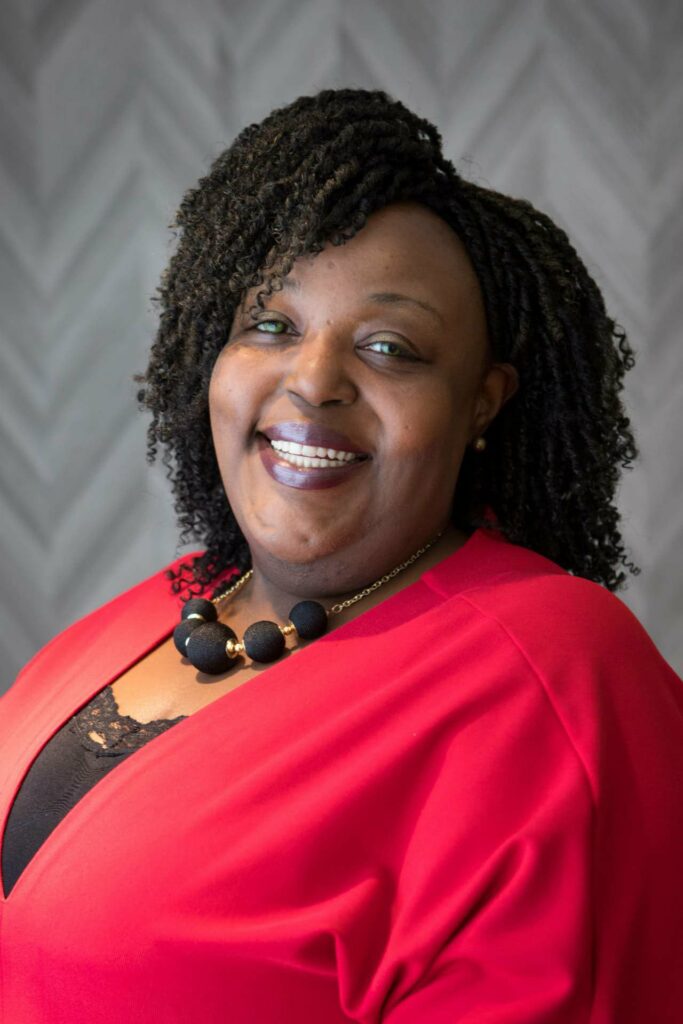
Event Management Associate, Chiefs for Change
For my first job 20 years ago, l was a meeting coordinator in one of the largest insurance companies in NC, so I fell into the events industry, it had nothing to do with my education or expectations. In fact, my education consisted of learning on the job either from doing things myself or getting advice and help from my colleagues. Later, once I knew this was going to be my career, I got a degree in Organizational Management from Ashford University, and a certificate from the Meeting and Event Planning program at the University of North Carolina at Charlotte.
Events are magical, like hidden gems. When I first walked through a conference, and things were already set, I thought of a lot of elves doing all the work. Then I became an elf! My first event was supposed to consist of three tables, but it grew while we were setting up, and it eventually took up the company auditorium. I was suddenly setting up new stations, putting in additional telephone lines, installing more equipment. There were no KPIs (key performance indicators), no sales goals, no plans. I was just pulling all the little pieces together to make this wonderful thing happen.
One of the events I am most proud of was the company’s annual Family and Friends Day. We set it up like a state fair, complete with fireworks, music bands, a deejay, dancing, marching bands, food stations, rides for the children, celebrities, sports mascots, face painting, and tee shirts. We covered 15 to 20 acres, and identified 8,000 registrants with armbands. A year in advance, I sat down with the president and CEO and asked him for his vision. He described a wide ranging event that connected two campuses: Durham and Winston-Salem. In addition to organizing the fun activities, my team of 10 and I had to arrange for buses, security, EMS, parking, portable toilets, handwashing stations, and a broadcast system for the CEO to make announcements. It was one of the most rewarding, fulfilling, memorable experiences of my career. Families still remember that day 17 years later when they happen to see me.
I’ve been with Chiefs for Change for 8 years, returning to the workforce after taking some time to be a mother. Getting back into event planning took a little time even though most of it mechanics were muscle memory. I still had to prove myself to my new colleagues, bosses, business partners and myself. My opportunity came when I was assigned to produce an annual meeting in New Orleans. There were only 100 attendees, but they were superintendents, high ranking people in their field, which brings a certain level of attention to details and customer service. The satisfaction rating of attendees from survey results were through the roof. They said it was one of their best meetings ever. This was vindication, proof that I knew what I was doing; I’m built for this. The experience helped me build a thicker skin and gave me back my confidence.
I attribute my success to giving customers what they want, within reason of course. I’m doggedly determined, I don’t let anything beat me. I’m a Swiss army knife – a variety of skills in one holder, so I’m a great teammate and I’m a quintessential team player. And I’m not a micro manager, I don’t check behind people. We’re adults; ask me questions and I’m happy to clarify and amplify my expectations. I will send reminders, build in grace periods, and guide you.
I have done things I’d never done before, and every time, I have said to myself: I can do this, I like doing it, and I’m good at it. I faked it until I made it. Face-to-face meetings are never going away. There’s a big learning curve no matter how much formal education you have. You have to love it to stay in it. And you have to be a people person because you do a lot of talking.
If you go into event marketing, sales, or production,
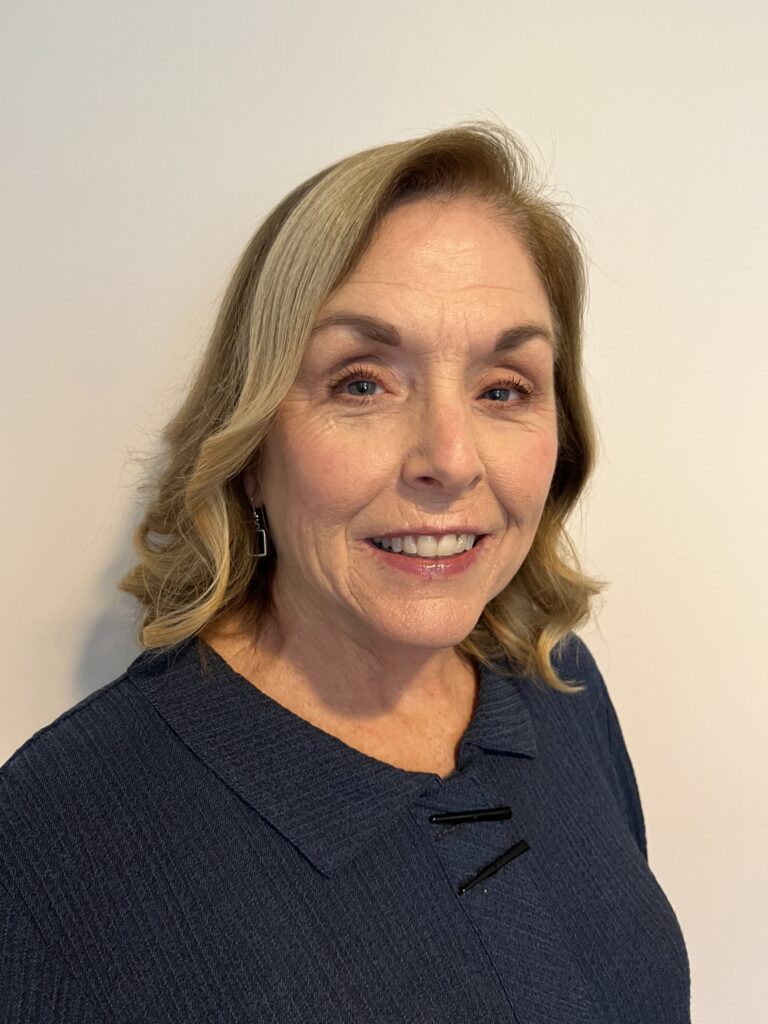
Corporate Event Strategies, LLC
My start in the event industry began with my first job out of college working for the American Heart Association in Andover, MA. I started as a Special Events Coordinator and quickly became a Regional Manager of the Northeast Division of the American Heart Association. Also, around this time, I was planning my own wedding. I came to realize that I loved the detail – oriented work that came with both of those “jobs”.
My Communication Degree from the University of New Hampshire and my part time jobs on campus, which included fundraising for the Alumni Center and working in the hospitality side of the University’s conference center and restaurant, prepared me for my entrance into the event industry.
As a Conference Coordinator, and then, as Show Director, for trade show and conference company, Digital Consulting, Inc. (DCI), I was able to hone my on-site execution skills for over 17 years. As a Coordinator, I was responsible for the pre-event development and planning of all logistics for an event. As Show Director, I oversaw a team of professionals who was responsible for each of the various areas of an on-site event, ie registration, exhibit hall and meetings. When DCI was sold, I became an independent contractor, and I have run my own business as a Travel Director now for over 20 years. As a Travel Director, I am contracted by a company or an association to oversee one of more of the different aspects of an event such as, transportation, food and beverage, registration, VIP’s, meetings and AV.
For many people, the event industry may appear to be a glamorous way to make a living. Although the flexibility and variety offered by the industry is one of the things I love about my career, the time demands can be extreme, especially when working on-site at an event. The flexibility has permitted me to raise our 4 children, choosing to return to work after each child was born, when I felt ready, as well as choosing how many days a month I want to work. The travel circumstances surrounding events can be stressful. However, through my work travels, I have seen many areas of the world I may never have visited had I not been contracted to work there.
Understanding and producing the wishes of your client effectively can be challenging but also very rewarding. In addition, helping attendees to have a successful time at an event is also very worthwhile. This can be as simple as providing appropriate signage, fulfilling dietary requirements or empathizing with a complaint.
The event industry has afforded me the opportunity to sharpen my skills as a negotiator and a master delegator. Whether it be negotiating a hotel or venue contract or mediating a discrepancy, the results can be very challenging, but often be a source of pride, as well. My ability to interface with all levels of management, hotel, suppliers, and union personnel, as well as customers, is a skill that I use in many aspects of my life outside of the event industry.
Over the course of my career, I’ve had the opportunity to meet and work with entrepreneurs, C-suite level executives, as well as other event professionals, from varying industries. By providing a consistent level of service excellence, I have developed a loyal client base, many of whom I consider friends.
My career in the event industry has allowed me the benefit of a healthy balance of family, friendships and a rewarding profession that highlights my talents and passions
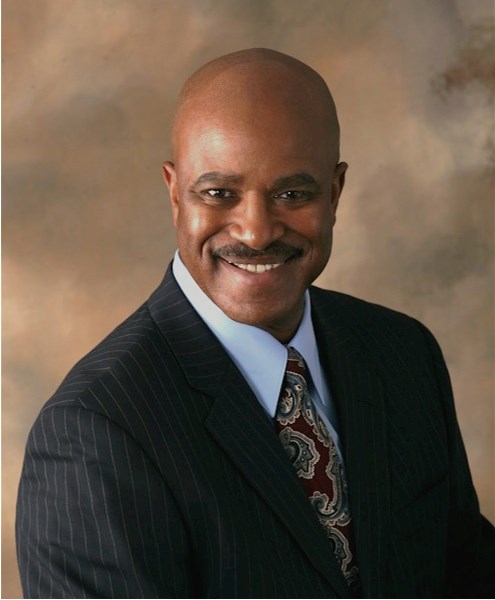
Community Engagement Liaison, Meet Boston
I gravitated to the trade show industry from my first corporate experience in banking. While as a student at Boston University, I switched majors from English to Economics midway. My first job out of college was with the Old Colony Trust Division at the First National Bank of Boston, which led me into the international Cash Management market and responsibilities that encompassed client services and sales. Nearly 10 years later, I was recruited by a trade show company that was heading into international markets and was looking for an international salesperson. The interview lasted approximately 11 seconds. After three yes/no questions, Bill Mahan offered me a position with The Interface Group, producers of COMDEX, one of the largest information technology tradeshows in North America at the time! There, I was the second person in its international division, and worked on six to seven events a year initially; they were large and had a lot of moving parts.
To get things done, the staff had to coalesce, work together efficiently, quickly, and smoothly. These team relationships drew me into the industry. It felt good to be a part of a well-oiled machine, getting things done, having the same end goal – the show. And when the doors opened, and the curtain went up, seeing everything come together, and all the moving parts functioning in sync, I was always amazed, and the sense of satisfaction was highly apparent. The camaraderie of the team has stood the test of time, and we still work together, in different capacities, after all those years. I also like that conventions showcase leading edge advancement in their respective industries. I have had the pleasure of meeting technology and industry leaders on the cutting edge and learning from them.
I am a consummate salesman because most situations in life present a sales opportunity. I focus on demonstrating to potential clients that what I have to offer will give them an advantage appropriate to their needs and goals. I don’t have to offer the best product or service on the market, but I have what clients need to move in the direction they want to go. Selling is informing, providing information. It is very satisfying to watch small companies use this information to grow and prosper. Currently, my responsibility is to increase and enhance the knowledge and awareness of Boston’s lesser-known neighborhoods. The city has 13 distinct communities that together comprise the Boston experience, and it is important that visitors learn about them.
I am also an advocate for raising awareness in and about African American communities whether it’s promoting education among the local residents or telling others about the African American experience in Boston. Through some of these efforts, I am particularly proud of the recognition and accomplishments below:
Looking back, I have a lot of people to thank for where I am today. One of those influencers includes my Dad who taught me my work ethic; he had a PhD in regular smarts, how to treat people and earn their respect. Another was Milt Herbert who was Vice President of Marketing and Sales at the Interface Group. I worked with Milt for several years at the Interface Group, and later at the Boston Convention Marketing Center, where I worked for 17 years, with Milt. Bill Mahan, the man who interviewed me for 11 second, was a Vietnam War veteran and salt of the earth. He had a natural way about him that was endearing. We were friends for life. Lastly, growing up in Roxbury, MA, there was a community of people, a network of people who went on to be examples of excellence — judges, a reverend who marched with Martin Luther King, Jr, and members of Omega Psi Phi Fraternity.
A result of these role models is that I lead by example. A good manager doesn’t tell how to do it but shows how to get it done. I don’t micromanage. Because I am a golfer, I see life as in a game of golf — different pathways will get you from the tee to the green; what often matters most is the recovery shot from the rough. Go into the woods, find your ball, maneuver your way out and take penalties, but make good at the end. You may not always get a Mulligan, but you may get a do-over. I also believe in working smarter, not harder. If I must work hard, I will, because there are no shortcuts, and I don’t believe in a 9 to 5 job. But by putting my best foot forward and applying what I’ve learned, I can achieve efficiencies as well as my desired outcomes.
My advice to the next generations is to learn something every day, so you don’t have a wasted day. You can learn from everyone: the secretary down the hall and the facility custodian, as well as the boss. Keep your eyes and ears open. Networking is only half of the process. Listen to others’ perspectives and seek to understand them.
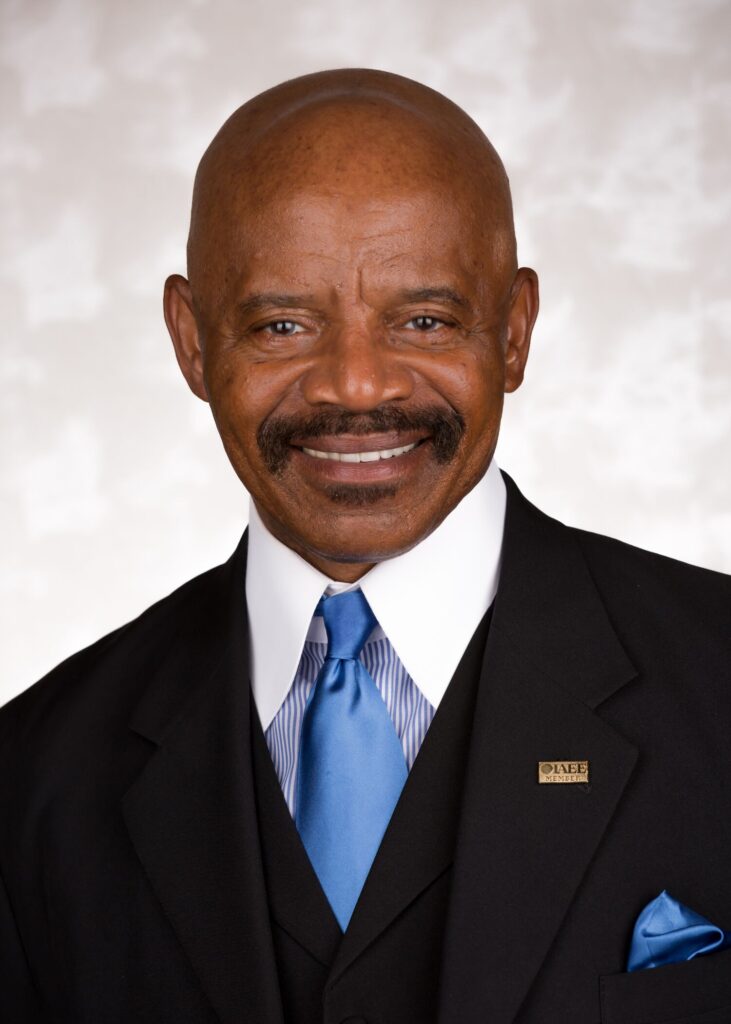
Former Senior National Sales Manager, Fern Exposition Services
I, like most people who have been in this industry for 20 years or more, fell into it. It was not on my radar to be in the convention business. My degree was in economics with a minor in marketing. There were no courses of study in convention management or hospitality then. After I graduated, I took positions in training, economic development, and banking; and I did some entertaining as a singer. Then, in 2003, I received an opportunity to enter the exposition industry — a representative for a regional general service contractor approached me to be a community relations liaison between the company and the hotel venues in the area. I accepted the job because it sounded like an interesting challenge. As it turns out, because I performed in the properties, the hotels knew me, and reaching out to them was an easy matter of contacting the many people I knew.
It wasn’t long after I started with this company when I realized I loved it. We are probably the most misunderstood industry, and my only regret is that I didn’t discover it 25 years sooner. I couldn’t believe I was having so much fun, and thought, “You guys are paying me?” I still feel the same way to this day. I think it has to be due to the types of companies or organizations.
As I look back, these are some of the highlights of my exposition career:
For all of this, I have to thank the gentleman who first approached me, Aaron Bludworth. He has been a tremendous leader and influence in this industry, and has mentored me through my 20-year career in expositions. I would take a bullet for this guy.
I love what I do, so I haven’t worked a day since 2003. I keep doing what needs to be done until my clients and I believe we are finished. There’s never a dull moment, I never do the same things over and over again. I listen and am hands on. If an exhibitor comes to the service desk, I listen to the challenges he is facing, and accompany him back to his booth to show him he has my attention. And having a full understanding of the issue, I can initiate the proper corrections and ensure they are in place by the next day.
Through the years, I believe I have garnered the respect of my colleagues across the industry — People know me and react positively when they hear my name. I have earned this by applying several lessons learned and guiding principles:
Lastly, I have acceptance. I often hear the adage, “Everything happens for a reason.” I don’t subscribe to this. If I did, I’d go crazy trying to figure out the reason. Instead, I have learned acceptance. Everything that’s happened in my life is meant to be, I don’t have to seek the reasons.
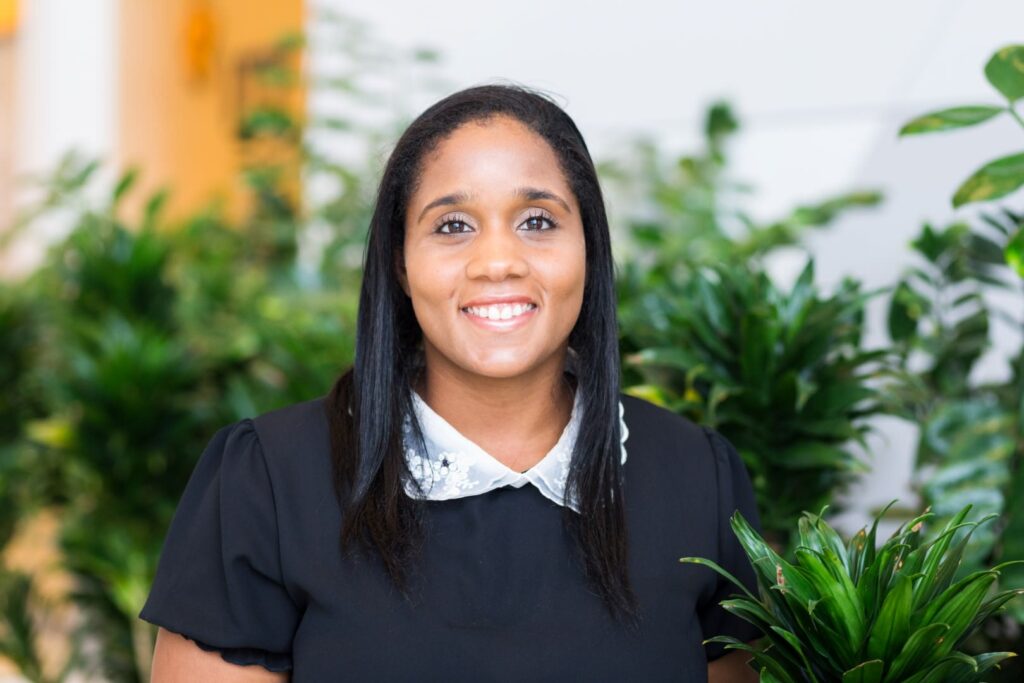
Senior Sales Manager, MJBiz
My first job in events was for NY NOW in New York City. I was a consultant customer success manager, calling customers beforehand to prepare them for the show, and helping with tasks such as editing their online profiles. This lasted 2 months before my bosses said they liked how effective I was on the phone and offered me a full-time job as a sales representative and assigned me to the sales team for the Home Collection segment (NY NOW is a luxury gift market, taking up the entire footprint of the Javits Center.). Prior to joining NY NOW, I was a teacher with a degree in early childhood education. After running a learning center for supplemental education for 4 years, I decided to walk away from teaching and look for a job closer to home so I could help care for my father who was battling cancer.
Emerald, the company that produces NY NOW, had an office behind my house. I applied for the position at NY NOW and have been with Emerald for 7 years. During this time, I worked five different shows that ran the gamut – from souvenirs to handcrafted goods to cannabis. For several years I worked as a new business development manager. In business development, you don’t necessarily close the deal; you’re a hunter and you do a lot of prospecting and discovery. A couple of years ago, I was planning my wedding, traveling every 3 weeks, and working on three shows at the same time. And it came to me that I was enjoying the excitement and all the moving parts and decided that it suited me.
I love selling; I love the elements of people and talking and getting to hear about clients’ business – where do they want to go, how do they want to grow. I want to help them with growing their businesses. I enjoy the face-to-face prospecting, getting out there, being in the hunt, going to competitive shows to find products I haven’t seen before and would be good for my show, and discovering something totally new for the show.
While on maternity leave, I found myself still checking in with my colleagues regularly to see what was going on. And towards the end of my leave, I wasn’t feeling like myself, I ready to come back to work – wanted to come! That’s when I knew for sure, this was my career.
I love the physical culmination and manifestation of my team’s hard work when the event comes to life. In fact, I love events in general; I love the planning, imagining a big show at the end. I make mountains out of molehills, literally. My son’s first birthday party was over the top — balloon arches, balloon garlands, cookies, matching t-shirts, the whole nine yards.
Now, I’m with Emerald’s MJBizCon – the leading cannabis tradeshow and conference. While I do not consume, I’m learning so much every day about an ever-changing industry. Cannabis has not been legalized at the Federal level nor in several states and regulations are changing daily. I work with an incredible team who stays on their toes and keeps up with all the policy changes so that MJBizCon continues to evolve right alongside the regulations year after year.
Emerald has recognized my efforts and dedication, giving me a Sales Growth Award in 2022 for exceeding my goals on two separate events in one calendar year. I was also awarded the Presidents Club in 2023 for being a top performer and exceeding my sales goals.
With this experience and success, I jumped at the chance to be a mentor for The Annabelle Project. Helping others, paying it forward, and looking after the careers of the next generations is in my DNA. My father, an advertising executive in New York City, was a mentor his entire career. Even when he was sick, he made time to mentor and give opportunities to others. It was important to him, and he passed that value to my brother and me. My being a mentor is his legacy.
Here are other values he passed along to me, as well as some of my own:
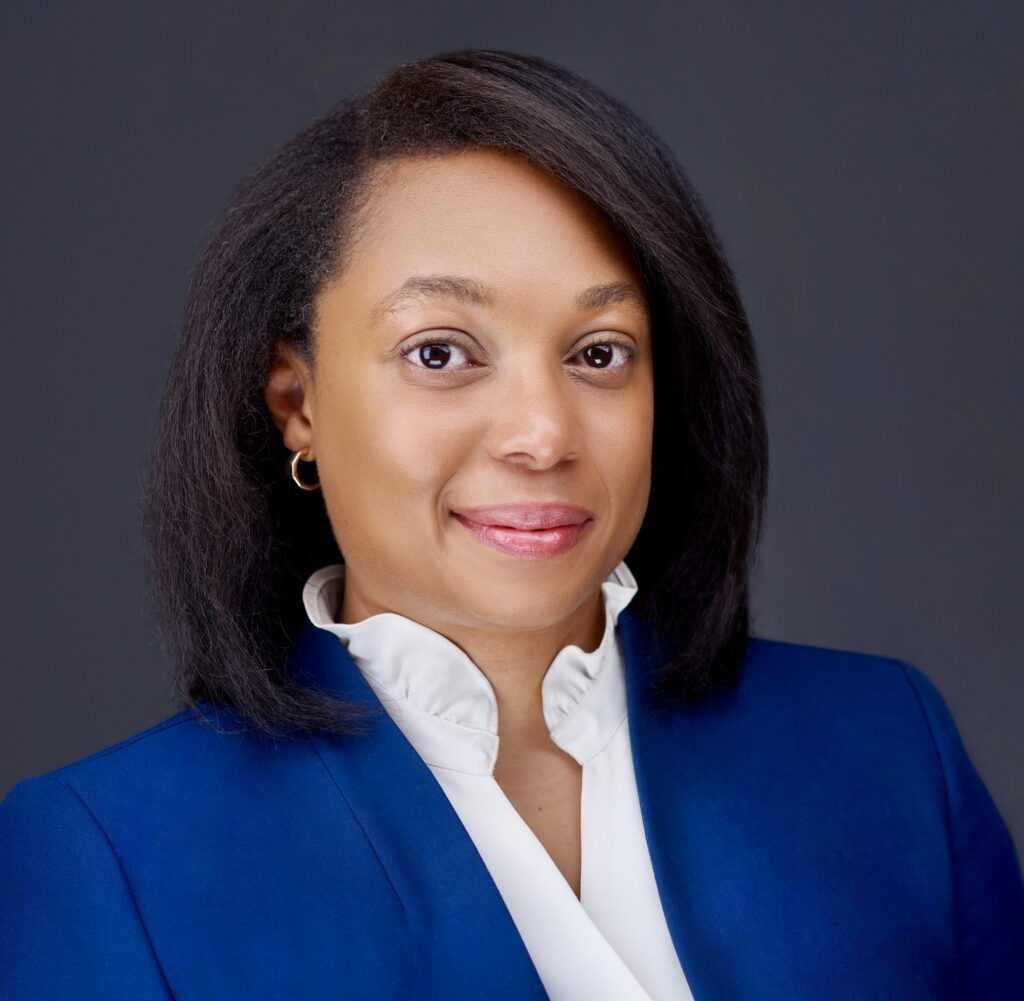
Group Vice President of Sales, RX US
Over the last 20 years, I’ve carved out a fulfilling career in sales, moving from business development to sales leadership, across multiple industries. Each step of the way has been shaped by a willingness to embrace change, lead collaboratively, and remain true to myself. My journey is one of pivots—each presenting new challenges and growth opportunities. Today, I find myself in trade show sales with RX, a role that allows me to combine my passion for value-based selling with the excitement of elevating businesses through large-scale events.
When I joined RX in October, I was stepping into the trade show world for the first time. However, I quickly realized that the principles I’d applied throughout my career were still relevant: the goal isn’t just to sell a product or service, but to build partnerships, aligning solutions with the customer’s objectives. Whether I was in the medical field, the paper industry, or now trade shows, my focus has always been on walking alongside customers to solve their challenges. This approach has allowed me to form lasting relationships and ensure that each engagement is a genuine collaboration.
One of the key lessons I’ve learned along the way is understanding where the customer is in their journey. Not every client is ready for a partnership, and recognizing when someone is more transactional allows us to meet them where they are. But for those ready to collaborate, it’s a rewarding process of co-creating solutions and iterating over time. That’s what excites me most about trade shows—we’re not just providing a service; we’re offering a platform for businesses to thrive, and we get to walk that path with them.
**Finding My Passion Through Pivots**
My career wasn’t always centered on sales, and early on, I wasn’t even sure how I’d break into business. My undergraduate degree is in Math and Engineering, and growing up in Nigeria, Engineering was seen as one of the most desirable professions. However, my father, a successful businessman, inspired me to pursue an MBA. He was my first role model, showing me the value of passion and resilience in business. While I hadn’t figured out exactly how I’d enter the business world, sales found me during my undergraduate studies when I was recruited in a part time role at Apple.
Apple was my first sales role, and it stands as one of my greatest accomplishments. At the time, I knew very little about Apple’s products, but the company saw something in me that I wasn’t even sure I possessed: the ability to be myself and connect authentically with people. I wasn’t just selling a product; I was solving problems for customers by understanding what they needed. That authenticity has remained my core strength throughout every pivot in my career.
After Apple, I transitioned into the paper industry, moving into business development and field sales. This was the first significant pivot in my career, and it taught me how to navigate large, traditional industries. I had incredible mentors during this time who guided me through the nuances of sales, helped me build a professional network, and showed me how to work with senior management. This period was crucial because it laid the foundation for the inclusive, supportive leadership style I practice today.
**Challenges and Growth through Industry Shifts**
One of the most defining pivots in my career came when I transitioned into the health care industry. Moving from the paper industry to health care was challenging—not only because of the complexities of a highly regulated environment, but because I needed to build credibility in a field that was completely new to me. To overcome this, I leaned in to learn from my peers and customers and pursued a master’s in health care systems. This ensured I had the expertise to thrive in the industry. That time, hard work and educational investment paid off when I was later nominated as Regional Vice President of the Year.
The move to health care also taught me how to lead with a deep sense of collaboration. In a field where patient outcomes are paramount, understanding and aligning with customer objectives was critical. My role was to work closely with stakeholders, guiding them through complex systems and finding solutions that would benefit their organizations and the people they serve. This was where my skills in value-based selling truly developed.
**Leadership and Mentorship: A Collaborative Approach**
Today, as a leader in the trade show industry, my focus is on collaboration—whether with my team or with customers. I strive to create an environment where we roll up our sleeves and figure things out together. I learned this inclusive leadership style from the mentors who shaped my career. My father remains my greatest influence, but the mentors from my paper industry days have also had a lasting impact. They taught me how to navigate complex sales cycles, network strategically, and position myself for leadership. These lessons weren’t part of any formal curriculum; they came from real-world experience and the generosity of those willing to guide me.
As a leader, I make it a priority to support my team in the same way. What matters most is what each person is trying to achieve. I’m here to help them get there, regardless of their background or experience. My goal is to be the kind of mentor who helps others see what’s possible, even when they can’t see it themselves.
**Advice for the Next Generation: Embrace the Pivot**
If there’s one piece of advice I always offer, it’s this: Embrace the power of the pivot. Don’t be afraid of change or stepping into new environments. Each pivot I’ve made—from Apple to paper, to health care, and now trade shows—has been a turning point that allowed me to grow and refine my skills. Even when it’s challenging, the lessons you learn will always be valuable.
For those interested in sales, especially young women who may not see it as a natural fit, I encourage you to explore the possibilities. Sales is so much more than closing deals—it’s about building relationships, understanding needs, and creating solutions. If a client says “no,” it’s not a rejection; it’s just not the right time or the right person. Keep going, keep showing up, and know that things will work out if you stay focused on your goals.
Ultimately, I’m proud of the path I’ve taken, and I hope to inspire others, just as my father inspired me. Sales has given me the opportunity to grow, lead, and impact others, and I believe it’s a path full of potential for those willing to embrace it.
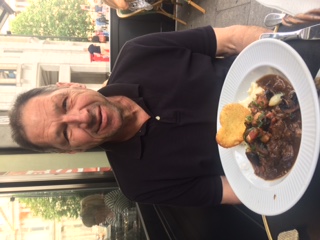
Retired Event Executive
I was more than 40 years only old when I got my first job in the trade show industry. In my case, it was my work experience in the seafood industry that led to my joining a company that organized the largest seafood trade show in the United States. My past experience played the major role in this job at first, but once in the exposition industry, my learning was a combination of on-the-job and attending industry training and events. I was curious, asked questions, and listened.
I was hooked as soon as I participated in the first event that I helped organize. It is a very rewarding feeling to see how your own work helps so many people gain their success in business. It was especially exciting for me because I came from the industry of my customers. Although you don’t have to have a background in the customers’ industries, having it helps to know the vocabulary, to understand their business and marketing needs, and to draw from experience to provide knowledgeable and tailored assistance. Often, I knew the customers or the companies they represented, which also made it easier for me to reach out to them and continue to build invaluable relationships.
I started as an exhibit sales manager and steadily advanced to sales director, then show director, Vice President, and eventually COO. I have organized events in the U.S., Europe, and Asia. Launching events in foreign marketplaces is a challenge, and very rewarding when successful. I helped to launch a number of new events – some were very successful and but I had a few duds as well. I had to try them though, to find out that they would not work out as well as the others. The trick is to be careful how much you invest in ventures and the way you invest in them. Also, have a Plan B or escape route if you see things not going according to Plan A.
My management style is very simple, hire good people and then get out of their way. Provide training and guidance, not micro management. Let them know you trust them, and give them some authority to carry out their jobs. At the same time, I was always available to give them support and advice; my staff knew that they could either confide in me or get me to reach out to others for more help. Building a dynamic team is as rewarding as building great events.
Launching a new event and then managing it as it grows is the best part of the job for me. I worked with a team to accomplish a goal. Also, understanding the industry you are working in, learning new things about it on an ongoing basis is great.
The advice I would give is based on my personal experience: if you want to be a good trade show organizer, you need to analyze the industry you are working in, figure out the buy/sell relationships and then create an event that adds value to both buyers and sellers. That will make you an invaluable asset, and a successful event for your customers.
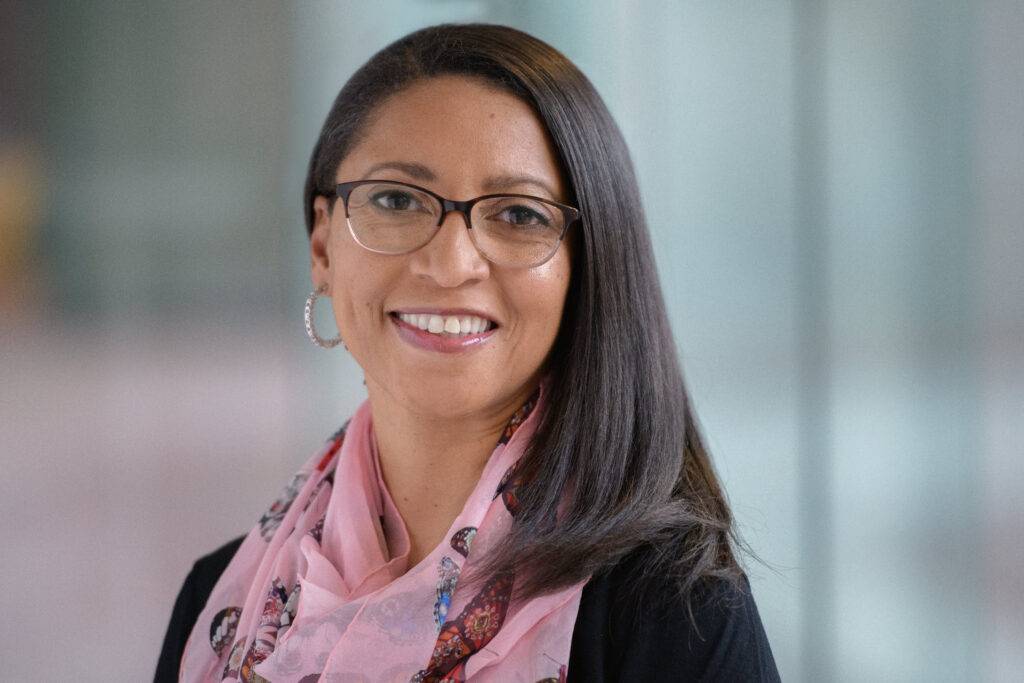
Managing Director, Events, The American Institute of Architects
After graduating from college with a marketing degree, I took a job in retail and quickly realized it wasn’t the career path for me. Looking through the job ads in the newspaper, I answered one from an association that, as it turns out, was posted by a placement agency. The agency placed me with a small association, the Private Practice Section of the American Physical Therapy Association, as a front desk administrative assistant. A few months into the job an opportunity opened up in exhibit management. From there my role quickly expanded into marketing, graphic design, and exhibit management, on top of maintaining my administrative duties. This kickstarted my journey into the industry, and I embraced this new opportunity to learn and grow professionally.
My first tradeshow was in Dallas. As I walked the show floor interacting with exhibitors during set-up, I found myself trying to navigate the enforcement of venue regulations and show protocols, not very successfully. It was there that I encountered GES, our event decorator, and Bob Hartsoc. Recognizing my initial struggles, Bob graciously extended his mentorship, introducing me to exhibitors, helping to enforce regulations while providing valuable insight into show management. Over the next four years Bob’s wisdom helped shape my understanding of the industry from drayage to fire marshal regulations, and everything in between. My love for the industry started there and continued to grow throughout the years.
Throughout most of my career, I’ve primarily worked for associations, with a brief detour into the dot-com world during the burst of the tech bubble. However, my heart remained in the events business, where I quickly returned. I found my niche with organizations like the School Nutrition Association, orchestrating a large-scale food-focused show that propelled innovative products like Dippin’ Dots and Uncrustables into the market. This job was deeply rewarding as the mission of the organization and its members supported providing nutritious meals to K-12 students nationwide. From there I transitioned to the National School Boards Association which offered a distinctly different perspective, moving into the world of policy and the political landscape of K-12 education, where school board positions often served as launching pads for political careers. My time at NSBA proved pivotal in refining my skills and laying the foundation for my career in the events industry over the subsequent 15 years. During this tenure, I spearheaded the management of their meetings, exhibits, events, and sponsorship programs, honing my expertise and making significant contributions to the organization’s success.
I went on to the American Chemical Society where I learned how vitally important chemists are to our everyday lives. A chemist touches almost everything we use in our day to day lives, from makeup to house paints, to clothing and plastics — you name it and there’s an imprint from a chemist. There I managed a large team responsible for producing more than 100 events annually ranging from a few hundred to up to 19,000 attendees domestically and internationally.
Currently, at the American Institute of Architects, I find similarities to my previous organization, as architects shape the very environments we inhabit, work, and play in. The AIA Conference on Architecture & Design is one of the most visually stunning and coolest conference and tradeshows I’ve had the pleasure to work on.
The relationships I’ve cultivated throughout my career have been invaluable to my growth and success. My mentors and friends I’ve met along my journey have provided me with priceless guidance and support over the years, some spanning two decades. Their wisdom and encouragement have been instrumental in shaping my career, and I’m grateful for their ongoing presence in my life.
This industry allows individuals to make long lasting meaningful connections and create memorable impactful experiences, that improve peoples’ lives thought meaningful connections and learning opportunities. It grants us opportunity to take risks, push boundaries, and innovate, allowing us to effect change both on an individual level and on a broader scale. I’m truly grateful for how far I’ve come in my career journey, particularly because I’m deeply passionate about the creative aspect of my job, which complements all the other fulfilling aspects I’ve mentioned.
To the next generations, I say take a balanced approach: work hard and play hard. Take ownership of both successes and failures, using them as steppingstones for personal growth. Additionally, I urge you to:
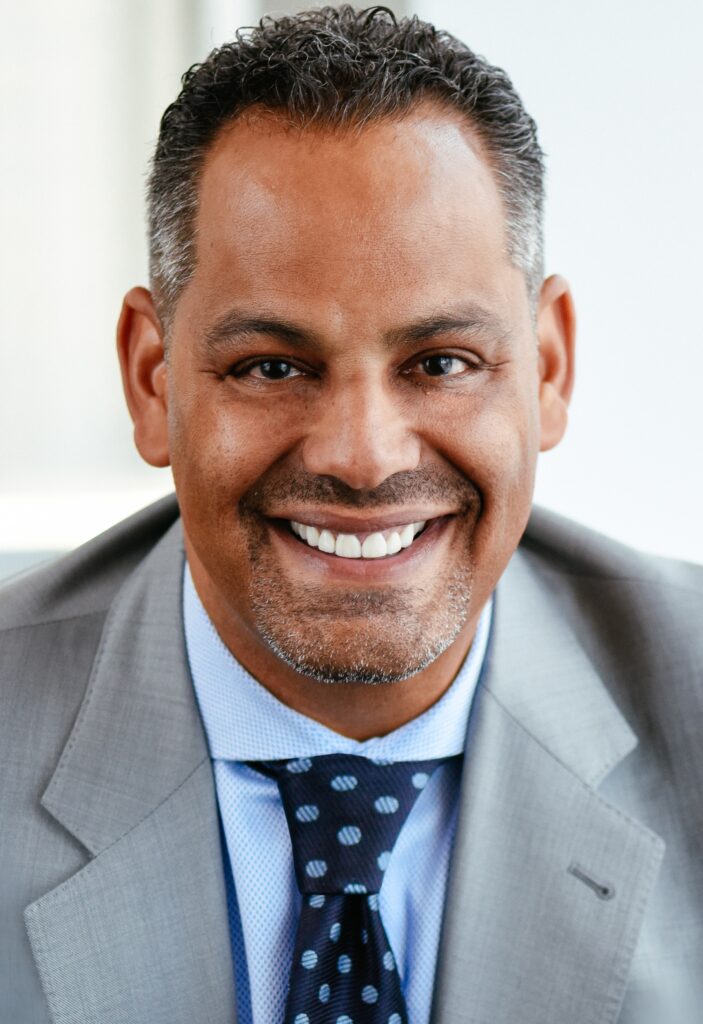
Chief Growth Officer, MW Logistics
I started my career in consumer-packaged goods as a “fresh out of graduate school” marketer with Frito-Lay. I experienced a couple of career stops, then completed the sale of a company to a private equity firm in the fall of 2007. Immediately thereafter, I attended Parents’ Day at my daughter’s school and struck up a conversation with another parent. When she got to the dreaded question, “What do you do?” I shared some highlights of my career in marketing, and she told me that her company, Freeman Company – the largest general service contractor in live events in North America – was looking for a Chief Marketing Officer, and the rest is history.
Joining the industry, it was an immediate infatuation with how this “hidden industry” was exactly what I had been searching for professionally. This industry provides the opportunity to work with astute businesspeople, create experiential events, and have a plethora of fun in the process. If you are a people person and forward thinker, this industry is for you. Once it is in your blood, you do not want to be part of any other industry. This has been the case for me from the day I met that “parent” at my daughter’s school event. I have not looked back.
From 2008 to 2014, I was Chief Marketing Officer at Freeman® when the company produced over 5,000 live events and 11,000 corporate events annually for companies such as Domino’s Pizza, and events as big as the Consumer Electronics Show. I met so many wonderful people, worked on a variety of events, traveled the world, and got to participate in activities such as private concerts and international summits. An accomplishment of which I am most proud while at Freeman, was the creation and rollout of Freeman Technology Suite (FTS). It redefined how technology would engage customers in live events, from online ordering to digital concierge services on the show floor during an event.
From 2017 until earlier this year, I served as Chief Sales and Marketing Officer for The Expo Group, a 30-year-old general service contractor. The role was exciting for many reasons, but I was attracted primarily to the fact that the company had a blank canvas for painting how the company could triple in revenue within 7 years. The company not only met their goal but achieved it two years ahead of plan, which is an accomplishment I am most proud of during my tenure there.
I have met so many mentors, friends, and colleagues in this “people-centric” business that presents limitless opportunities for those with a passion for live events and people. You will always feel challenged and professionally satisfied in this industry. I would recommend this industry to people without reservation.
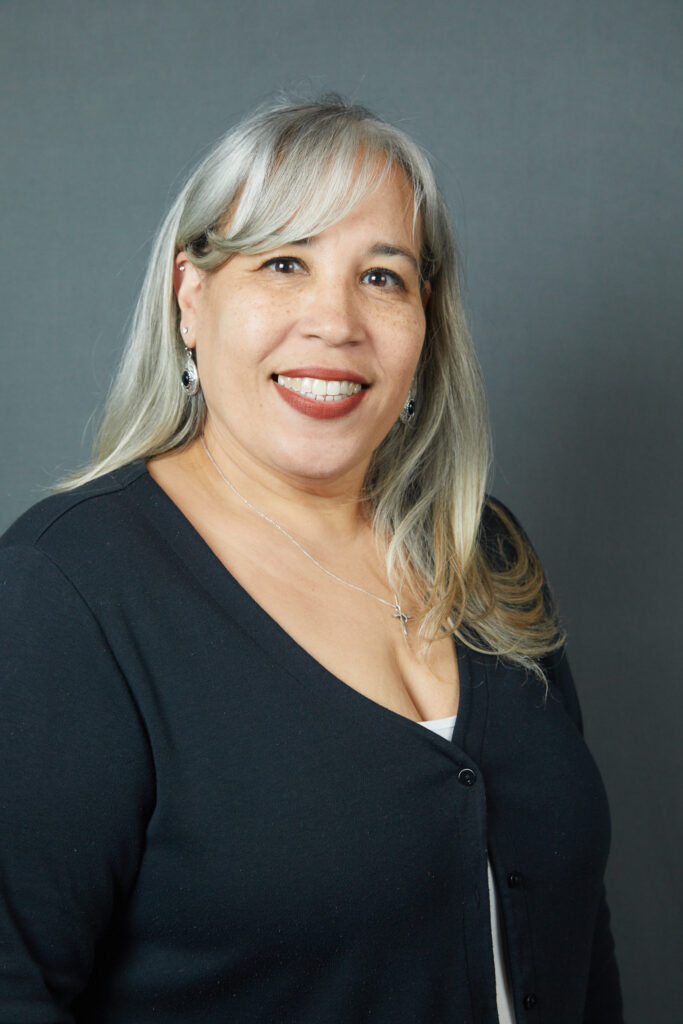
Expo Services Manager, U.S. Poultry & Egg Association
I entered the industry somewhat by chance, joining the association as an Administrative Assistant supporting the Regulatory, Food Safety & Production Programs, and then the Research and Accounting Programs. After 3 years, an opportunity opened for an Expo Services Coordinator position, and I was fortunate to be selected. Within a year, I was promoted to Expo Services Manager, dealing with the logistics of our exposition. Two years later, I was in charge of sponsorships. I believe my academic background—a bachelor’s degree in Business Administration and a master’s degree in Education—played a key role in my success, as it provided me with a strong foundation in organization and attention to detail.
I realized this was the right career path for me during my first year as an Expo Services Coordinator. I found genuine fulfillment in the fast-paced environment, the attention to detail required, and the collaborative nature of the work. Each event presented a new challenge, and I enjoyed finding solutions that made a real impact. As I gained more experience, I saw how my skills in organization, communication, and logistics aligned perfectly with the demands of the role. That’s when I knew—I wasn’t just doing a job, I was building a career that I truly enjoyed and could grow in.
Being an administrative assistant in regulations, food safety and production helped me build a strong foundation in organizational processes and teamwork. Later, in research and accounting, I managed 35 to 40 research projects at a time. This taught me how to juggle multiple priorities, stay organized, and ensure that grant payments and progress reports were always on track. Coordinating exposition services, I gained hands-on experience working with vendors and improving how we handled event logistics. In my current role as Expo Services Manager, I assist with the planning and execution of our annual expo—overseeing logistics, supporting our team onsite, and making sure everything runs as smoothly as possible. Each role has taught me something new, and I am eager to continue to learn. I’m equally passionate about sharing those lessons and helping others grow in their own careers.
My management style is collaborative, detail-oriented, and focused on results. I believe in empowering my team by creating a supportive environment where clear communication, accountability, and mutual respect constitute the foundation. I lead by example and am not afraid to roll up my sleeves to ensure the success of a project. My work ethic is rooted in consistency, reliability, and a strong sense of ownership. I take pride in staying organized, meeting deadlines, and going the extra mile to exceed expectations.
This is possible because I love my job. The work is dynamic—no two days are ever the same. I thrive on the challenge of bringing together the many moving parts to create a seamless and impactful event. It’s incredibly rewarding to see months of planning come to life and to know that my efforts contributed to a successful experience for exhibitors, attendees, and stakeholders.
What I’m most proud of in my work are the relationships I’ve built across departments and with industry partners. Collaboration is key in this field, and being a person others can rely on gives me a strong sense of purpose. I’m also proud of the growth I’ve experienced—from an administrative role to managing complex logistics on a large scale. Each step has helped prepare me for the next steps.
One of the most important lessons I want to pass along is that flexibility and adaptability are essential in this industry. No matter how well you plan, unexpected challenges will arise—and how you respond makes all the difference. Stay calm, stay solution-oriented, and always be willing to learn from each experience.
Another key lesson is the value of relationships. Build strong connections with your team, vendors, and clients—those relationships will carry you far and often make the difference between a good event and a great one.
To the next generations, I add this advice: Be curious, be reliable, and never underestimate the power of professionalism. Show up prepared, ask questions, and take initiative. Opportunities often come to those who go above and beyond—even in the small things. And most importantly, find joy in the work you do. Passion and a positive attitude are contagious and can set the tone for an entire team.

Senior Executive Leader of Strategy, Innovation, Exhibition Management, Sales, Marketing, Operations, and Communications
I grew up in a small town called, Vineland, NJ, in a close- knit family, one of four siblings and the elder twin. I was taught to keep God at the center of everything. We were raised with a strong educational foundation and taught to be incredibly disciplined. From a very young age, I enjoyed working and held various jobs including selling plants, taking photos of people with the Easter Bunny and Santa at the mall, and working at CVS Pharmacy. I earned money and bought my school supplies, and realized the value of an honest income and a sense of responsibility.
While attending college, I began what would become a career long journey in the hospitality and exhibitions, events, and meetings industry with my first real job in the gaming industry as a bus greeter at Caesars Hotel & Casino in Atlantic City. I was given a uniform, consisting of a polo top and shorts and I could wear sneakers to work! I set annual goals for myself on compensation, position, and titles that interested me, and began earning promotions, first as a box office representative and working my way up to be an executive in my early twenties. I was fortunate that there was always a leader who took an interest in me and wanted to mentor and support my career journey. I attribute my professional foundation to great leadership and in particular, Debbie Thomas, VP of Marketing at the Taj Mahal. She was the only female executive in the organization, and she was a powerhouse to be reckoned with. She taught me the importance of doing what I do really well, and learn as much as possible to become an expert at what I do.
After eight years in Atlantic City, I relocated to Georgia, and started as a Sales Manager for Starwood Lodging, and then joined NCR, a Fortune 100, $6 billion enterprise with more than 30,000 employees. I was promoted to Global Director of marketing services in the Retail Solutions Division, responsible for a portfolio of more than 100 tradeshows worldwide. I traveled all over the world, and learned about different cultures and languages. I met with C-suite executives of nearly every major retailer around the world. It was common for my peers to have MBAs and PhDs and speak, read, and write more than three languages. They inspired me to become better as a contributor to NCR. I wanted to become an expert at NCR’s products, solutions, and technology. I valued the difference our employees and customers made, and it has been my passion to appreciate key guiding principles of building long- standing relationships with colleagues and customers, and to collaborate together towards a common goal.
From NCR, I went on to a privately held, family-owned company in Atlanta, and was promoted after only one year to lead LIGHTFAIR International, and grow it to be the world’s largest architectural and commercial lighting tradeshow and conference program. We went from a $5 million enterprise to generating more than $18 million annually. It was an extremely rewarding time in my career, and I am proud of our numerous contributions to the organization and industry. During my 12 years there, I rose to Vice President, and led an award-winning team and event that was recognized by the industry for many years. To this day, I still meet with my former LIGHTFAIR team at least twice a year, as they have become a part of my family. During this time, I also earned the International Association of Exhibitions and Events Certified in Exhibition Management (IAEE CEM) designation.
In December 2018, a recruiter approached me about my current position. My initial response was to offer to forward the inquiry to others in my network, and after few attempts, I took a closer look, and it piqued my interest. Now, nearly five years in, it was the best decision I’ve ever made. AVIXA is a global association, dedicated to promoting the audiovisual and integrated experience. It is an honor to pull upon my years of experience to lead InfoComm, the largest pro AV technology tradeshow and conference program in North America with nearly 1,000 exhibitors and more than 43,000 registered attendees. It is a pleasure to serve our members, attendees, exhibitors, and my team every day, doing something that I enjoy and that impacts the world.
I have learned a tremendous amount through the years: how to be strategic, agile, flexible, and a critical thinker; and how to lead teams, build relationships, resolve conflict, negotiate, oversee Profits and Losses (P/Ls), manage strategic account, communicate effectively, and always be a respectful professional. I have worked with professionals at every level of management up to the C-suite, with customers and vendors across our industry and different verticals. I have developed strong relationships, served on various advisory committees, including as Chair of IAEE’s Diversity, Equity, and Inclusion (DEI) Committee. I have helped create a scholarship for students in underserved communities, and built a purpose-driven and meaningful career. The exhibitions, events, and meetings industry has created a path to success that I had no idea even existed and that I could make a career of it for 35 years.
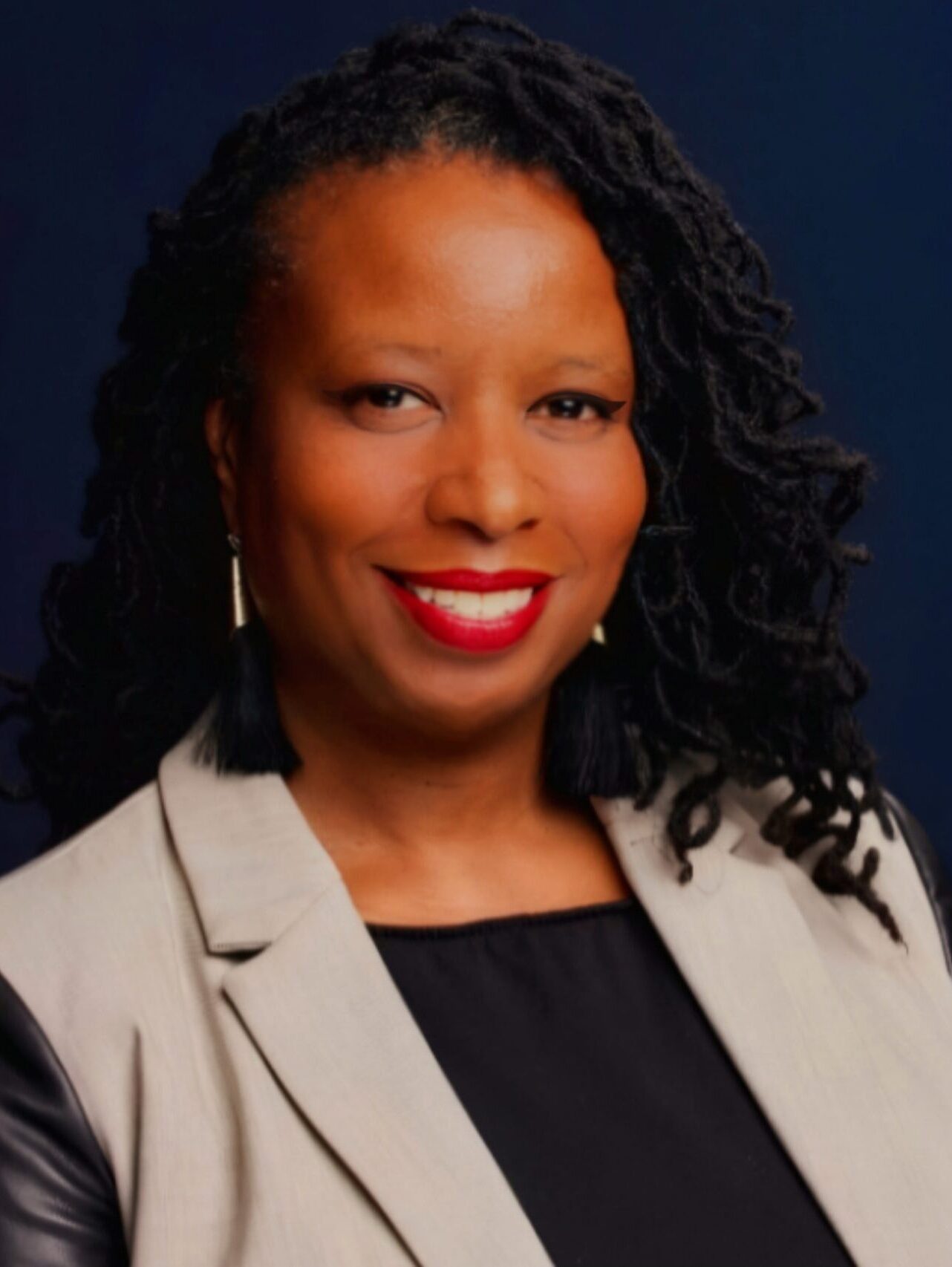
Chief Program & Strategy Officer, TED
In my third year at Saint Peter’s University in Jersey City, NJ, where I was a marketing major, I went to the Career Center and found an internship at a small boutique media and events company in New York City. I didn’t even know being an event organizer existed, especially corporate events. Yet here I was, a Jill-of-all-trades in operations and sales doing sponsorships, public relationships, and event production. It didn’t pay well, maybe just a small travel stipend, and it was one of four jobs I was juggling (two campus jobs and retail work at JCPenney), but it went so well. I enjoyed it so much that I decided it was to be my career. Besides, from a marketing perspective, I didn’t know what else I would do. In this industry, I felt so accomplished. It was a tangible sense of getting things done, seeing things come to life and into action. When things went well, there was a clear sense that I contributed to them. That was a big motivation for me. Plus, these corporate events had an entertainment aspect, and I got to meet celebrities. LL Cool J was one! Being so young, and being in environments where important people were dependent on me for a successful event felt amazing. For example, LL gave me a hug when he came off the stage at an event, and I thought, “This it, this is my new fabulous life – LL hugged me!” There was no turning back; I found the career I wanted.
Post college, my first “adult” job was Promotion Manager for Ringling Bros. and Barnum & Bailey Circus and Disney on Ice, where I traveled around the East Coast, promoting the programs to the media and coordinating partnerships with corporate entities. But another aspect was walking the elephants from train stations to the venues along with the clowns and other entertainers. So many interesting and wonderful stories to tell from that experience. It only paid $27,000 a year, but it gave me a lot of experience in the events and media industries that I still lean on. It was another unique environment that was fascinating.
My jobs have not only contributed to my professional growth, but my personal growth too. At one job, I asked for a $5,000 raise; it was denied, and I left for a senior role in a small organization where I didn’t last 6 months. The lesson I got from that failure was to have more patience in life and do more due diligence in understanding a company’s expectations and whether they truly aligned with my needs. I didn’t take enough time to see if we truly were a good match. I was busy trying to prove that I deserved the higher role, but didn’t necessarily understand if I was truly prepared for what all comes with that role. In the end, I had to take a step back before I could take 10 steps forward. For nearly a year, I did freelance work and consulting while trying to get a full-time job. But from that experience, I became more intentional about my growth, and not just focusing on my title, but my skillsets and what organizations truly needed.
I am proud that I reset myself to think about my career journey and my role in a different context. Once I veered away from titles and toward establishing competencies, I also learned that just doing a good job doesn’t attract promotions, it just gets more work. You have to be seen, and networking has to be intentional — which people can help me; what skillsets do successful people have? I researched on LinkedIn people who held the roles I wanted and made a list of skills that I didn’t have based on their profiles. Then I built relationships to find out how to gain those skills, and I drew up a roadmap of what I needed to do to get to where I wanted to be. And I got there – I haven’t had to look for a job in 14 years. I’ve had 6 jobs since this change in strategy, and either I was recruited for those jobs or referred to them by someone in my network.
My management style and work ethic are all about empathy and real-world experience. I’ve been in the trenches, tackling projects and overcoming challenges just like my colleagues. That’s why I lead with a balanced approach—I understand the struggles, but I also know the importance of keeping things moving forward. Perfectionism? Nah, not my thing. I’m all about the 80/20 rule: most of the time, things work out just fine, and when they don’t, we learn and grow from them. It’s all about embracing the journey, taking risks, and becoming better each moment of your journey.
I’m living a version of my dream! Traveling the world, meeting incredible people, and making a real impact on people’s lives. Whether it’s sparking a breakthrough in business or helping someone grow personally and professionally, I thrive on creating unforgettable and life changing moments. And you know what? I’m proud of my work ethic and track record as a top performer. But here’s the thing—I know how to have fun along the way. If something stops my spark or optimism, I’m not afraid to pivot and move on from it because I know there’s always something better waiting around the corner. It’s all about chasing joy and seizing every opportunity that comes my way.
Now, turning to students and new graduates, let’s talk about the pressure cooker called your 20s. Spoiler alert: You don’t need to have your whole life figured out by 30. Seriously. Your 20s are all about exploration, trial, and error. Try things out, ditch what doesn’t vibe with you, and embrace the journey. Flexibility is imperative! You never know what blessings might be waiting around the corner. And guess what? You don’t need to impress anyone with your career choices. Not your friends, not your family. Focus on what makes you tick and the skills you enjoy. Build a life that feels like you, and celebrate every little win along the way. Gratitude is your secret sauce. Work from a place of thankfulness, and watch the universe send some serious positivity and optimism your way.
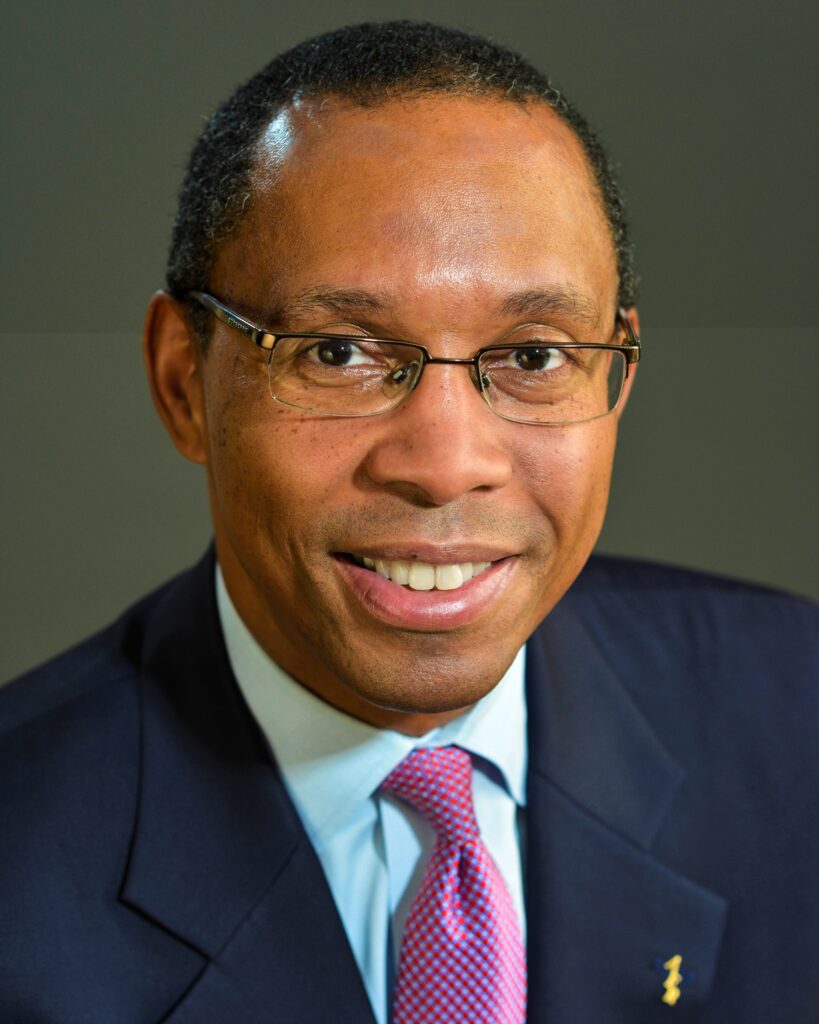
Founding Partner, Rutherford & Associates
My career in the hospitality industry began before I graduated from Southern Methodist University (SMU). During my sophomore summer, I had the opportunity to work on the SMU conference staff. In those days, SMU hosted a number of groups on campus during the summer, from high school cheerleaders to seasoned professional bankers. As a Conference Coordinator, my role was to check them into the dormitories, answer their questions, and occasionally make a bed or two. This early introduction allowed me to experience conference planning from the inside. In my junior year, I was introduced to the challenge of opening a hotel when I was recruited to participate in a sales blitz for the launch of a new property.
While I graduated with a dual degree in Public Relations and Advertising, because of my experiences in college, I knew that I wanted to pursue a career in hospitality. Knowing this, I interviewed with several hotel companies. I decided to begin with Loews hotels because I felt they offered me the greatest opportunity to learn and quickly advance. I was rewarded within three months of joining the company when I was promoted to Hotel Manager on Duty (MOD). The property had 1,620 rooms and five Hotel MODs responsible for troubleshooting guest issues. This role sharpened my listening and conflict resolution skills and led to a call from my General Manager (GM) to become the interim telecommunications manager. To address the problems in that department, I moved into the hotel so I could observe all three shifts and offer solutions. The corrective measures I instituted were favorably received by staff and owners, which led to my promotion to Senior Hotel MOD, working primarily with the GM on special projects and assignments.
One day, the GM called me into his office and said he appreciated my solid understanding of operations, but I needed sales experience, so he had recommended me for a sales management position with the Dallas Convention & Visitors Bureau (DCVB). At the time, Dallas was the second busiest convention destination in the country and an ideal training ground. I interviewed for and accepted a sales manager position, focusing on national accounts. I worked closely with meeting planners who represented corporations, associations and government events. They shed light on a part of the industry that I had not considered — event planning and production. I picked the brains of the planners and my DCVB colleagues and realized it might be a new career path. I considered striking out on my own when I was approached by Marriott Hotels, Inc., to be a hotel GM. It was a dream of mine, so I accepted and began as a sales leader specializing more on strategy and team development.
These experiences were preparing me to lead my own hotel, but a meeting planner asked me whether I had thought of event planning. I had to take a moment to consider this. Well, at this point the entrepreneurial pull was just too strong, so I resigned my position at Marriott and launched Rutherford & Associates. I called the client I had been working with and said that I had launched my own event management company, and to my delight, she said she would be my first client. With that, R&A was up and running.
In the early days, I remember working 25 hours a day, 8 days a week and loving every minute. What resonated with me was the trust people placed in me, which drove my commitment not to let them down. Our reputation grew, and slowly but surely our client portfolio increased. More and more opportunities presented themselves. The one I cherish the most was a call from The White House to consult with the presidential advance team, which plans and executes presidential events here and abroad. (I grew up in Arkansas, and had met Governor Clinton several times.) I was asked to lead a team overseeing the myriad details for a presidential visit, including working with the event host, US Secret Service, Air Force 1, and the White House Communications Agency. I did this while growing my business and serving my regular clients.
However, as a political appointee, I served the last two years of the Clinton administration, as Associate Director of Presidential Advance and was responsible for overseeing production of events such as the G8 Summit, Asia Pacific Economic Conference, and state visits to Australia and Nigeria. Aboard Air Force 1, I served as the President’s Trip Director where I resolved issues inherent in presidential travel as well managing the destinations we were visiting. While I enjoyed traveling with the President, when he left office, I was pleased to return to Dallas and continue working with my clients.
Looking back on my career, there were numerous people along the way who encouraged and developed me, and I will be forever grateful. When I think about my life, the work that I’ve done, the experiences that I’ve had, and the people I’ve met, two factors I think led to my success were being detail oriented and solution focused. My management style was always hands on because what we do can’t be phoned in. You’ve got to be there to make a difference.
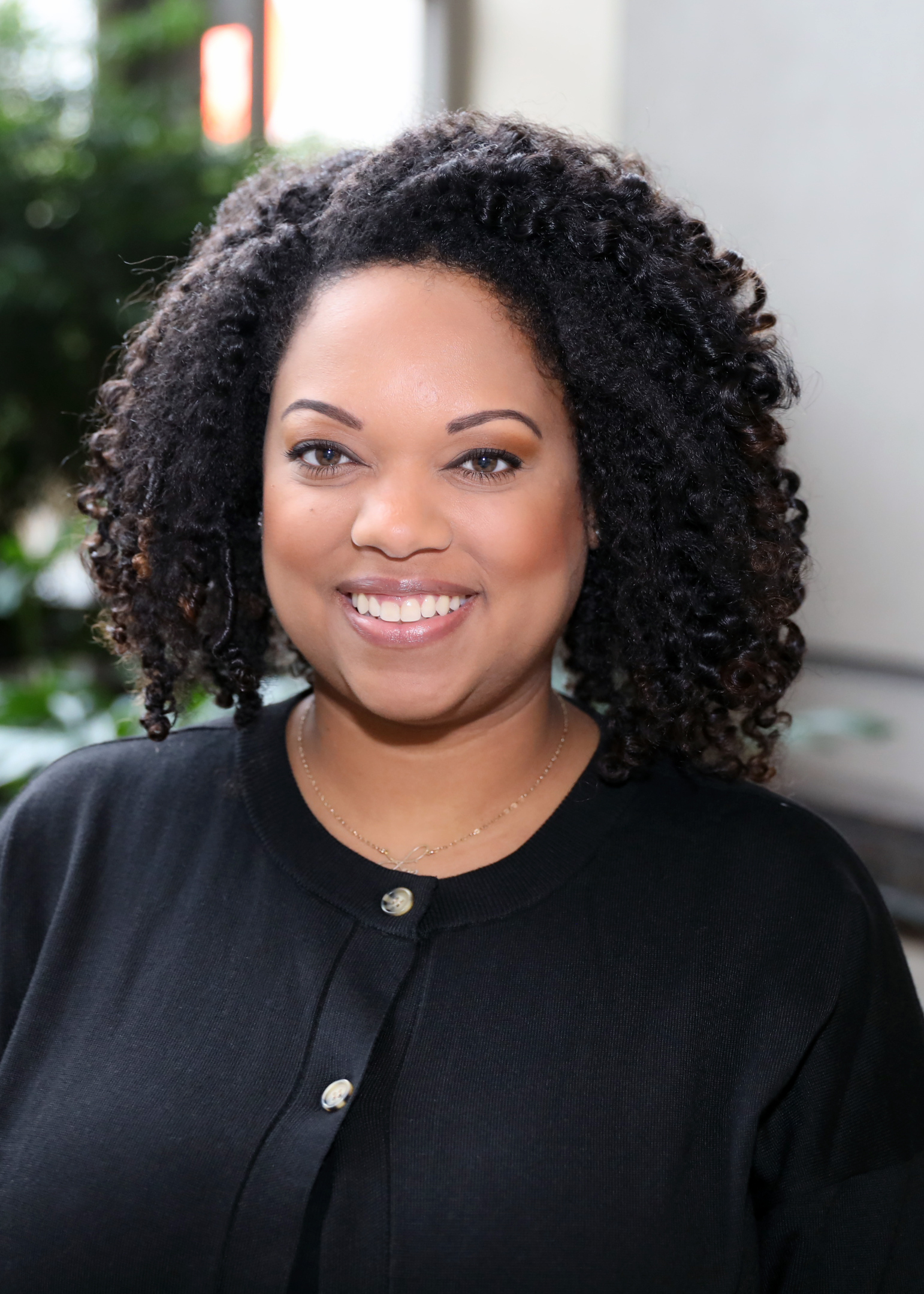
Vice President, CES Sales, Consumer Technology Association (CTA)
I have been with CTA since college; I started as an intern the summer after my junior year at George Mason University. I was a Communications major, and a communications manager from CTA came to speak to us about careers at his association and its trade show, the Consumer Electronics Show or CES. After his talk, I went up to him and asked about CES. He told me about the people who attend, how amazing it was and all the great exhibiting companies presenting the tech innovations. Then he said that internships were available. I applied and started in June 2005, in CTA’s communications department doing public relations work for the show.
So I just fell into this business – it’s something that you don’t ordinarily encounter at school, someone has to introduce you to it. Once my internship started, I quickly learned just how amazing CES is and really felt connected to CTA’s mission to grow the customer tech industry. My internship lasted 6 months and culminated with me getting to go CES. After my first show, I was hooked.
There is no frame of reference for what a show is until you get on site, then it’s, “Whoa!” – it’s the “Aha moment.” You’ll love it or not, and I loved it. When I got back from Las Vegas in January 2006 (I had graduated early after carrying a full-time work and class load as well as summer classes), a position opened in the sales department. I knew I wanted to stay at CTA, I liked the people, and thought I would try my hat in sales. My manager encouraged me to apply. At my interview, I explained how my communications education and experience would help me in sales. I had taken some psychology courses too, which I said helped me understand how to communicate with people, how to set the stage when encouraging companies to participate in the show.
I started as a coordinator in the sales department in February 2006. When you’re selling something, you’re also selling a little of yourself. I like to meet clients where they are. No matter what you’re talking about, it’s about understanding the mindset of the person you’re talking to. A CFO will want to know how this opportunity will affect the bottom line, a CMO will want to know about exposure and how this opportunity will help increase their brand recognition or market share. I leveraged this knowledge to achieve a big accomplishment in my career, enticing the automotive sector to exhibit at CES. I was assigned the automotive aftermarket sector, an area I knew little about, but my manager sent me to observe other shows in that industry. Being new and one of the few women of color in this field, I was pretty much on my own, and I spent the time absorbing everything I could. Car technology at CES back then was almost all about audio, but it was growing with GPS technology, emergency communications, and satellite radio. I found a couple of companies willing to exhibit, and then the car industry tanked. My manager left, and I was elevated to a manager position. The big three car manufacturers were criticized for not keeping up with consumer needs. So I started pitching them on using CES as a platform to build a new narrative. Soon I landed, Ford and a year later they keynoted I went from selling small booths to big exhibits and cast a broad net into the vehicle tech market. A few came in at first, then more came, and eventually they all came. Now we’re a premier event for the auto industry. We helped change how consumers think about cars.
Getting here has been due in large part to a lot of people and a few mentors in particular. When I had to run various segments of the show, I asked people who had the answers. The more they shared their knowledge, the more I wanted to be like them. Two great mentors were advocates for me as well as information sources. My boss in sales was constantly training; he ensured I had the tools to be successful. He reminded me to earn our clients’ trust, listen to what they need and want. They’ll come back with more business, then you provide them solutions.
There’s never a dull moment at CES, new challenges arise every day. I’m a doer and I love the work. I like to mentor new staff, knowing sometimes that they, like me, have randomly come into this industry. Half my team had never been to a tradeshow before. I love to empower people and give them ownership of projects – when they have autonomy, they will put their all into it. I’m not a micromanager; I give advice, tools, support, and the best resources possible. I also don’t ask for anything I haven’t done. Because I have come up through the ranks, I understand the struggle. I have high expectations, but I know they’re achievable and I won’t leave anyone out on their own. I strive to have personal relationships with everyone on my team and have real conversations with them. I want every team member to know they are seen and appreciated. I want to help make the right career fits, depending on their interests and capabilities. I like to know their goals and where they want to go so I can help them get there.
Advice I give them and anyone wanting to succeed in business are:
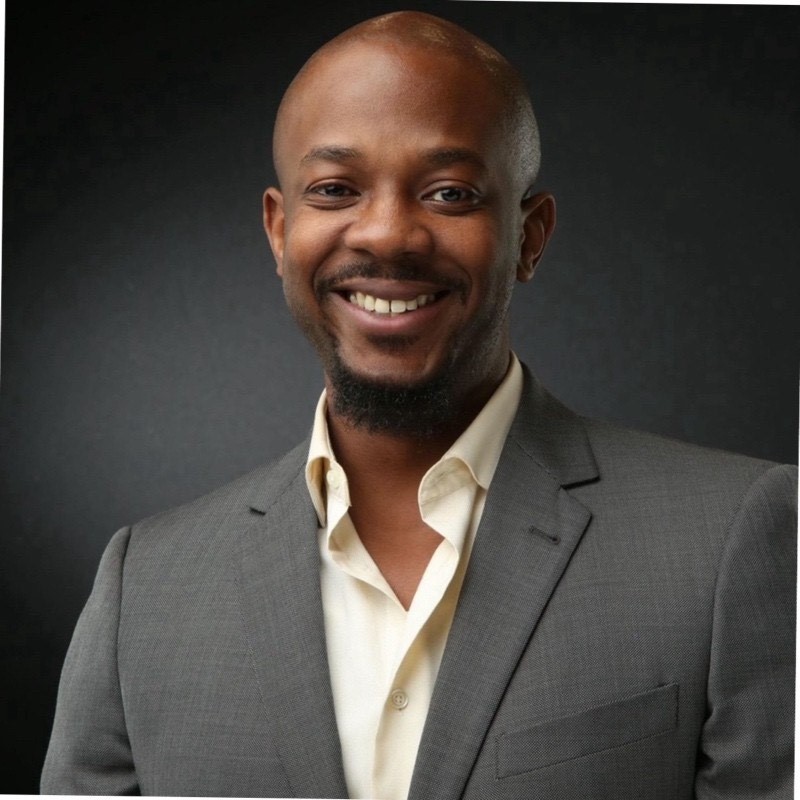
Account Manager, Business Development, Asian American Hotel Owners Association (AAHOA)
Sports have always been a major part of my life. In high school, I was deeply involved in track, football, and baseball, and my passion for athletics naturally evolved into an interest in the business of sports and tourism. That interest led me to major in Sport and Recreation Management within the School of Tourism and Hospitality Management, a subset of the Fox School of Business at Temple University.
My first glimpse into the global impact of sports came during my junior year through an internship with Philadelphia Parks and Recreation. I had the opportunity to work on the International Dragon Boat Races, which gave me a broader understanding of how sports intersect with community, culture, and international engagement.
During my senior year, AYS Sports Marketing was looking for volunteers for the 2002 NBA All-Star Weekend in Philadelphia. I jumped at the chance, which led to securing my senior internship with the company. One of my first assignments was welcoming sports celebrities on the red carpet. Shortly before graduation, I was sent to Puerto Rico to assist with the NBA Players Association annual meeting. The energy of the All-Star event and the excitement of the Puerto Rico trip sealed it for me—I was hooked. I kept things professional, even when surrounded by sports legends, and that left a strong impression. My efforts led to a full-time job offer from AYS, which I accepted.
At AYS, I held the title of account manager, but like many small companies, the role came with many responsibilities. I was involved in sponsorships, marketing, and operations, ensuring our elite clients—like Adidas, ChefWear, Ciroc, BET, and countless athletes and celebrities—were receiving strong value from their investments. One standout event was the International Taste of Tennis, where world-renowned chefs were paired with top tennis players to create a unique experience.
From AYS, I transitioned into roles with a marketing agency and several associations across diverse industries including manufacturing, traffic safety, and liver disease. Each experience helped me expand my skill set and sharpen my versatility. About eight months ago, I joined AAHOA, an organization with over 20,000 members who own more than 36,800 properties nationwide.
Mentorship has played a powerful role in shaping my journey. One of my most influential mentors is Jeffrey Montague, former associate dean at Temple University. He had a strong philosophy: “I don’t make friends, I make alumni.” His guidance has remained a foundational influence throughout my career.
Another key mentor is Dr. Floyd Green, former Corporate Vice President and Head of Community Relations and Urban Marketing at Aetna, who called me his “Blue Chip.” We met while I was working at a soul food restaurant in Philly. He later invited me to a ribbon-cutting ceremony for the Magic Johnson Foundation in New York, where I had the opportunity to meet Magic Johnson himself.
Other important mentors and role models include Judi and Penny Lerner, and Brian Hester from AYS. I also deeply value my relationship with Necoya Tyson, a fellow mentor with The Annabelle Project. I first met her at NTP and later worked alongside her at the American Traffic Safety Services Association. Necoya is not only a key mentor but a core part of my community and a close friend whose perspective and leadership have had a meaningful impact on my life.
Being a Black man in this industry hasn’t come without its challenges. I’ve had to adapt quickly, face prejudice, and assert my value. Through it all, I’ve remained committed to showing my mentors—and myself—that I lead with pride, integrity, and self-empowerment. When managing teams, I focus on harnessing their strengths and helping them grow through their weaknesses. I believe in setting clear, shared goals and creating a culture where people can succeed and be recognized for their accomplishments. I gravitate toward people who love the same things I do—learning across industries, traveling, and building connections with people from all walks of life.
To the next generation, here’s what I’ve learned:
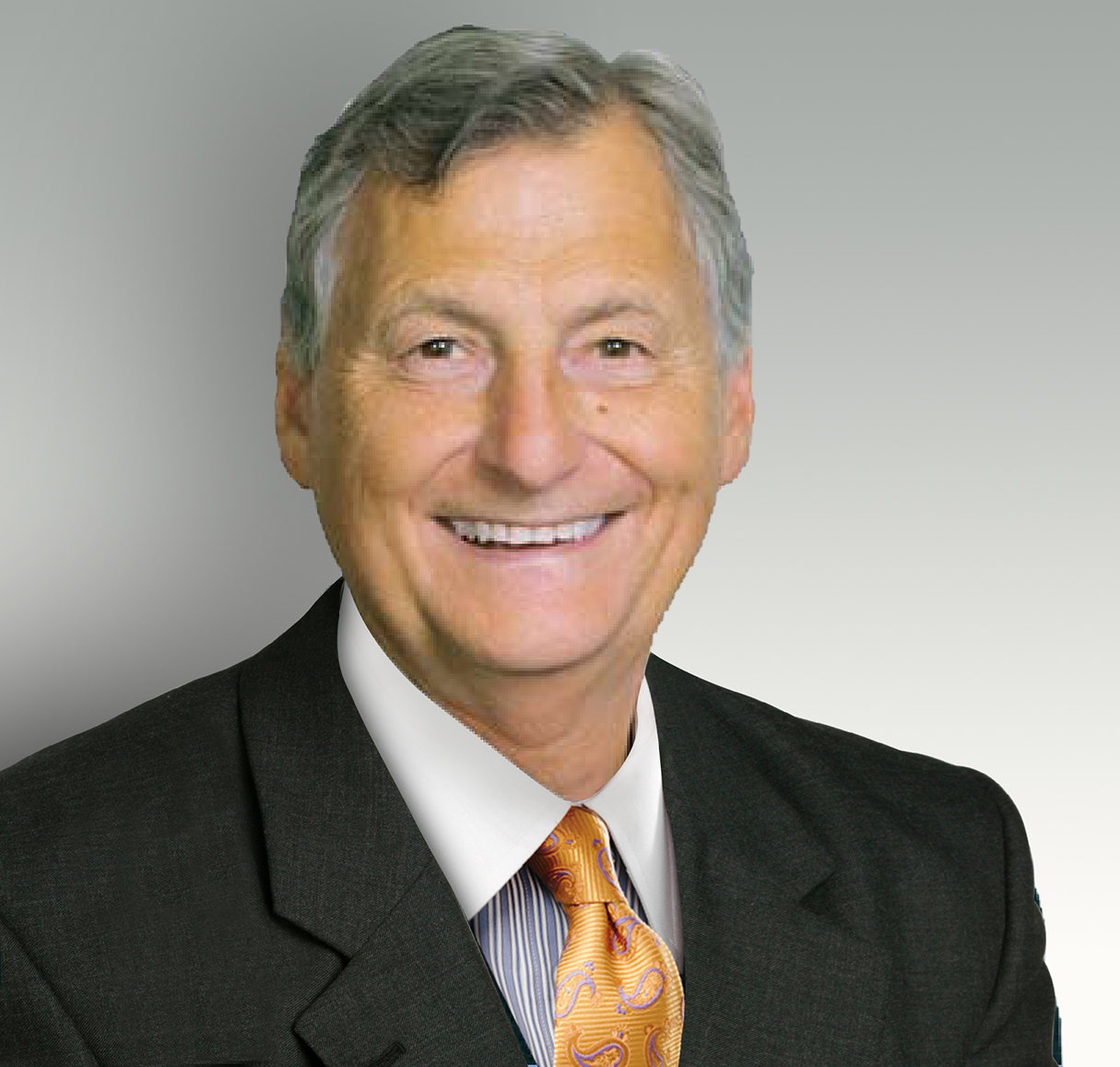
President and CEO, Shomex Productions
My first job, after graduating Ohio Wesleyan University, the Bernard Baruch Graduate School of Business (CCNY) and serving in the Armed Forces during the Berlin crisis, was as a Systems programmer for IBM just prior to internally stored program computer systems. Computers were in their infancy, replacing unit record equipment that used punched cards to originate, store, organize and deliver data. Honeywell Computers recruited me from IBM to compete with IBM. Honeywell had fewer employee rules – IBM required that male employees wear dark suits, white-only shirts and hats when visiting clients. In addition, mornings would start with motivational exercises and team building which included holding hands with fellow salesmen and singing the IBM song. At Honeywell, I went from systems to sales. It paid more and offered a career path to management.
My biggest success came when I sold a Honeywell 200 computer system to the Chairman and CEO (his son) of a blood analyzer manufacturer. The father liked the system, but his son was not as objective as the company had an ongoing relationship with IBM. The father advised me of this relationship after I made my proposal, and I acknowledged the relationship but suggested he wouldn’t have asked me to make the presentation if he had thought the IBM relationship would prejudice his selection. He agreed, signed the contract and four days later, he died. My lesson learned is to always ask for the order because you don’t know what’s going to happen.
I had a few more senior sales and marketing positions before “falling” into the exhibition industry. The last was at Novation, an early manufacturer of modems. I convinced Novation to exhibit at COMDEX, the largest computer exposition in the country at the time. We took a 20’ x 20’ booth, and I hired a mechanical mime who offered to break into song after standing still for a while. She was a former Miss Louisiana and drew such a crowd that the head of the exhibition told me I was causing too much attention to my booth. When confronted, I asked, “Isn’t that the point of exhibiting”? A week later, he called to offer me a job.
My strength is marketing. I am creative and like to solve problems by understanding the issues. Exhibitions and conventions have been a great match for me, because of the many areas within exhibitions in which one can be creative. I honed my skills at COMDEX, learning from the CEO, Sheldon Adelson. He taught me that if I could justify what I wanted to do, he would let me do it my way. After a year and a half there, I started my own company organizing job fairs. The government wanted a more diverse workforce and through Affirmative Action mandated government contractors to comply with EEOC regulations by resourcing and hiring more minority candidates, so this is where I decided to specialize.
Shomex became the largest job fair producer in the affirmative action space. At the peak, we produced 50 shows a year across the country and partnered with the NAACP. After a year, I was asked to become a member of the Board of Trustees. After 25 years in the job fair business, the Internet replaced in-person physical recruitment. In 2008, I was appointed the Executive Director of SISO, the Society of Independent Show Organizers. At the same time my business partner and I purchased Abilities Expo, serving the disability community. After 16 years, I sold Abilities in February. By supporting the disability community from the day it was purchased and by becoming part of the community, Abilities earned the trust of the community and was able to grow, producing shows in seven cities nationwide.
As a manager, I discuss objectives, get agreement on the ability to achieve those objectives and expect results. I look for people with desire, motivation and my role as a leader is to answer questions and give advice. I don’t believe in failure as being anything other than a lesson learned. Failure doesn’t exist if the project and objectives are well defined and the path to achievement are well thought out. One only needs to be right 51% of the time to be successful.
To the next generations, I advise, “Don’t take ‘no’ for an answer, and to look for ways to get something done as opposed to saying it can’t be done!” To quote my old boss, who became the 26th richest man in the world, If the boat comes to a bridge and it’s too low to pass under, you don’t have to raise the bridge, you can lower the water.
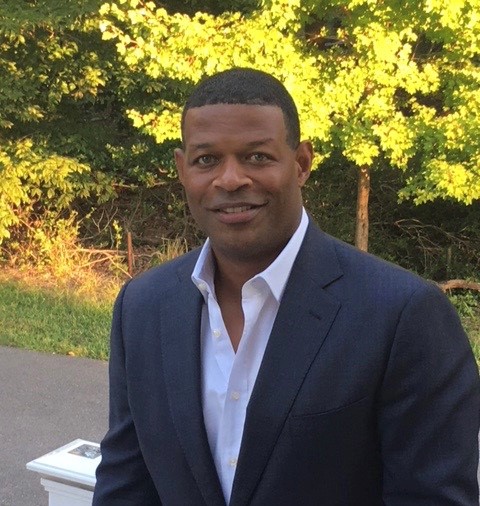
Senior Vice President, Client Relationships, Freeman
Growing up in Montgomery County, Maryland, I graduated from Rockville High School in 1988, and enrolled at Montgomery Rockville Junior College, playing football and baseball while earning my Associate’s degree. I was All American in both sports and inducted into the Halls of Fame of both high school and junior college at the same time. University of Maryland College Park awarded me a football and a baseball scholarship. In 1992, I earned a degree in Criminology and a minor in Psychology, and became a free agent with the Chicago Bears. I was also drafted that same year by the San Francisco Giants baseball team, so I played one year with the Giants, a year with the Bears, and a year with the Minnesota Vikings. A torn hamstring in 1993 and the passing of my mother realigned my focus on family and putting my degree to work.
Two years later, I was a counselor for the Thomas O’Farrell School for boys, a maximum security juvenile facility in Butner, North Carolina, near Raleigh. After 2 years, I moved back to the DC metropolitan area and to be a Dual Diagnosis Counselor for Fairfax County, advising young adults with mental health and substance abuse issues. It was extremely rewarding, but I was lured to the corporate world by a friend who worked at Freeman and thought I would excel in sales for them. Deciding to give it a try, I thought in the back of mind that I would come back to counseling youth in a few years. Twenty-five years later, I’m still at Freeman.
Being in events was going to be my career path though when I lasted at Freeman for more than 2 years. I started in Exhibitor Sales — it was immediately trial by fire, sink or swim. I thrived on the challenge of learning and doing something I wasn’t initially good at. Winning business was exciting. I was energized by the people I worked with at Freeman and the satisfaction of solving my clients’ challenges. That is also thrilling. I have worked across a broad range of industries: American Chemical Society, American Society of Landscape Architects, American Society of Human Genetics, National Auto Dealers Association, Heart Rhythm Society, American Trucking Association, American Research and Vision Ophthalmology, American Counsel on the Teaching of Foreign Languages, and International Literacy Association, among many others. Moving up through the ranks, I now specialize in aligning our offerings to my clients’ business goals. With a focus on increasing event attendance and enhancing the overall event experience, I gather the right team of experts to collaborate on creative solutions.
Solving problems and coming through for my clients and coworkers is invigorating. It’s the same thrill I had when I was playing sports. And at Freeman, similarly in football and baseball, we work as a team to win business and then to steward that business. It’s rewarding and even fun. So I support my industry by being a member of the Professional Convention Management Association (PCMA), the International Association of Exhibitions and Events (IAEE), and the National Coalition of Black Meeting Planners. Being a member of these organizations also helps me keep up with what’s going on in my field and it helps build my network.
I draw on my experience to tell the next generation that if you are passionate about the events business, take your unique personality and skillset, and join us, and make your way in it. As Paula Abdul said, take it and make it your own. You will be excited every day by what events have in store for you.
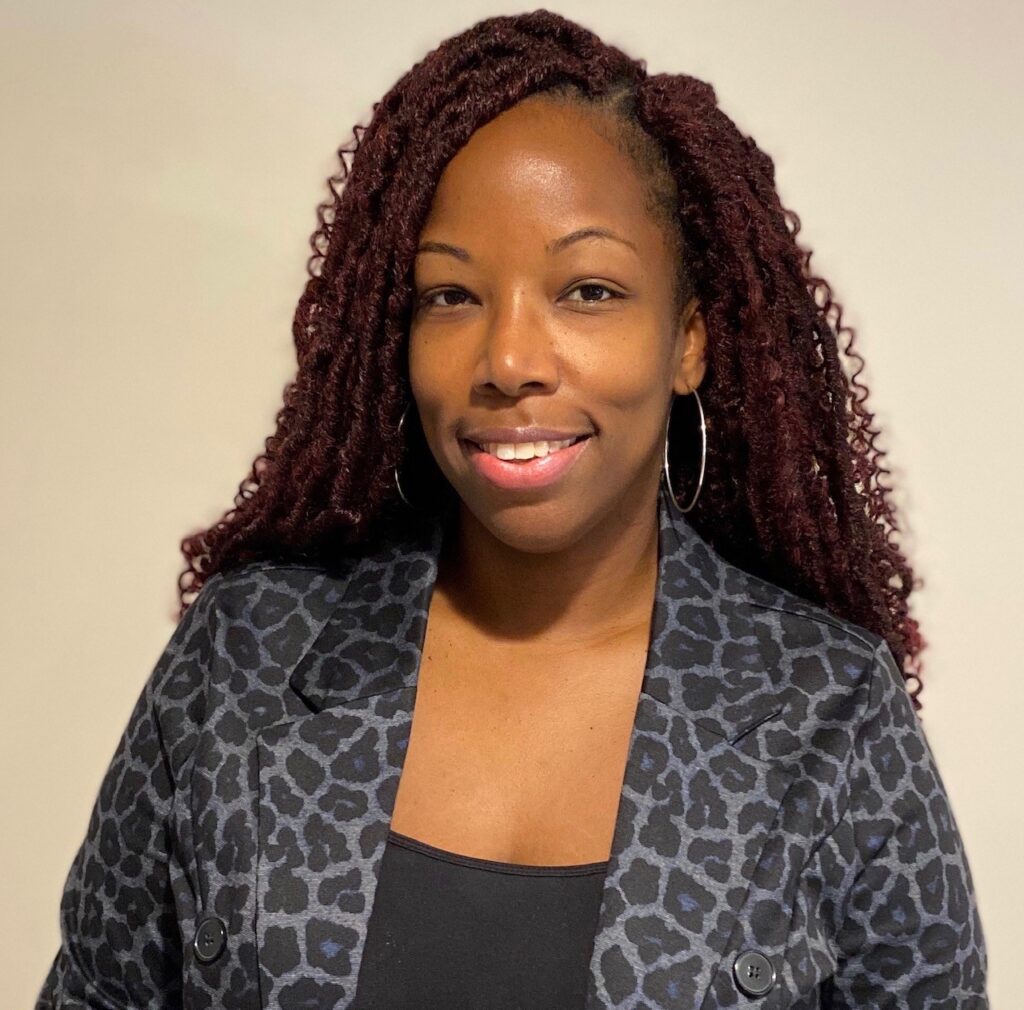
Director of Advertising and Sponsorship Sales, Coin Laundry Association (CLA)
My first job in the hospitality industry was as a sales and service coordinator for the DuPage Convention & Visitors Bureau in Oak Brook, Ill. The company had reached out to me after I uploaded my resume to an online resume distribution service. For two years, I helped promote restaurants, hotels, and local attractions.
In 2013, I shifted my career direction, accepting the position of media sales coordinator at Coin Laundry Association (CLA), which is the national trade organization for laundromat owners and operators.
My duties included providing support to the COO, as well as administering contracts, billing, and collections for the association and its monthly publication, PlanetLaundry. After a year at CLA, I was promoted to advertising and production manager, which gave me even more control over managing the schedule of PlanetLaundry.
In January 2020, I was named advertising and sales business manager and began reporting directly to the CEO. In this role, one of my primary responsibilities was to build relationships with current and potential advertisers.
PlanetLaundry currently has 9,300 print subscribers and 11,000 digital subscribers. The magazine features articles on the latest news and trends impacting today’s laundry owners – as well as regularly focusing on critical topics as wash-dry-fold/pickup and delivery, store operations, equipment maintenance, sales and marketing, and more.
In January 2023, I was promoted to my current position of director of advertising and sponsorship sales, where I oversee all CLA’s advertising accounts, take sales calls, and handle sponsorship for all of the association’s virtual and in-person events. I report directly to the executive vice president, and I collaborate with the CEO on sales strategies and ways to continue to grow revenue for the association.
CLA, which was established in 1960, has a small staff of 10 employees. Along with four other textile-care trade groups, we’re co-sponsors of a large trade show called the Clean Show, which is held every other year. At this event, we promote the value of CLA membership, distribute PlanetLaundry and other materials, and participate in the educational programing during the convention.
In addition, CLA hosts two of its own conferences – Excellence in Laundry and Wash-Dry-Fold Workshop, with educational sessions on best practices for today’s laundry owners.
Until I joined CLA, I hadn’t been with any previous employer for longer than two years. I’ve now been with CLA for 11 years.
I love my job, because I’ve been able to build relationships with people in our industry – our sponsors, advertisers, manufacturers, store owners, and members. I was given responsibilities and opportunities and, as I was able to do more things by myself, my confidence grew over the years. In 2020, I came to the realization that I’m where I’m supposed to be. My three promotions reinforced my confidence. I was recognized for my accomplishments and given increased responsibilities and opportunities to learn new things.
Our CEO, Brian Wallace, helped me to grow professionally. He looked out for me and found the right fit for me. As I learned the business, he taught me to think at a higher level and be more strategic. He inspired me and gave me the sales tools I needed to succeed.
When prospects are interested in advertising, I provide them with a media kit and then I follow up with a sales call. I listen to their company goals and provide free customized solutions. I’m also grateful for the support of our Executive Vice President, Danielle Bauer.
I’m proud that I consistently meet all revenue goals for our magazine and event sponsorships. However, I’m particularly happy about my work with an initiative that EVP Danielle Bauer launched called the Women’s Laundry Network. I’m a member of its task force, which consists of 12 women professionals in the industry. We implement monthly events that empower women in the business and enable them to connect and collaborate. Activities include a book club, webinars, workshops, guest speakers, and an annual in-person event. We focus on key women’s topics each quarter such as networking, work-life balance integration, stress, and women’s health.
I hold a bachelor’s degree in communications with a minor in business from Elmhurst University. I’m organized, focused, and motivated. I’m also very passionate about what I do.
I’m a confident African American woman in a predominantly older, white male industry (although younger people are entering the industry all the time). I like to have fun, and I’m a positive person.
So, I would advise the next generations to stay focused, look at all options, and see what interests you. Don’t be pressured into making decisions, and don’t let others dictate your choice.
I took general education courses in school so that I could try different things. I like to look, learn, and figure things out. You may not know what you want to do when you get out of college, but you will know when you’ve found it. You are not going to know what’s right for your career immediately. But, when you make the right decision, you’ll know it, and you’ll feel good about it.
Above all, I would tell young people – don’t let bumps in the road discourage you, because they only make you stronger. I’m patient and it has worked out for me. Don’t rush things. Growing your career takes time, and moving fast will not get you there any faster.
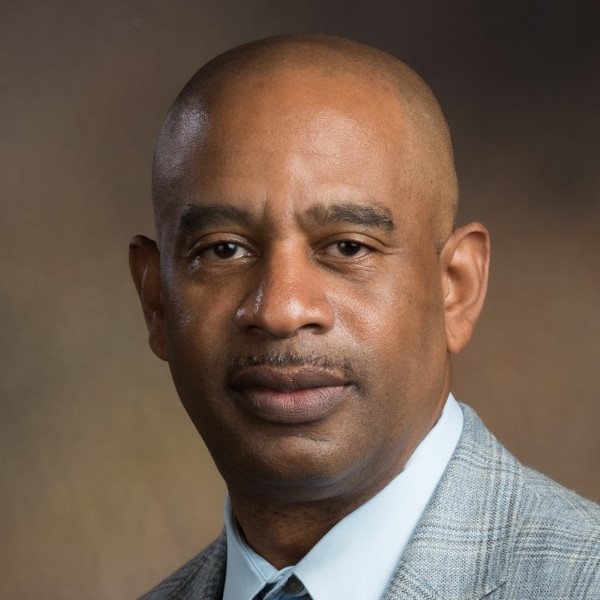
Senior Vice President and General Manager, McCormick Place
While a college student at Fairleigh Dickinson University, New Jersey, my roommate returned to the dorm one evening wearing a black shirt and a bowtie. I laughed at him, and he said he got a job as a waiter. I said, “What?!” and then I put on a black shirt and tie and went down to the Holiday Inn. I served at weddings and special events to put change in my pockets. When I was done with college, I went home without a job or an idea for my future. Dad was strict raising my siblings and me. He was a transit system driver in Philadelphia, and worked three part-time jobs as a custodian. We kids had to help him with the cleaning duties. He told me I couldn’t sit around; I had to get a job or join the military. So, I found a job a Marriott, doing custodial work and setting up rooms for meetings. I knew I had more to offer but I wasn’t motivated. A lot of people told me the same. Then one day, a senior manager said I’d be no better than a waiter because I didn’t have the right attitude. That got me. I never settled for the norm again. I set out to prove myself through hard work and determination. Once I got my head on right, it took off from there. I moved to waiting, then catering, then as maitre d’ for banquets at the airport Marriott. Then I opened a new Marriott near the Philadelphia Convention Center.
My wife saw in me more than I did. Behind my back, she submitted my application to Aramark, and I was hired as a catering sales manager. I went to Columbus, Ohio, back to Philadelphia, and then to New Orleans, rising with every move to resident district manager/GM. Then Tom Mobley, who met me in New Orleans, called me and asked me to join Center Plate as a subcontractor to the Washington Convention & Sports Authority, where I later was able to work with and for Greg O’Dell. During the pandemic, we decided to keep everyone employed and to embark on projects that helped the fight against the virus. We converted the convention center into a temporary hospital with 550 beds!
Greg has been a great mentor and now friend. And my wife continues to be my inspiration. With her encouragement, I was able to make the career transitions. I also had great support from my teams, even when I was younger and less experienced than they were. And I was a Black, most of them were White. Yet they covered me, watched my back, made sure I was successful. That’s when I realized that what I did was about people; not just our customers but also the people we work with internally and externally. Being with people is how I thrive so the hospitality business is perfect for me. In addition, it’s been an exciting experience. I’ve been among the first to greet Presidents when they came to inaugural balls. President Obama’s had 42,000 people, the largest ever. In 2018, we hosted Ethiopia Day, when Prime Minister Abiy Ahmed Ali came, the first time Ethiopia’s PM visited the US. There were 60,000 people in the convention center that day with another 20,000 outside the center. And I love the diversity of events – presidential balls, cosplay, auto shows, food festivals are just a sampling.
Learning is also a big part of the job. I learn every day as a boss – from my boss, my peers, my team, and my clients. Leadership is about being humble, not acting like a boss. Recognize and respect the people around you. My style is “servant leadership.” I believe I’m here to serve others and teach others how to serve. We’re in the business of service, and I advocate internal and external customer service. I hold classes, but I also train by doing; I demonstrate every day how to be courteous and respectful. I started “Strive for Five” for my team: accountability, professionalism, teamwork, communication, and respect. As a team, we have to be on the same page, using a playbook of values and principles we’ve agreed to.
Being the second of five children has informed my management style. There’s an order in life, so there’s an order in the workplace. Respecting elders and authority translated into business recognizes there’s a chain of command. Respect the role or title. Identify leaders’ strengths and learn them; fill in their gaps by developing your strengths. Several leaders have my respect: Tom Mobly, who took an interest in me; Reba Pittman Walker, General Manager of the convention center, who took a chance on me; and Greg, who trusted me. Now I, as a leader, want people to think highly of themselves. I don’t want to raise people to fill my shoes, but to do better than I have, go beyond what I have done. I am most proud of my family and what we have achieved as a family, and I am proud of my DC team for being voted best in the Northeast.
Here is what I would like to tell the next generations:
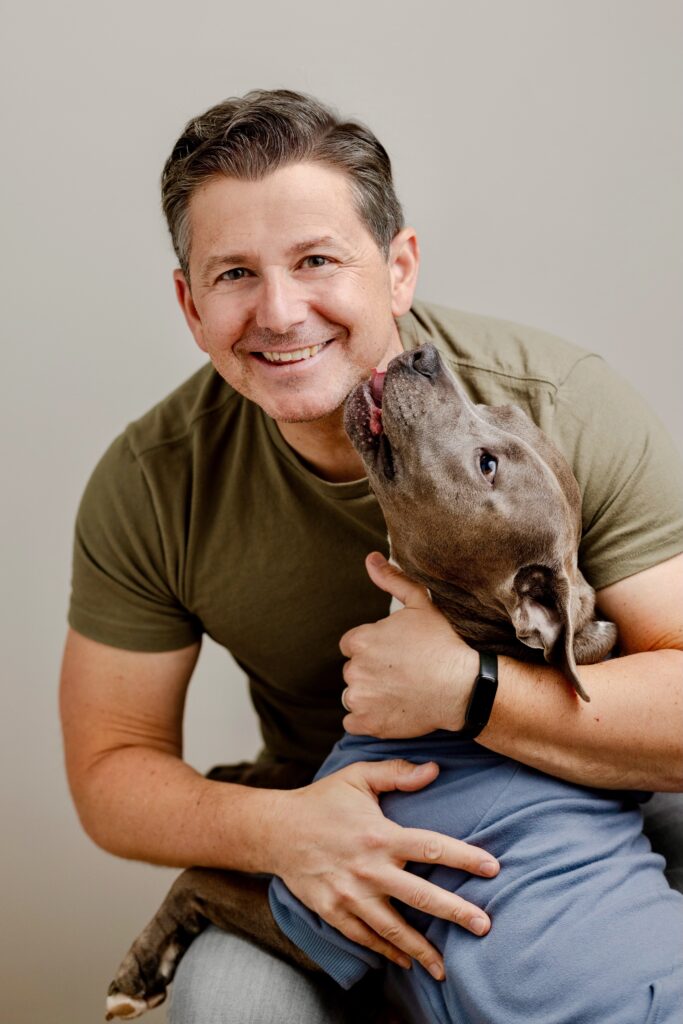
Chairman, Clarion Events North America
When I got my degree in Marketing from Fairfield University in Connecticut, I wasn’t thinking tradeshows as my future. Academics was never easy for me, I wasn’t a great student, but I knew I wanted to be in sales and marketing. I had good business sense and an outgoing personality, and I was innovative. In middle school, I started a candy business that went well until I had to shut it down. After graduation, I landed at Sysco Food Service as a sales representative when a cousin who worked there helped put my resume on top of the pile. Another lucky break was that Sysco was opening a new office in my location – I had the feeling that my resume didn’t matter as much. The company gave me training in opening restaurants, paid me a salary for 6 months, and then put me on commission so I would go hungry if I didn’t make any sales. Jumping into the fire, I quickly learned what customers value and how to match them. I learned what to say to people when I spoke to them face to face. After a year and a half, I felt I understood the restaurant business, but I wanted to do more with what I learned at school – there had to be something else.
My next lucky break was when my father got my resume to his connection at Reed Expositions, and they had a restaurant show that could use my experience at Sysco, selling food to restaurants. My dad was a food scientist and worked in the food industry. His company was at the Fancy Food Show, which I attended a couple of times as a kid. I remember the energy, the magic, and the people. In trade shows, we meet a lot of people, and we help them be successful. I like people, and in our industry, they are impressive. At Reed, I realized that I could learn from everyone, and become really good at my job. And as I succeeded, my work was valued; people told me I was doing a good job. This is how I knew I was in the right career.
Eight or nine years into my time at Reed, I was doing really well, and I was appointed to launch new shows. I took it because I wanted to move quickly, even though I knew it would be risky and hard. It was my first big risk, and I had several bad ideas that didn’t work. But then I tried New York Comic Con. Reed didn’t think it was a good idea; industry people were skeptical. I persisted and it became extraordinarily successful in a very short time. We expected 10,00 people – 30,000 signed up, and now the show has 270,000 attendees. This changed my trajectory at Reed, but I wanted to try my hand at being an entrepreneur. I started LeftField Media in 2014. It was hard and scary and not an overnight success, but we made it. We launched some good shows, made small strategic acquisitions, and then Clarion Events bought us a few years later. When Clarion asked me to be its CEO, I saw it as a chance to make a lot of acquisitions, forge a new company culture, and grow the company. Over 6 years, Clarion grew 500 percent, even through the slowdown of Covid. Looking back, it was a great move.
Who you know is important to success. One of the best days of my career was when I interviewed for the job at Reed, where I met 3 people who are all still deeply in my life: Nancy Walsh, Courtney Mueller, and Ron Matthews. There is also Kelly Comboni, whom I hired at Reed to help launch shows. She was 25 and my marketing head, joining a small group I hired from outside the company. She was co-creator on Comicon. When I moved from LeftField to Clarion’s leadership, Kelly took over for me as CEO at LeftField.
There are a lot of other people who have taught me, but I have to mention Lance Fensterman because he was by my side, my partner in crime growing Comic Con to a family of shows culminating in ReedPop. Lance is its president. These colleagues are now good friends, and some of them are godparents to my children.
I have always loved the people part of trade shows, both customers and my colleagues in general. I am happy to see people; I enjoy meeting new ones, and getting to know them, learning from them. Now, I enjoy being a mentor. I want others to do well, learn from my mistakes.
The advice I give to young people entering the workforce is:
Lastly, one of the most dangerous things going on in the world today is disconnection and loneliness. Information is not trustworthy, there is enormous mistrust. People think they’re being connected through social media and AI, but technology is pushing people away from looking at each other in person and talking. The event business gets people back in touch with each other; our shows — actually anything live — are communities. We found that people want to get back together after long separation enabled by technology or caused by a pandemic. Our industry brings communities together, which can be invaluable in overcoming some of society’s disconnections.
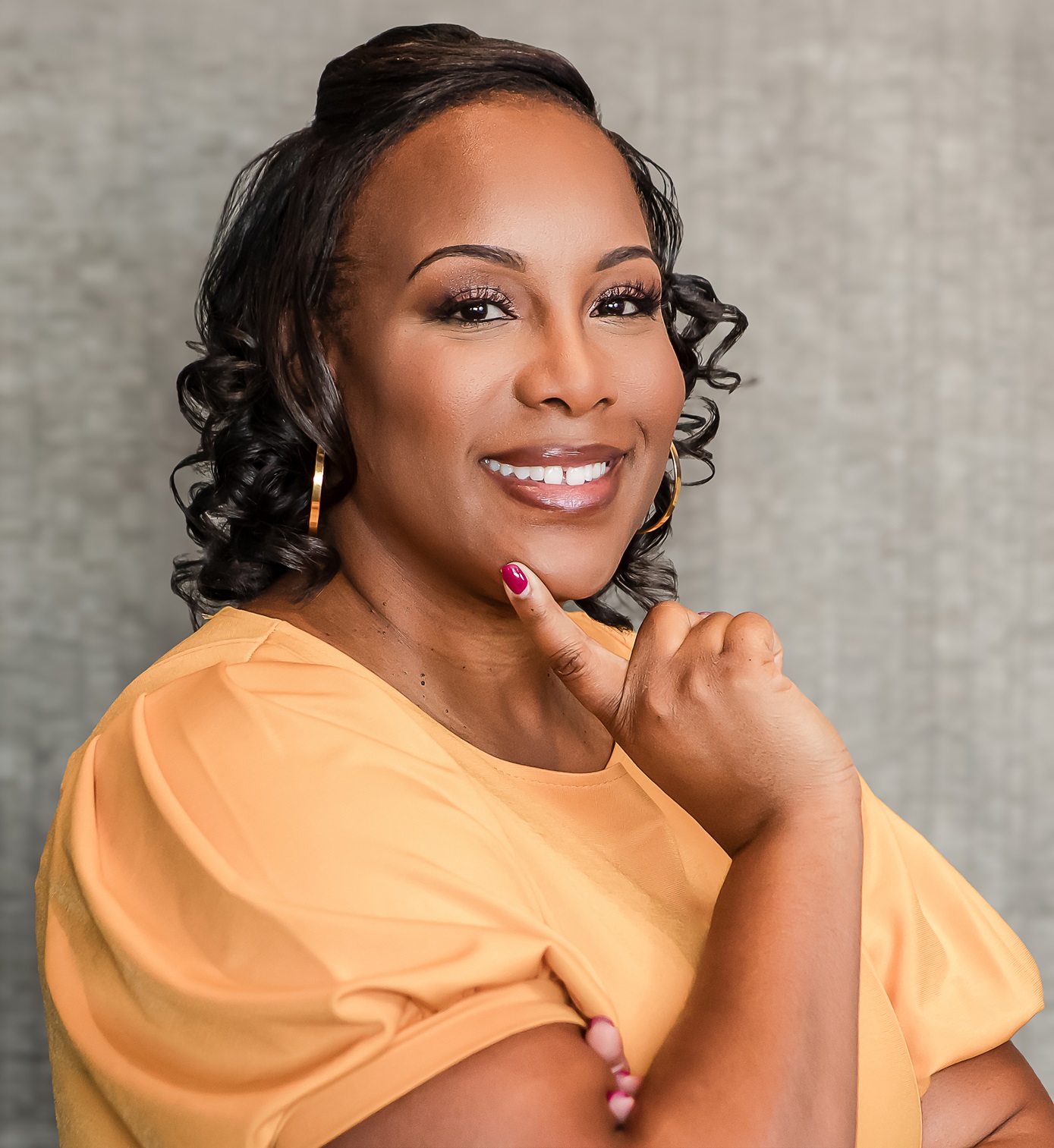
Founder & CEO, Lightsey Event Solutions
My first job out of college was for an association in Durham, NC. I was the community development coordinator. In this role, I was responsible for writing press releases, and media advisories, and giving presentations on the organization to the local community. My degree was in Mass Communications (Journalism), so this was right up my alley! Shortly after starting, I was informed by the Executive Director that I would be leading the efforts for the association’s 10-year anniversary celebration. While I’d planned events during my college days, I’d never planned anything that large! The rest is history.
After my first job, I moved to the DC area to continue working for an association. I was still working in the communications department, but we hosted (and attended) several conferences and tradeshows throughout the year. At those events, I managed the association’s onsite press office (which was self-sufficient). One year, I was asked to assist with our booth on the tradeshow floor and I was happy to oblige. During that time, I got to meet and interact with several of our attendees and sponsors, and I really enjoyed it! It was then that I knew a career in conference and exhibits management was for me.
I’ve served as a senior manager for a conference and tradeshow management firm. I’ve been in senior leadership at numerous associations, often the only person of color on the leadership team. Running my business full time in 2023 is a major accomplishment for me. I’m most proud of taking a leap of faith and branching out on my own. This is allowing me to create a legacy for my son, and for that, I’m extremely grateful. Also, I am a member of the inaugural CEM-AP class for the International Association of Exhibitions and Events (IAEE) where I sit on the boards at both the local and national levels.
I have a transparent management style. What that means is I lead with openness, honesty, and clear communication with my employees. Information flows freely, and decisions are made with visibility and accountability from the top down. I pride myself on having open communication that includes clarity in expectations along with inclusive decision-making processes. Having this type of management style fosters trust, accountability, and collaboration in the organization. It empowers employees, promotes a culture of openness, and contributes to the overall success and well-being of the company.
My mentor has been a strong influence for me when it comes to transparent and open communication. I talk to him before all major decisions are made. In the same way I’ve learned from him, I would pass long the following advice to the next generations.
Gain Experience Through Internships or Volunteering:
Take advantage of internship opportunities or volunteer roles in event planning, production, or coordination. Hands-on experience will provide valuable insights and help you build a network of contacts in the industry.
Learn Continuously:
Stay informed about industry trends, best practices, and emerging technologies. Attend workshops, conferences, and webinars to expand your knowledge and skillset. Continuous learning is essential for growth and success in the dynamic events industry.
Develop Strong Organizational Skills:
Event planning requires meticulous organization and attention to detail. Develop strong organizational skills to manage multiple tasks, deadlines, and resources effectively. Utilize tools like project management software to stay organized.
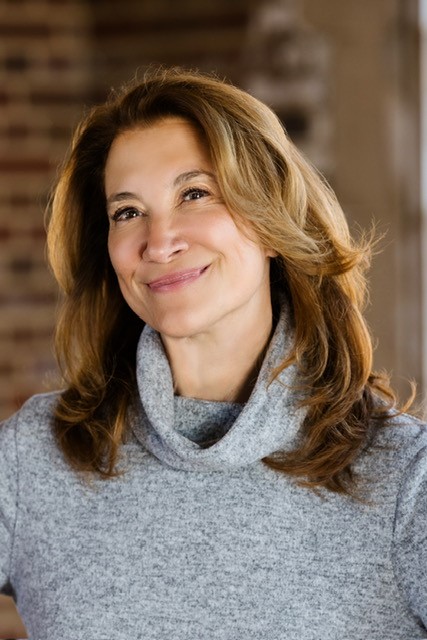
President, North America – Informa Markets
When I started in my career, I never imagined I’d end up leading the North America sector for the largest trade show organizer in the world—but that’s the beauty of saying “yes” to new opportunities.
My first job was in software sales. Then, a former manager of mine had just moved into the trade show industry, and he saw potential in me and encouraged me to join him. I’m a people person by nature, and immediately realized this was the industry for me. I loved the energy, the networking, the relationship building, the travel, the ability to help businesses grow—and the fact that no two days were ever the same. I met so many new interesting people, and completely fell in love with the idea of both community building and revenue driving. I had a marketing degree and sales experience, which really helped me understand the full picture of the trade show industry and what motivates people to both exhibit and attend. I’ve never looked back!
From the moment I walked into my first event, I was hooked. I loved the camaraderie, the fast pace, the people, and the impact. I found joy in connecting buyers and sellers, building communities, and helping entire industries grow. I also loved the travel and getting to explore new places. I truly think the exhibitions industry is magical, and am so glad I found my way to it.
Since joining this industry, I’ve held some incredible roles—most notably, leading sales for Reed’s North America business during a time of massive growth and transformation. That was a very fun and exciting role because we were growing revenue by leaps and bounds; people were just embarking on Salesforce, which was making us so much more efficient and effective; and it was truly a revolutionary time to be a salesperson. That role enabled me to be a candidate for the strategy side of the business, which I loved because I learned Profit and Loss (P&L) management, got experience with association partnerships, and was really able to build out my skillset.
That experience led me to be President of the North America business at Reed, which is an accomplishment I’m very proud of. During that time, I launched a $20 million business in Mexico from the ground up, which was one of my most rewarding career experiences. After that, I wanted a change and started my own company, which was both terrifying and deeply rewarding. I learned so much about myself and about my own skillset, what resources I needed, and how to build new relationships and create new opportunities. Each chapter taught me something new—about leadership, resilience, and myself.
Now I serve as President of the North America business at Informa, the world’s largest trade show organizer. Informa provides unique flexibility and opportunity. I get to work across many different sectors like fashion, food, and construction, and with a diverse mix of talented people. And no two days are the same. There’s a strong entrepreneurial spirit, but also a deep sense of community, and tremendous chance for internal mobility and career growth. If you love fast-paced work, meeting new people, and making an impact, it’s a great place to work.
The trade show industry is dynamic, global, and relationship-oriented. It’s filled with genuine, caring, talented, passionate people. I’ve built lifelong friendships and professional relationships that have carried me through every stage of my career.
What makes me most proud, though, is the talent I’ve helped develop. I love to give people opportunity, to nurture their careers, and watch them flourish. There is truly nothing more rewarding to me than helping shepherd people’s growth. It drives me. I love helping people succeed, building communities, and growing talent from within. I believe in clear expectations, open communication, and trust. My management style is collaborative and non-hierarchical—I don’t pretend to know everything, and I rely on the strengths of my team to move us forward. I believe good ideas come from everywhere, and the best teams are built on openness and mutual respect. I set high expectations, but I also support and encourage balance and wellness.
My personal mantra is: do more than is expected of you. I’ve always believed that hard work and integrity open doors, and I try to pay that forward by taking chances on others. I want to promote people who show promise and perseverance—even if they don’t check every box yet. I’ve learned that when you bet on talent and work ethic, people rise to the occasion.
I tell people to listen to their teams. I know what I know, and I know what I don’t know, and I trust my team. Hire people who are different from you, and who have different perspectives and skillsets. The world is a big place, explore it. The more life experience you have, the more you interact with people who are different from you, the better you will be as a professional.
And as a woman who has been successful in business, my advice to women starting their careers is to not sell themselves short. If you want a thriving career and to be a great mother, you can absolutely have both. I’ve always hoped to serve as a role model for other women, showing that it is possible to shatter the glass ceiling and also have a rich, connected life at home.
Today, 11 of my 14 direct reports are women, and the majority of them are working mothers. They balance their work life and family life with their own rigor and discipline. They are fulfilled in many different ways, but none of them feel they’ve compromised on family, and they all consistently overdeliver at work. Women are amazing, and we really can do it all, so believe in yourself, be clear-eyed and intentional about your priorities, and never hesitate to ask for help in supporting the balance of both, because support and balance are what makes success more sustainable.
More than anything, work hard, stay positive, and network as much as you can. Work ethic and attitude beat experience every time.
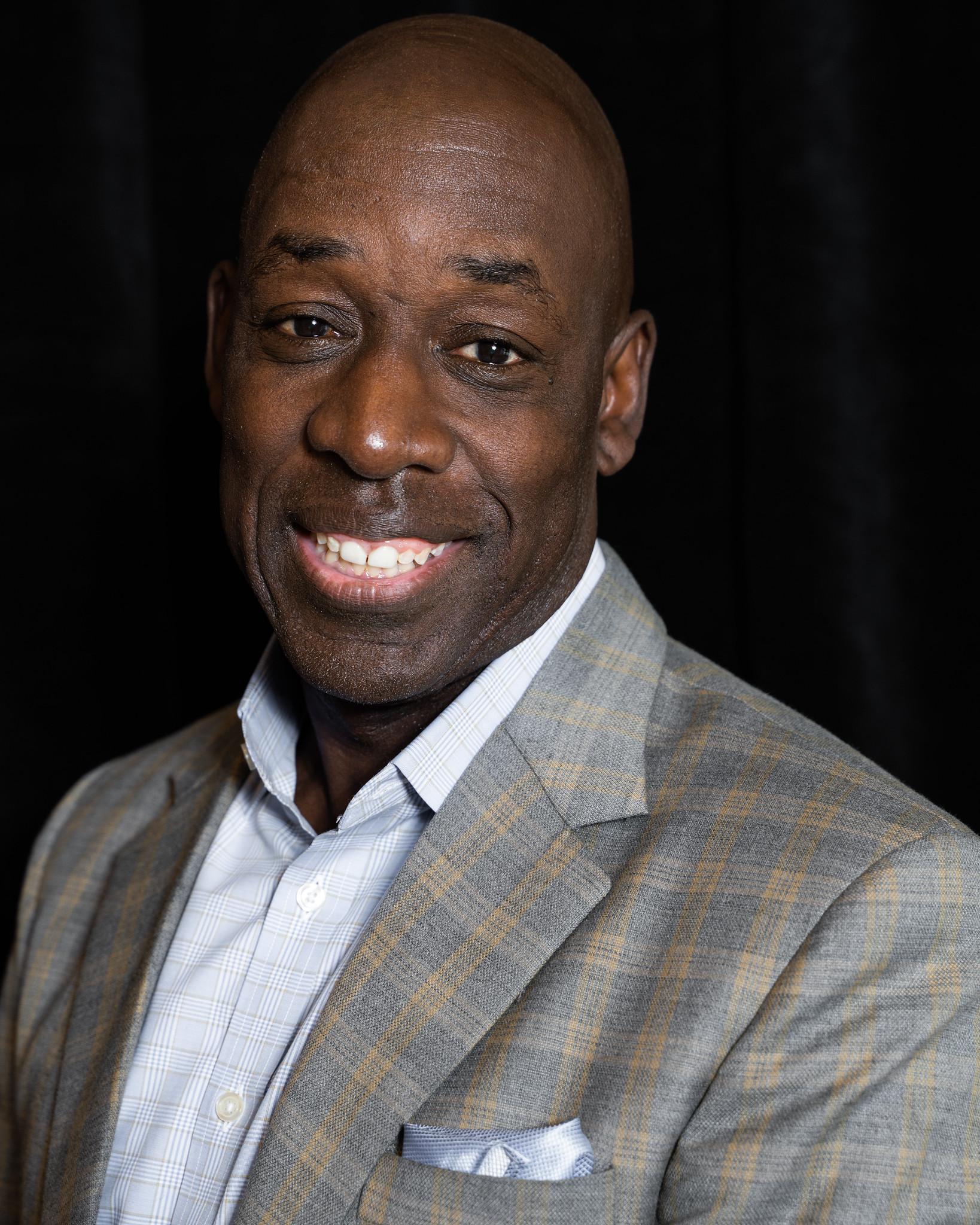
CEO, American Association of Clinical Endocrinology (AACE)
I earned my Bachelor’s in computer science, “IT” as it was called, from the University of Maryland. I used my degree work and experience to set up registration and membership databases for meetings and events produced by an aeronautical engineering association. There was no registration or membership management company during that time, so I was the in-house provider. I also went onsite to set up registration for badges, and watched meetings coming to life. I enjoyed seeing this and wanted to get more involved. Luckily, I worked for a CEO and director of meetings who saw my passion and supported my request to transition. I kept my IT work while working on three or four meetings. I really liked it and came up with ideas to make improvements. But budget limitations prevented support for my innovative thinking, and I decided to go where there was better funding: the health field. I found work as a meeting coordinator at the Endocrine Society, managing many areas, and eventually moved up to director, which launched my long career in the healthcare field.
I’m a people person — sitting in a computer room and programming, though a fine career, didn’t fit my personality. I love to get out and meet people. And I don’t want a single focus. Meetings require multiple skill areas: human resources, finance, contracts, planning, etc. I was never bored. Lastly, I’m a sponge, I like to learn. I learned as much as possible in my jobs. I shadowed meeting planners and other association professionals, volunteered and got involved in the meeting industry organizations such as PCMA (Professional Convention Management Association), and met people to learn from them. I also got involved with ASAE (American Society of Association Executives) as I wanted to broaden my skills and knowledge of the association industry to support my future endeavors.
I’ve stayed in the healthcare field where I feel I am making a difference, except for a brief stint with the American Society of Appraisers, because I wanted to try something that was out of my comfort zone.
I was CEO for 5 years there, and learned a lot. My biggest contribution was bringing awareness of bias, conscious or unconscious, that resulted in very few people of color (5 percent) going into appraisal fields. I initiated and taught classes to fight that bias.
But I wanted to help people in a bigger mission — health care — and contribute to its improvement. It was fulfilling being the executive director of the Cardiovascular Research Foundation because we helped bring about drastic changes, such as teaching non-invasive surgery that reduced recovery from months to a day. Our education was global and reached large audiences: 12,000 in the U.S., 6,000 in Beijing, 1,200 in Moscow and programs in many more countries. It’s a highlight of my career. At the Endocrine Society, I made a difference with a program to raise awareness of endocrinology to related practice areas such as OBYGN, Family Medicine, etc. I was recruited 20 years later to my current position.
Along the way, I have honed my leadership and management skills. Today, I think of myself as a collaborative leader who builds teams. In running an association, you cannot provide top notch service with people who work separately. I ensure my team is working together and team members are comfortable doing so. I empower those who want to lead and help them on their paths. I don’t have to always be in front, I can be a cheerleader. I’m very persistent, dedicated, and dependable; a typical hard working guy. This work ethic began when I was a teenager with a paper route. I’ve held multiple jobs and kept my enthusiasm for working and learning throughout. Each job has added to my knowledge: IT taught me to value data. I use data to persuade decisionmakers to take the paths I needed them to take.
Additional lessons I’ve learned are:
Apply now to The Annabelle Project and get matched with a mentor who can guide your path to professional success.